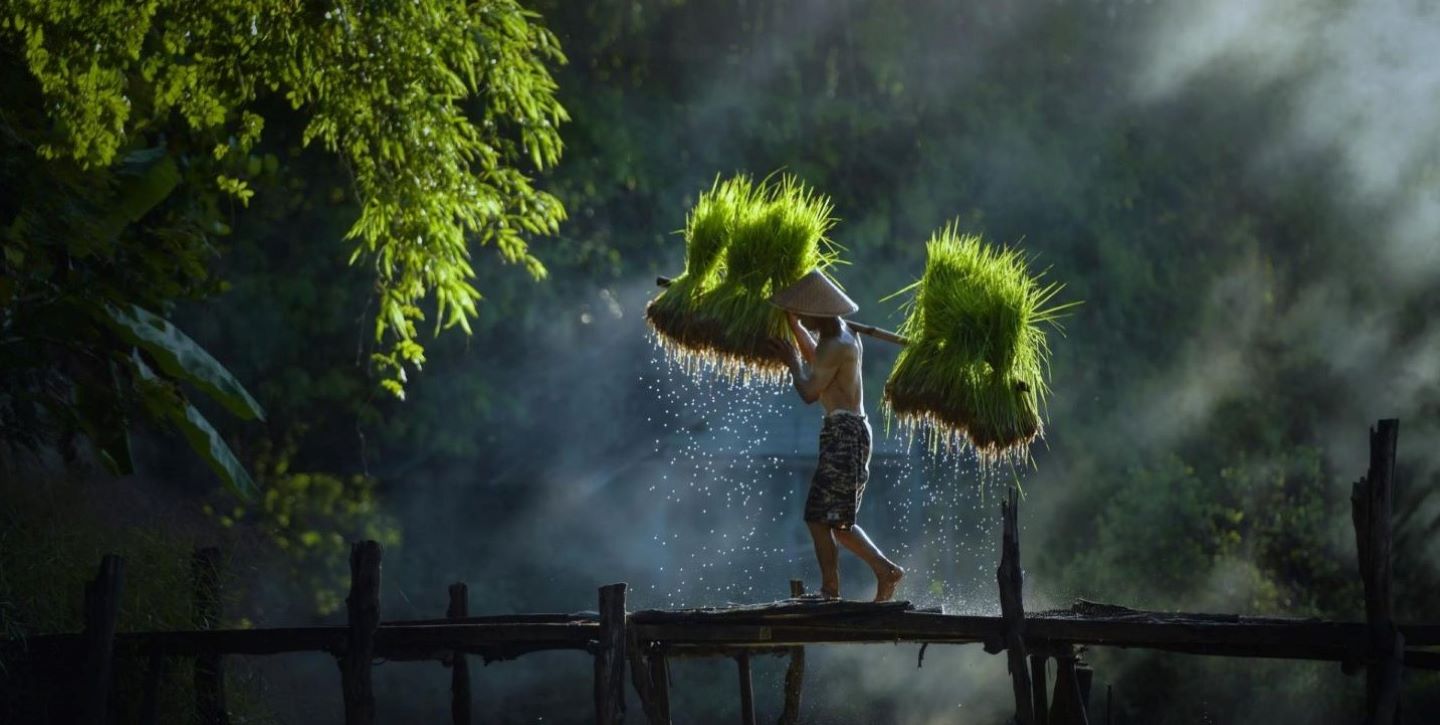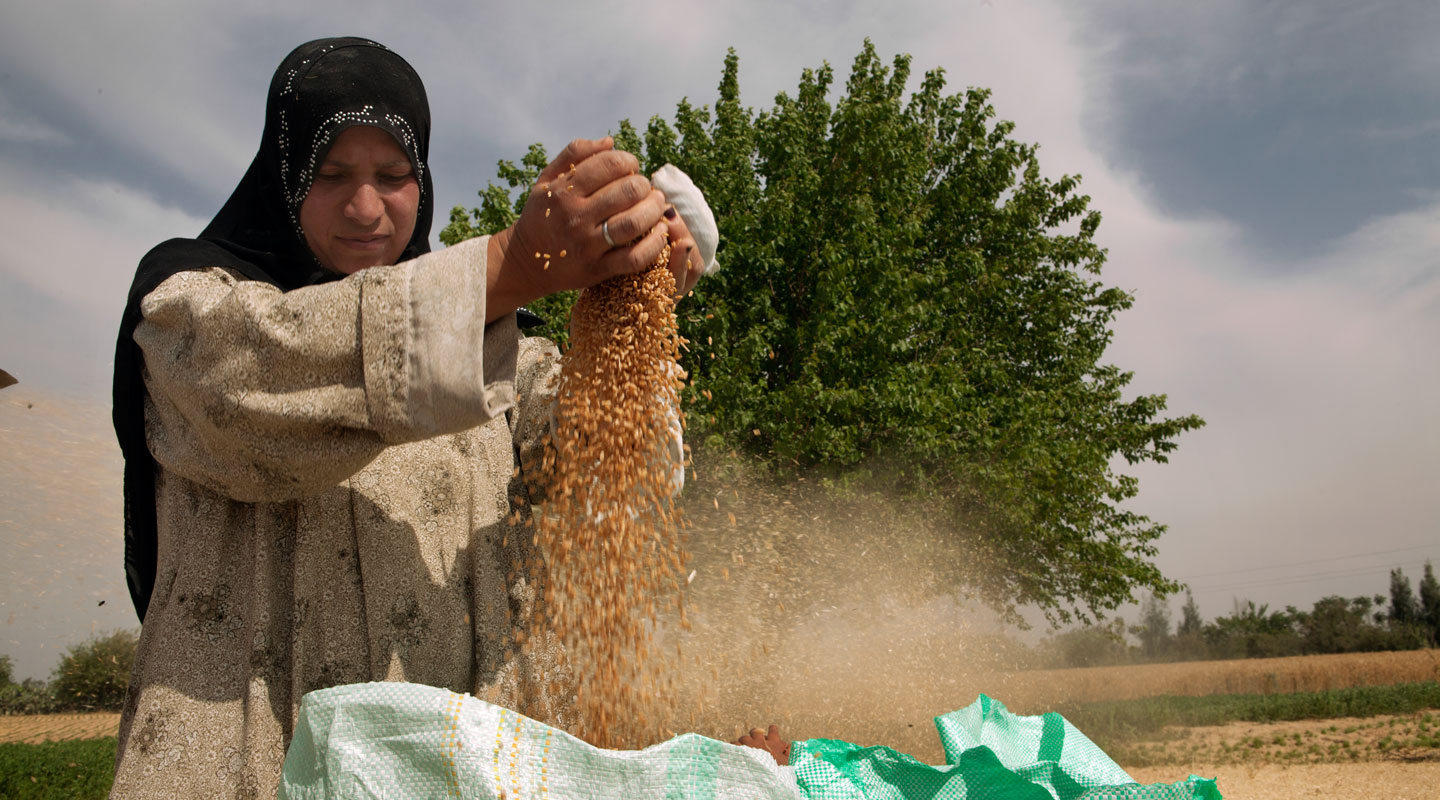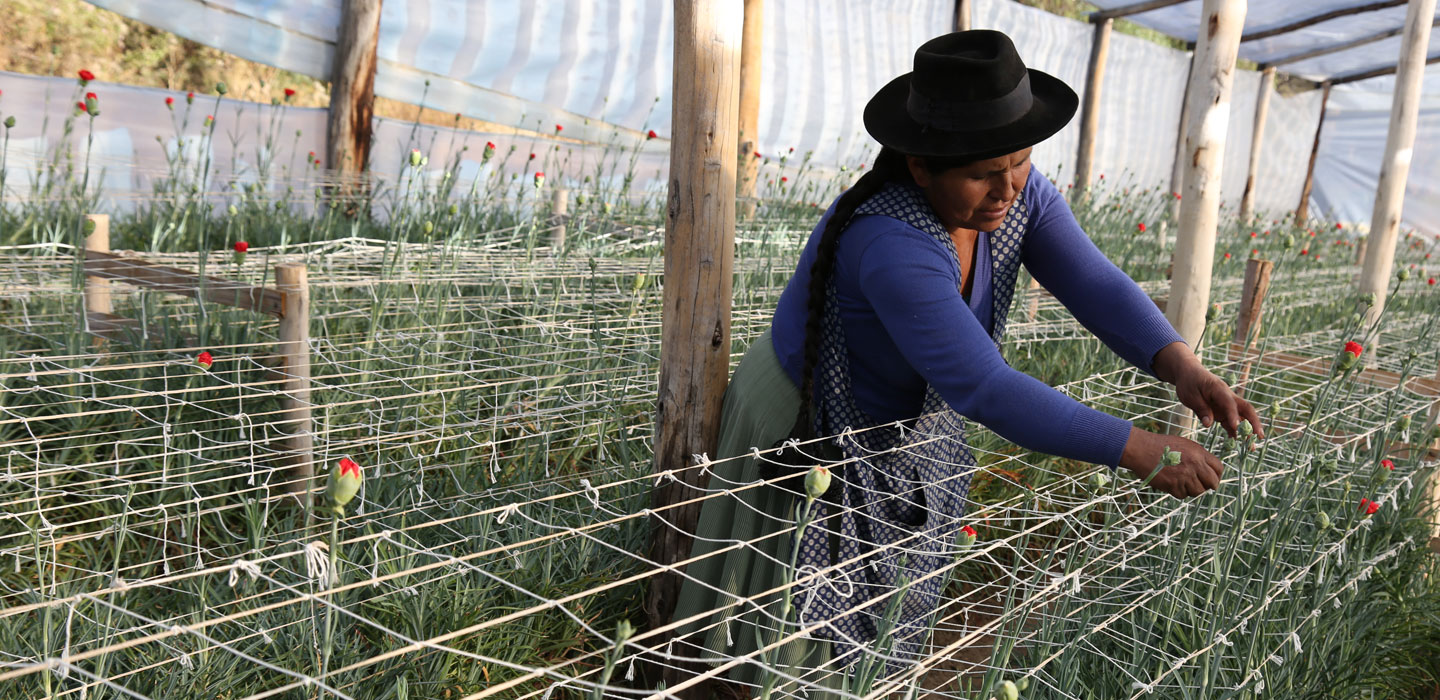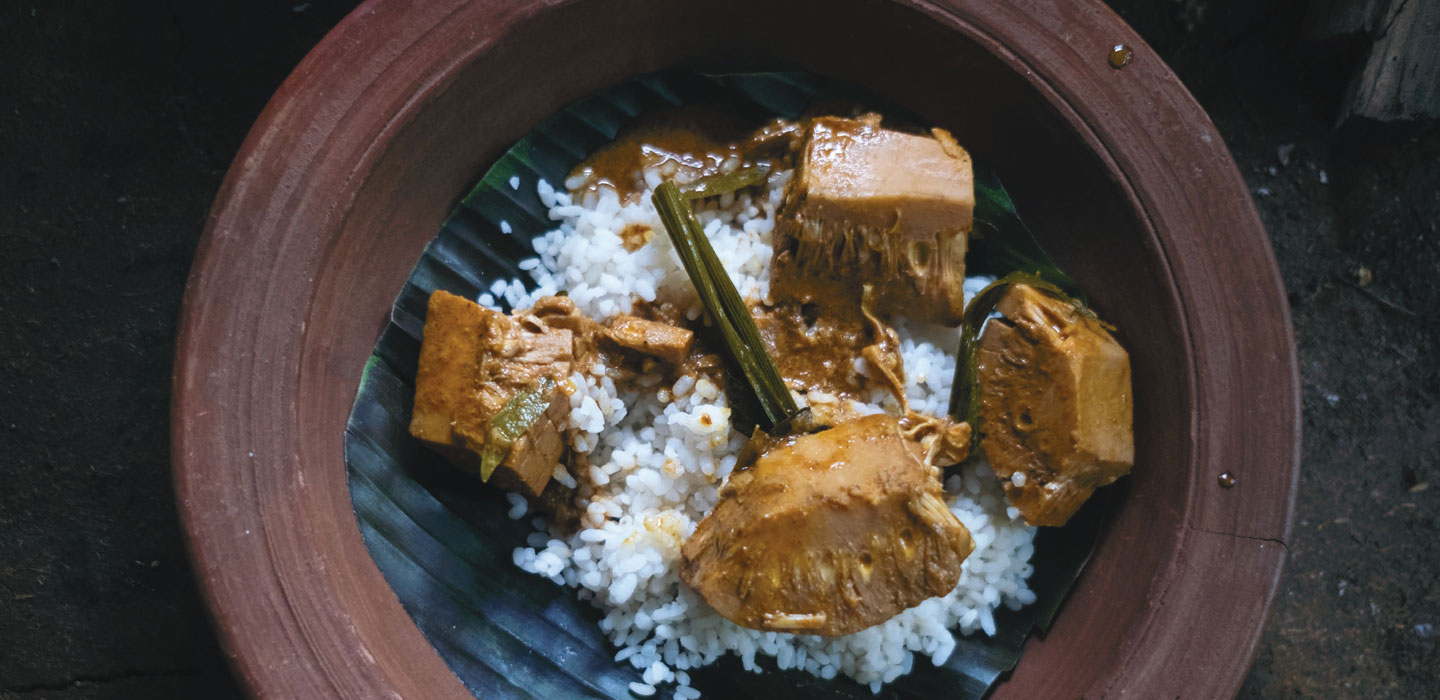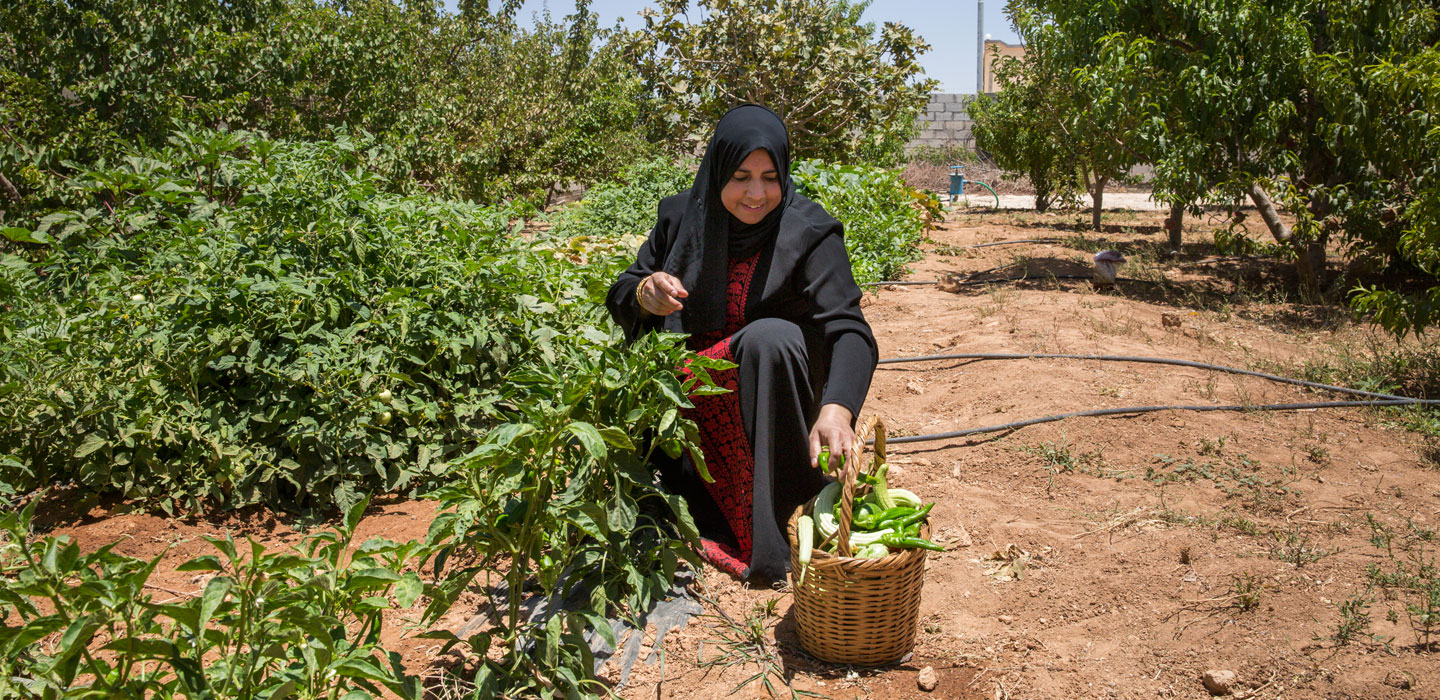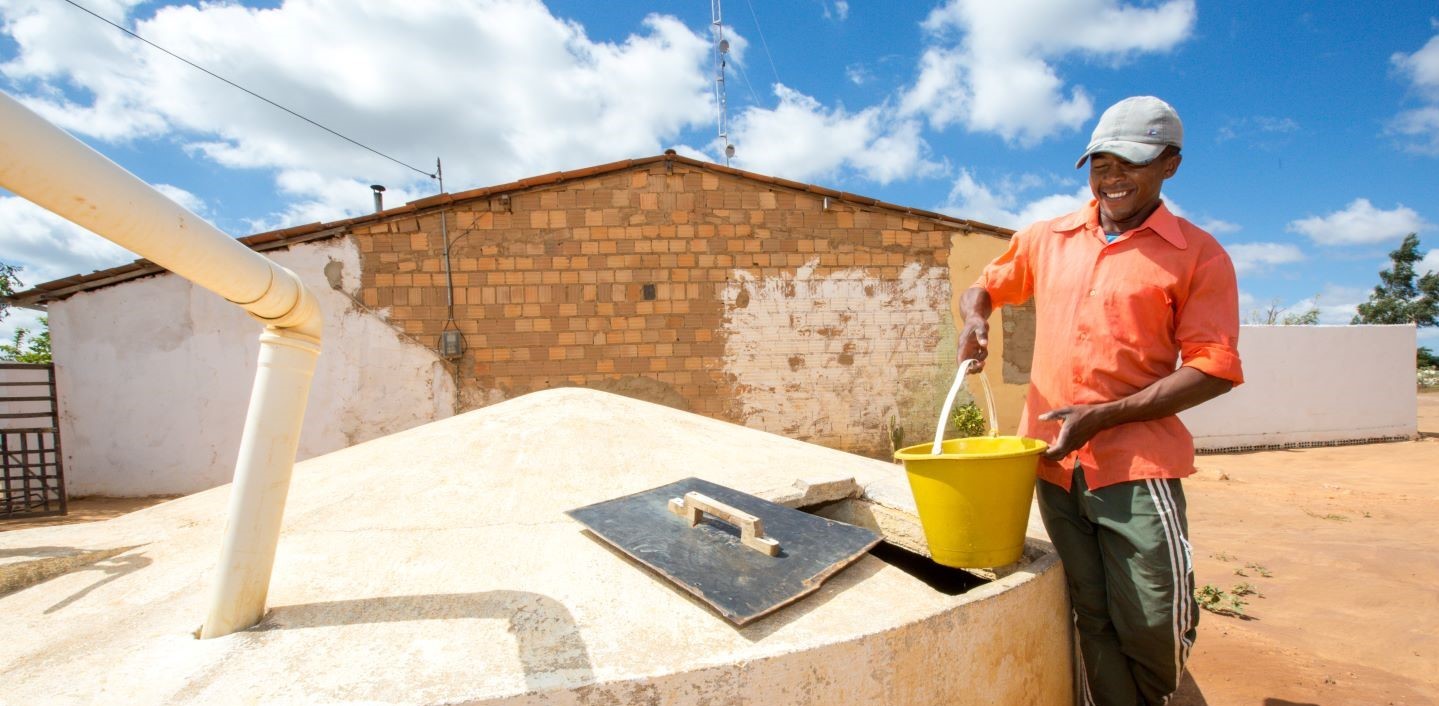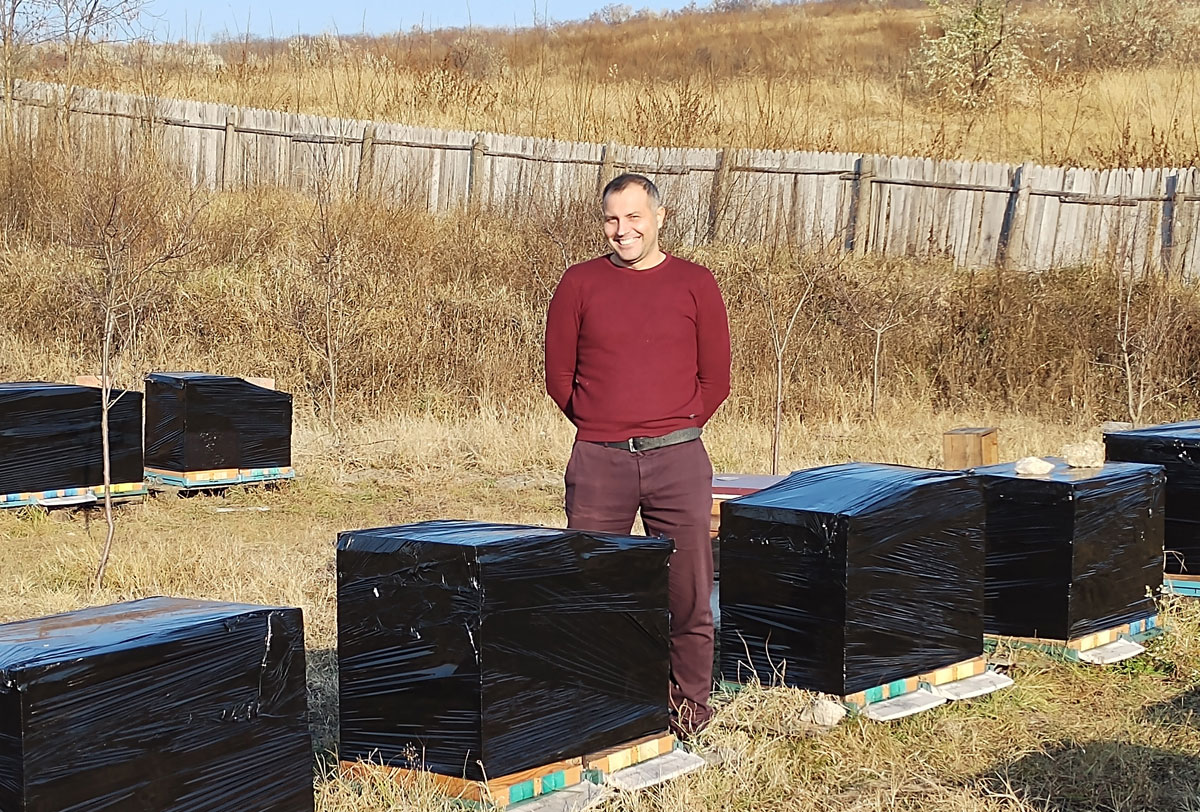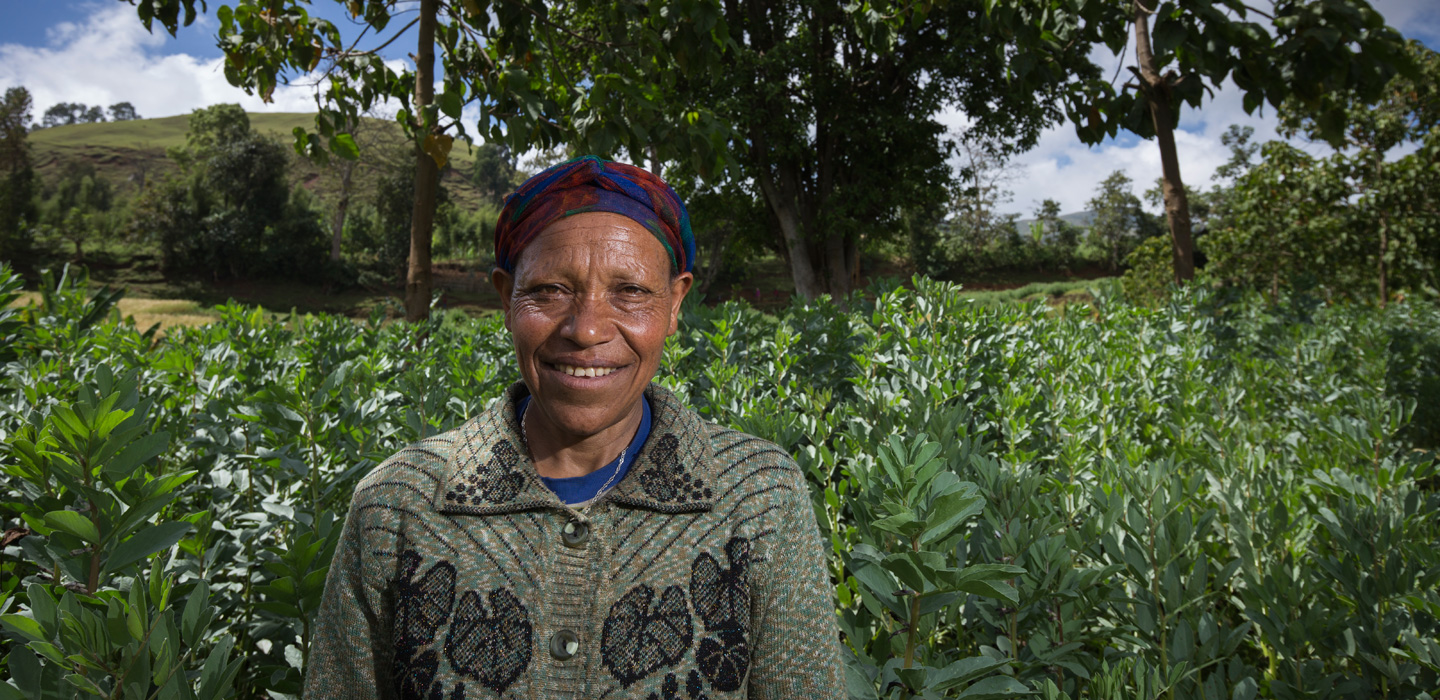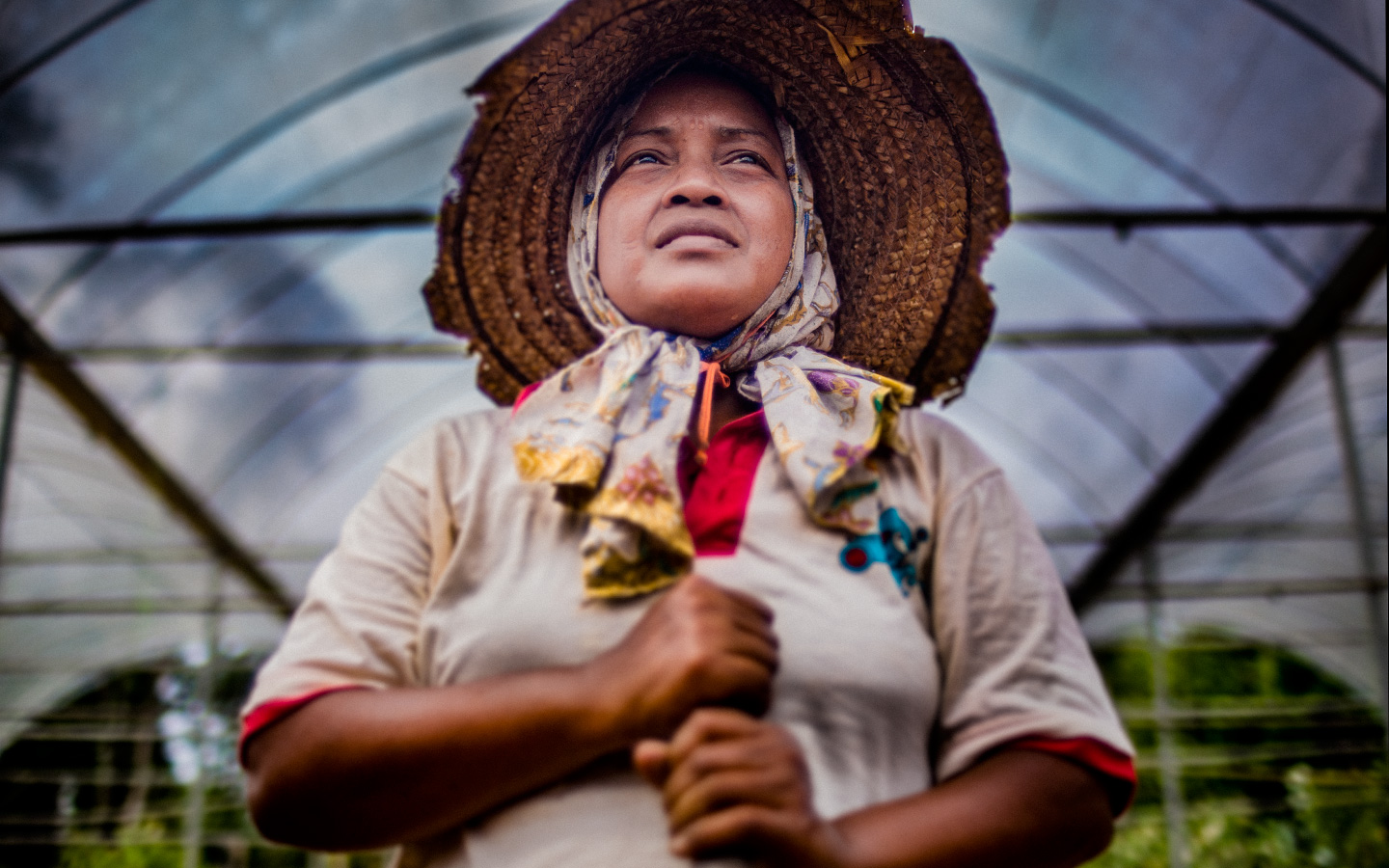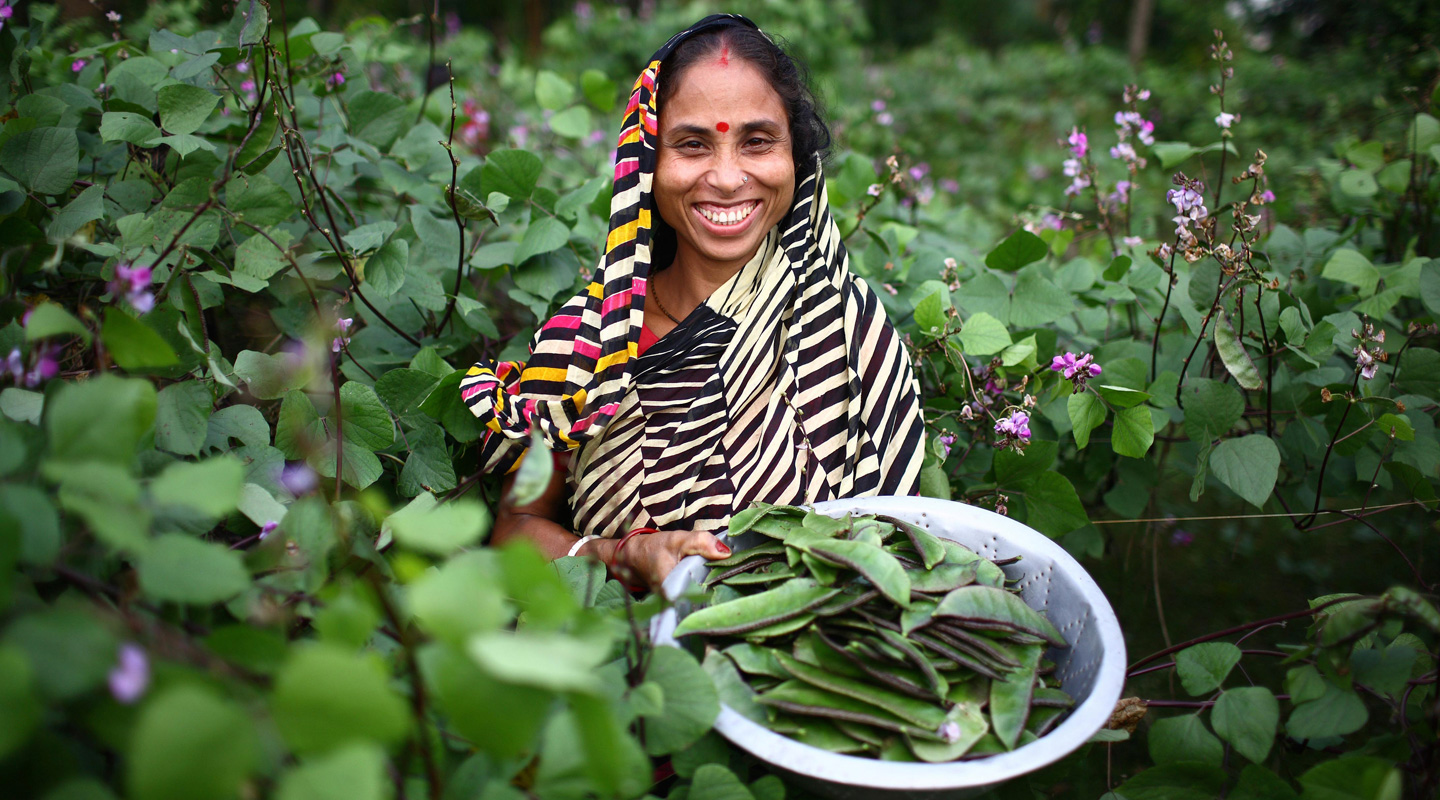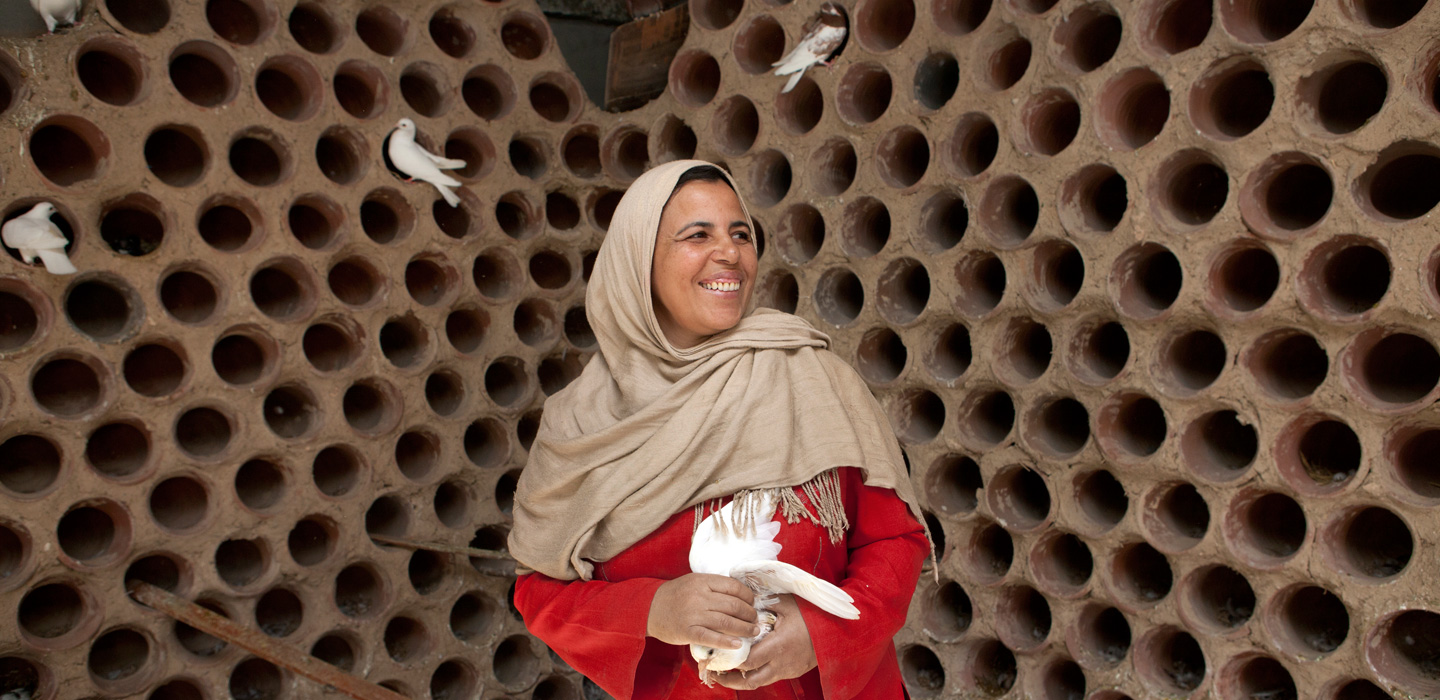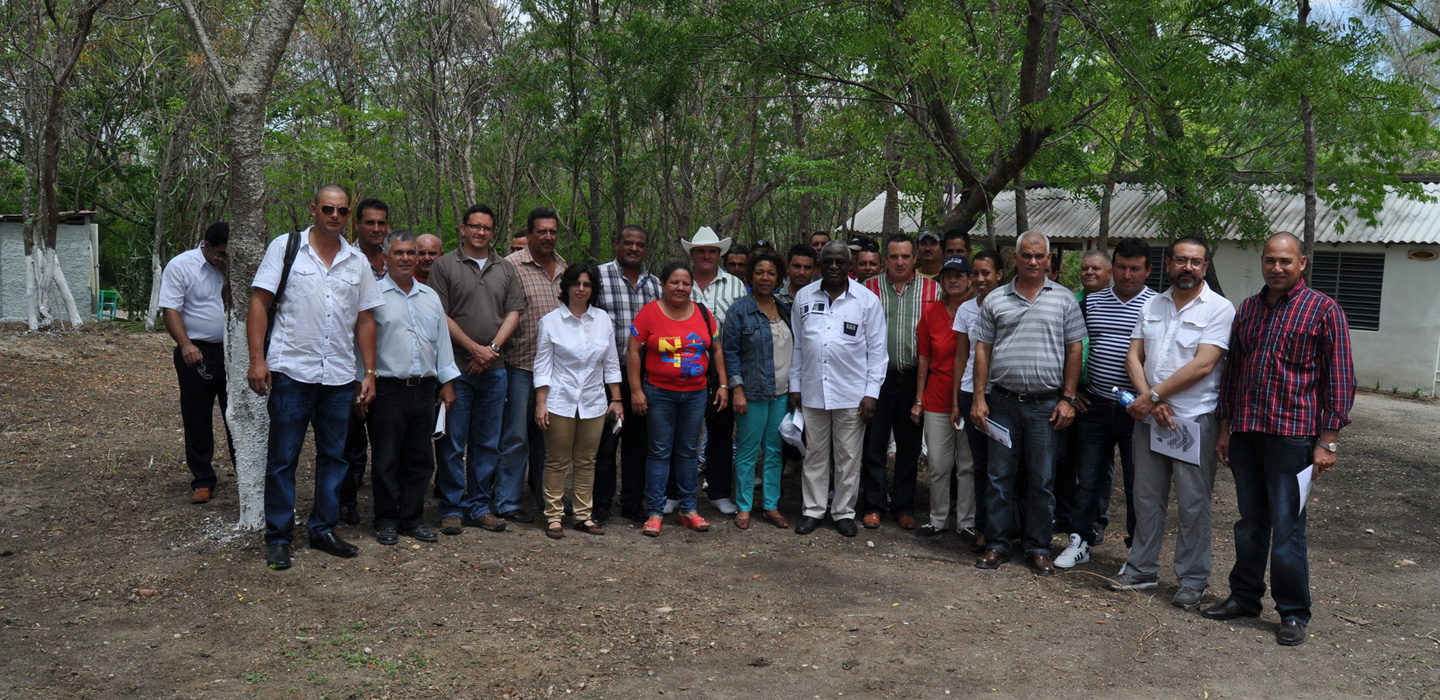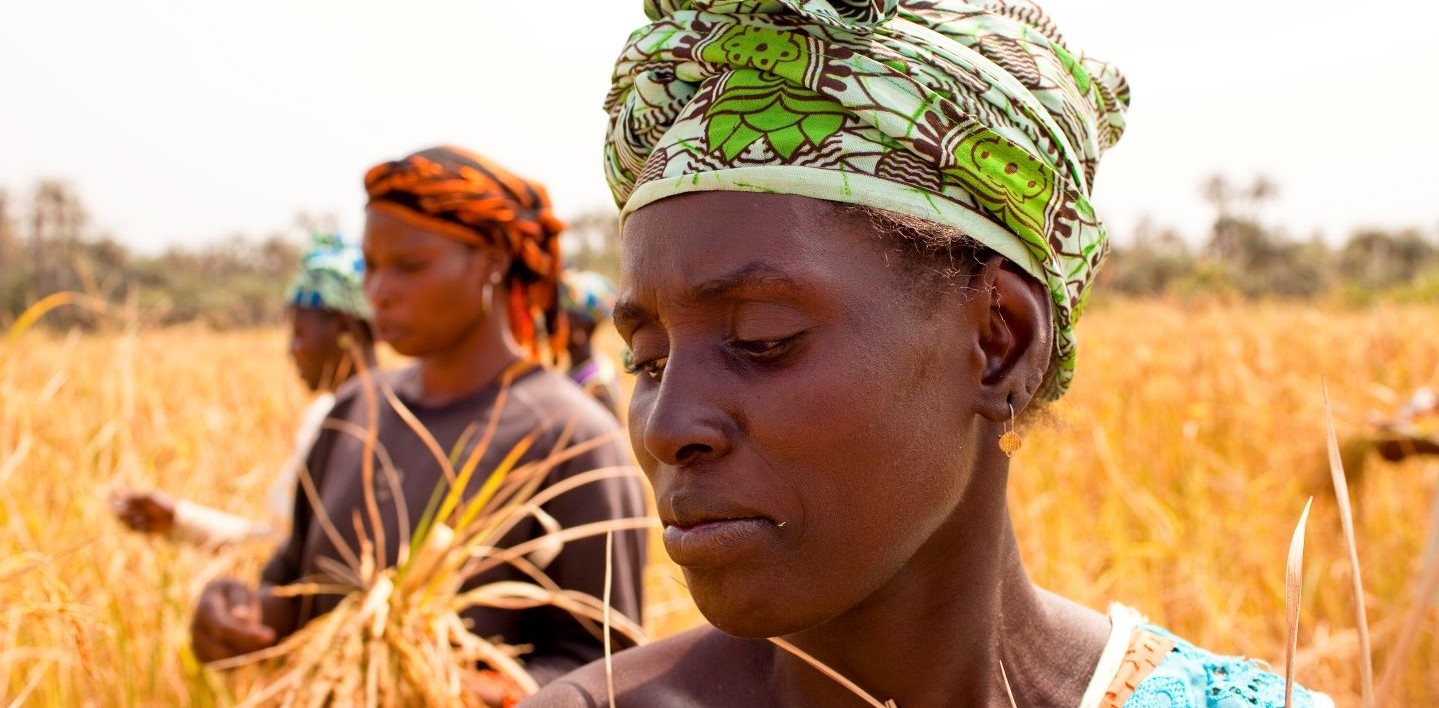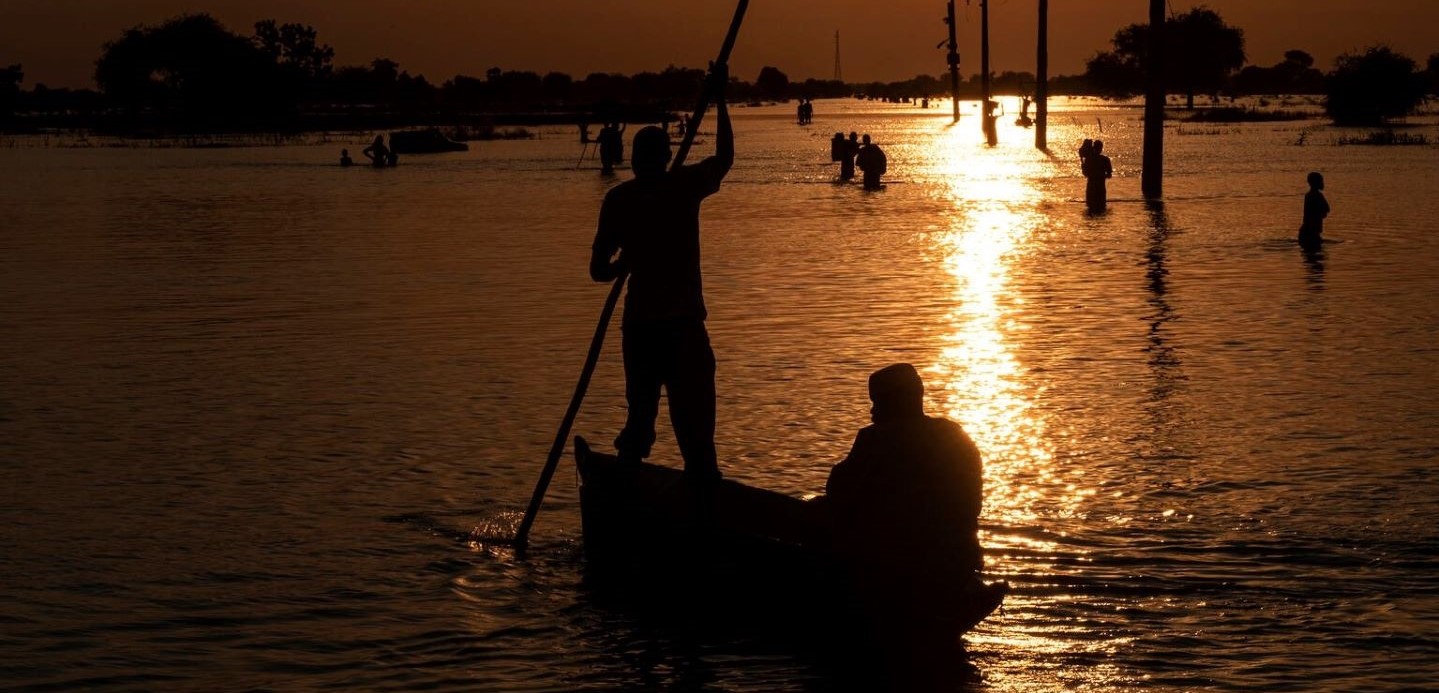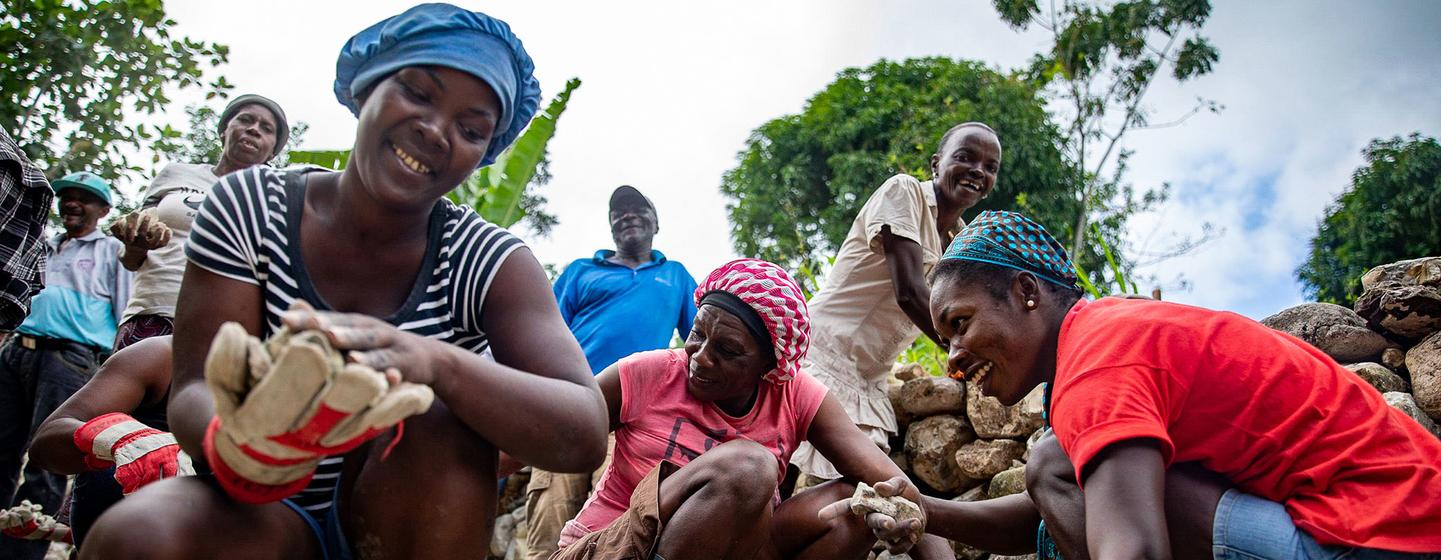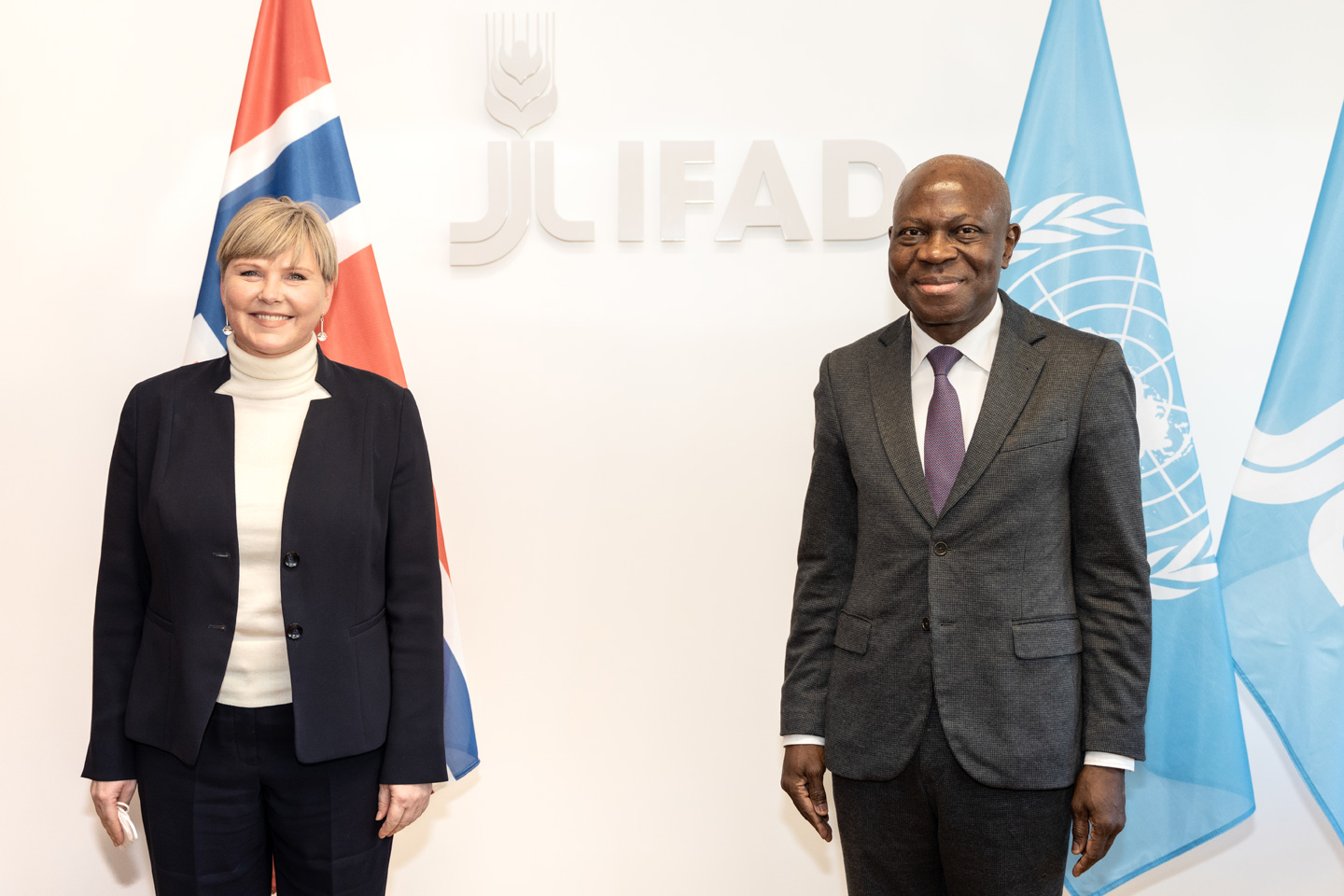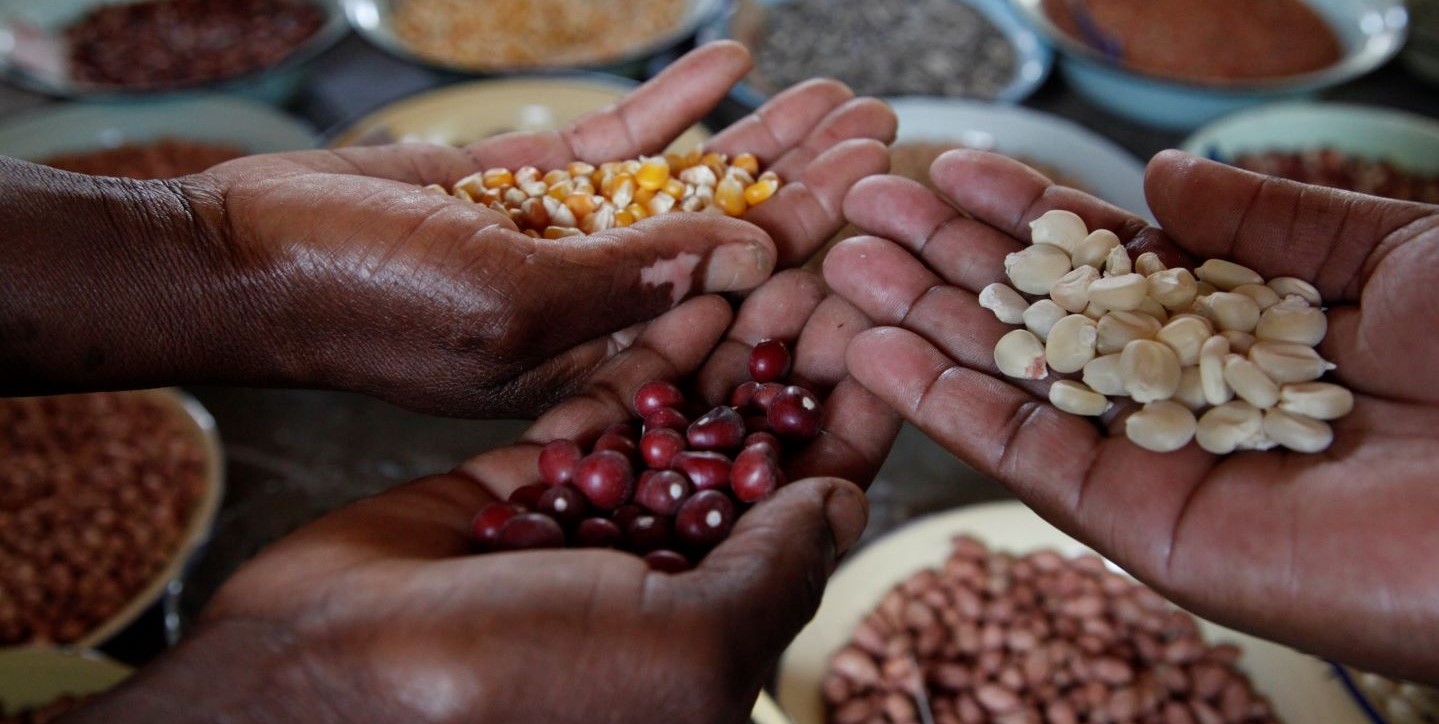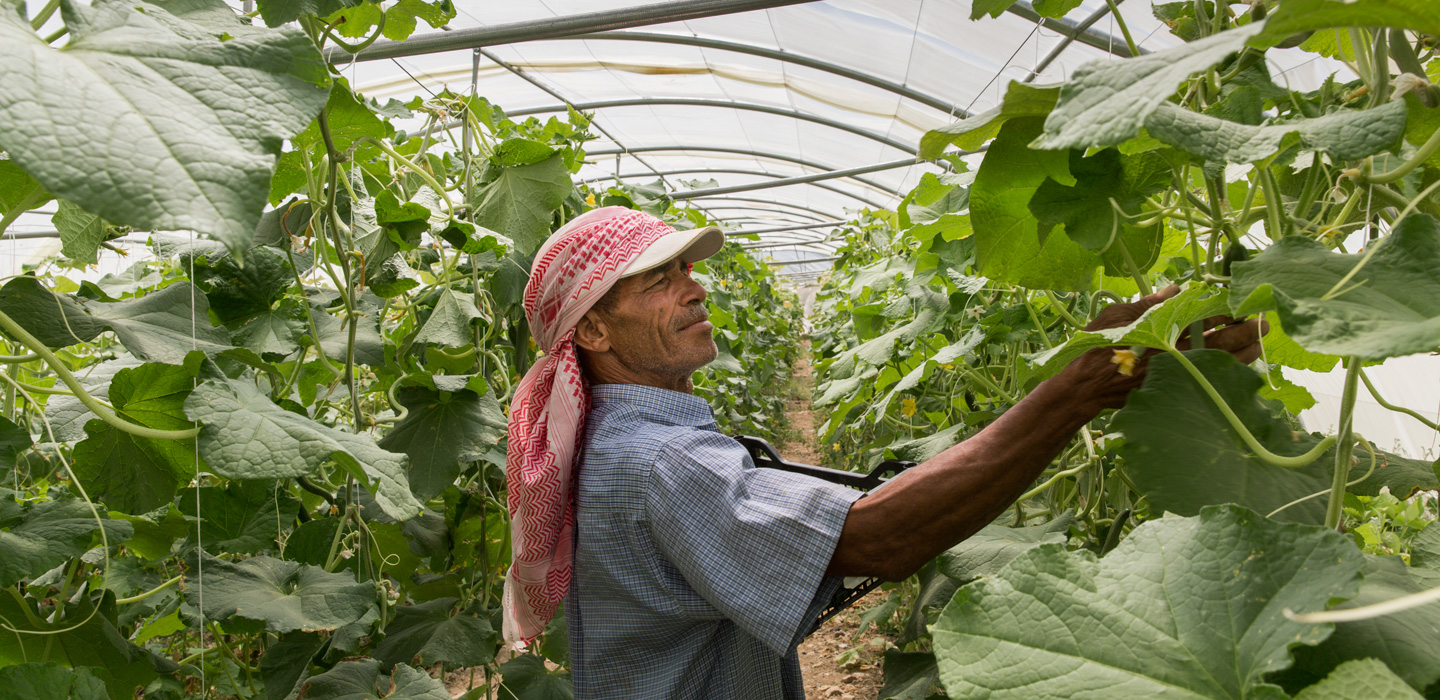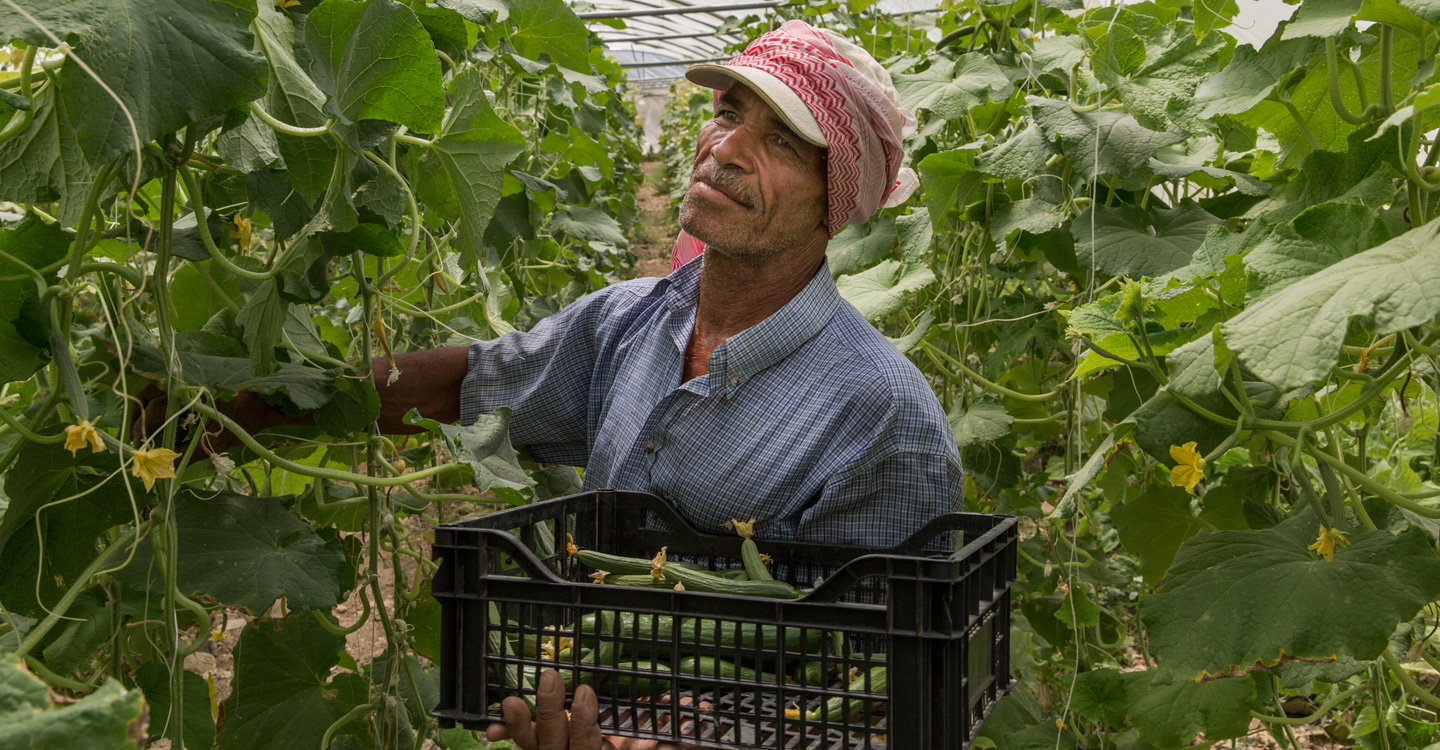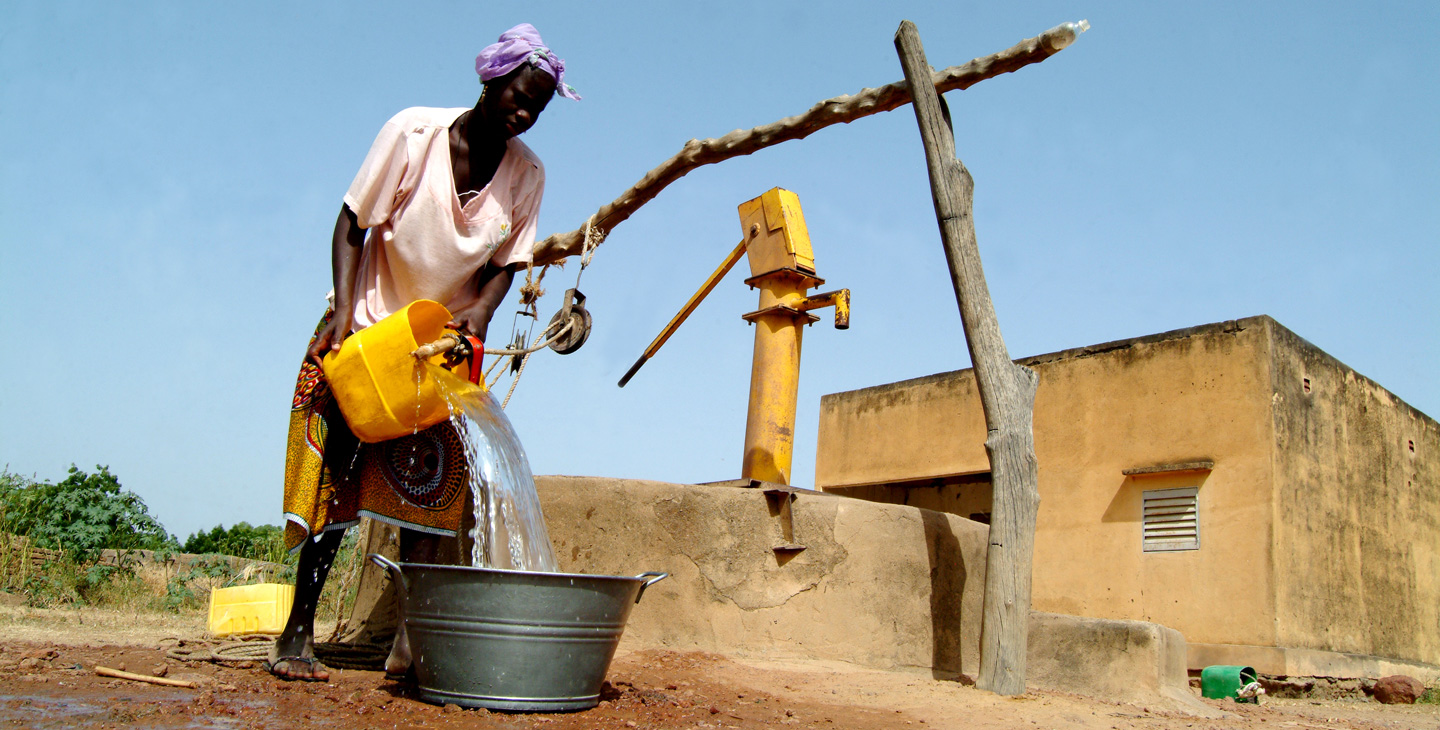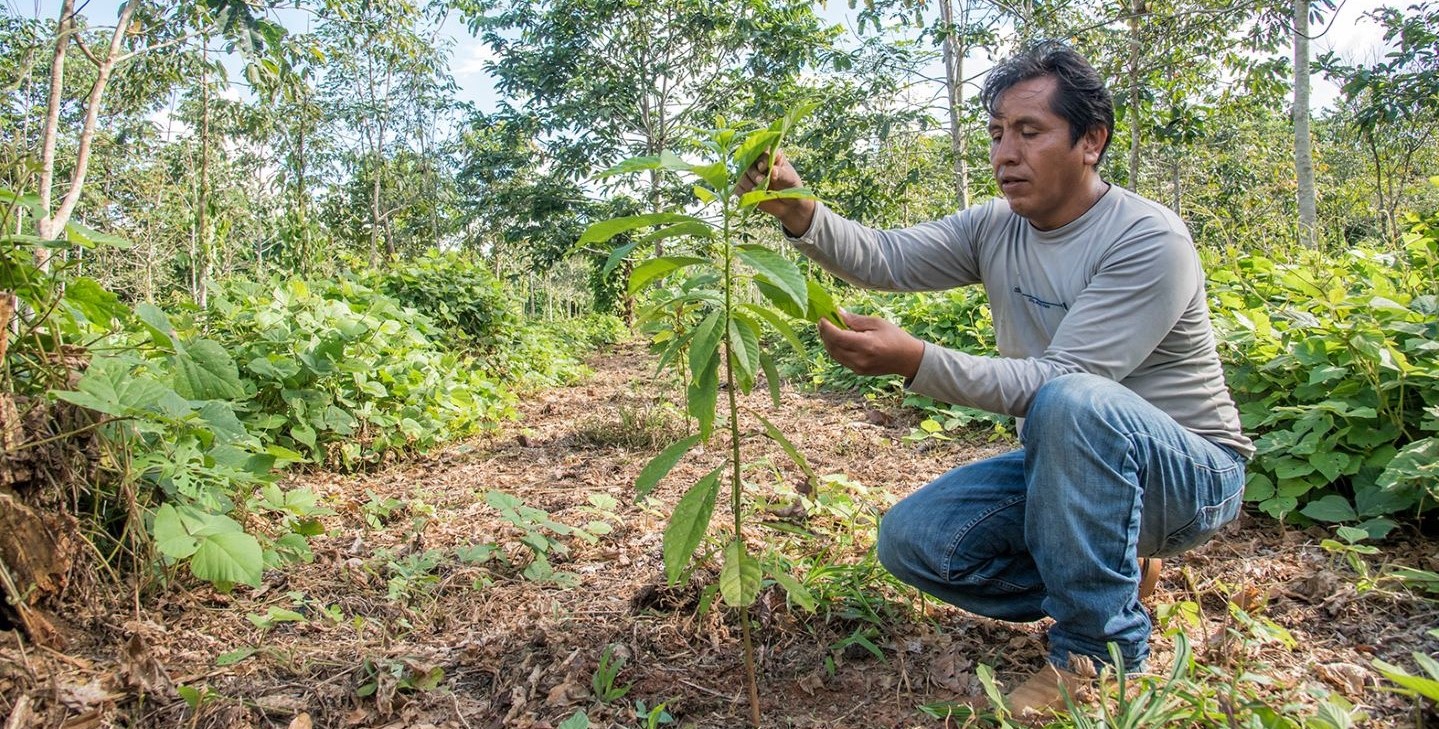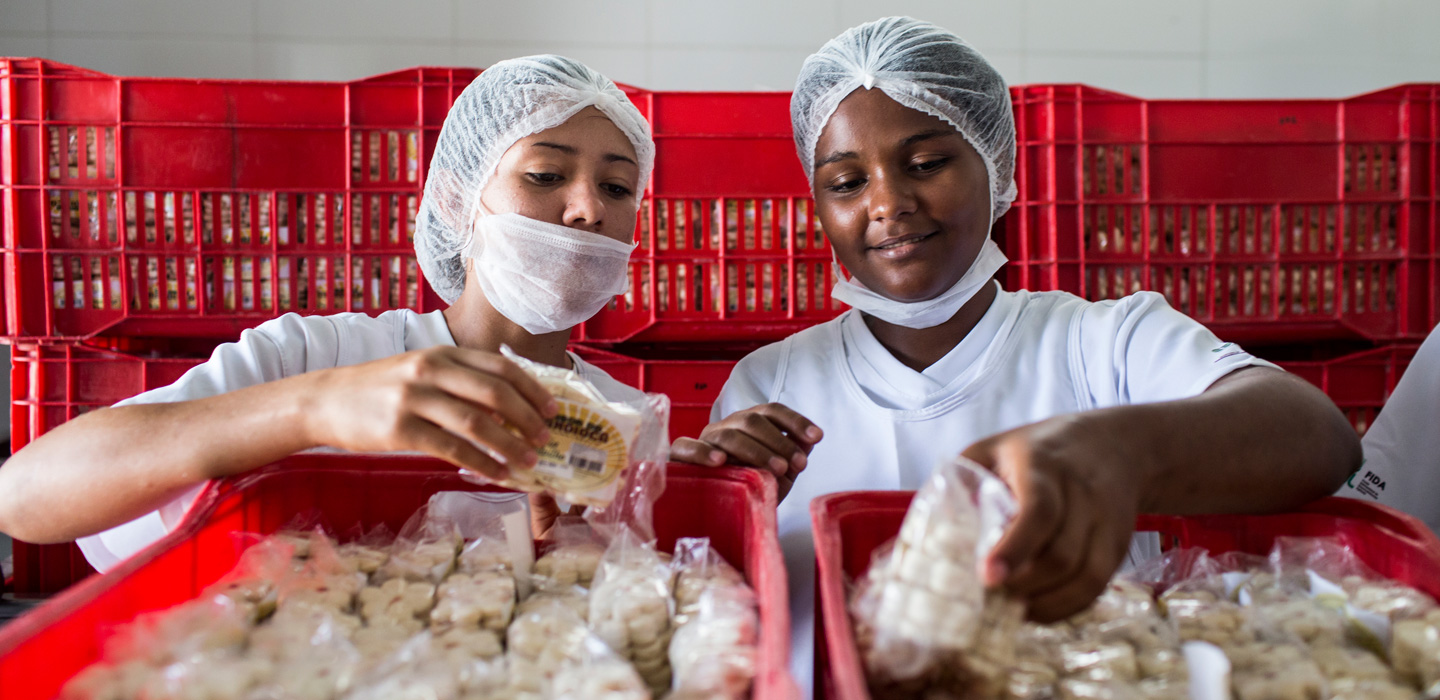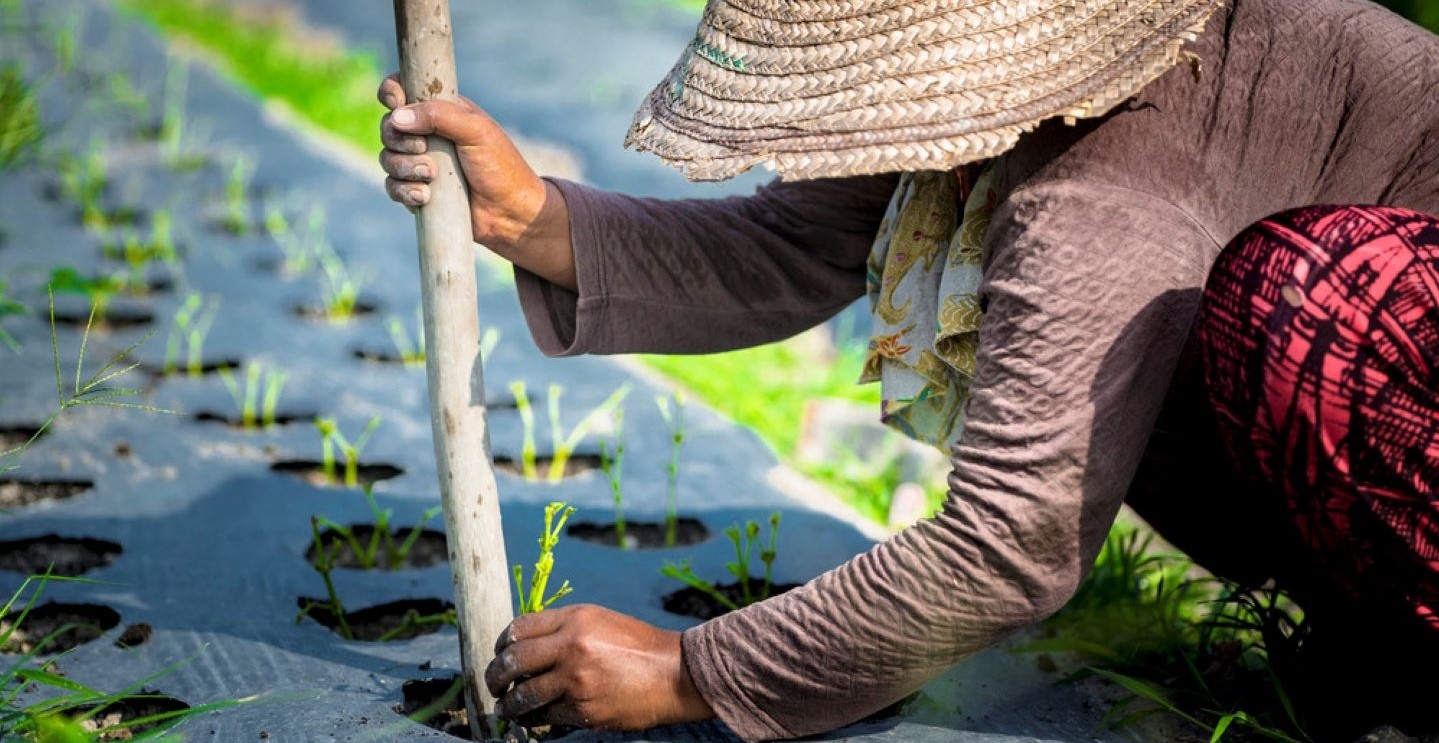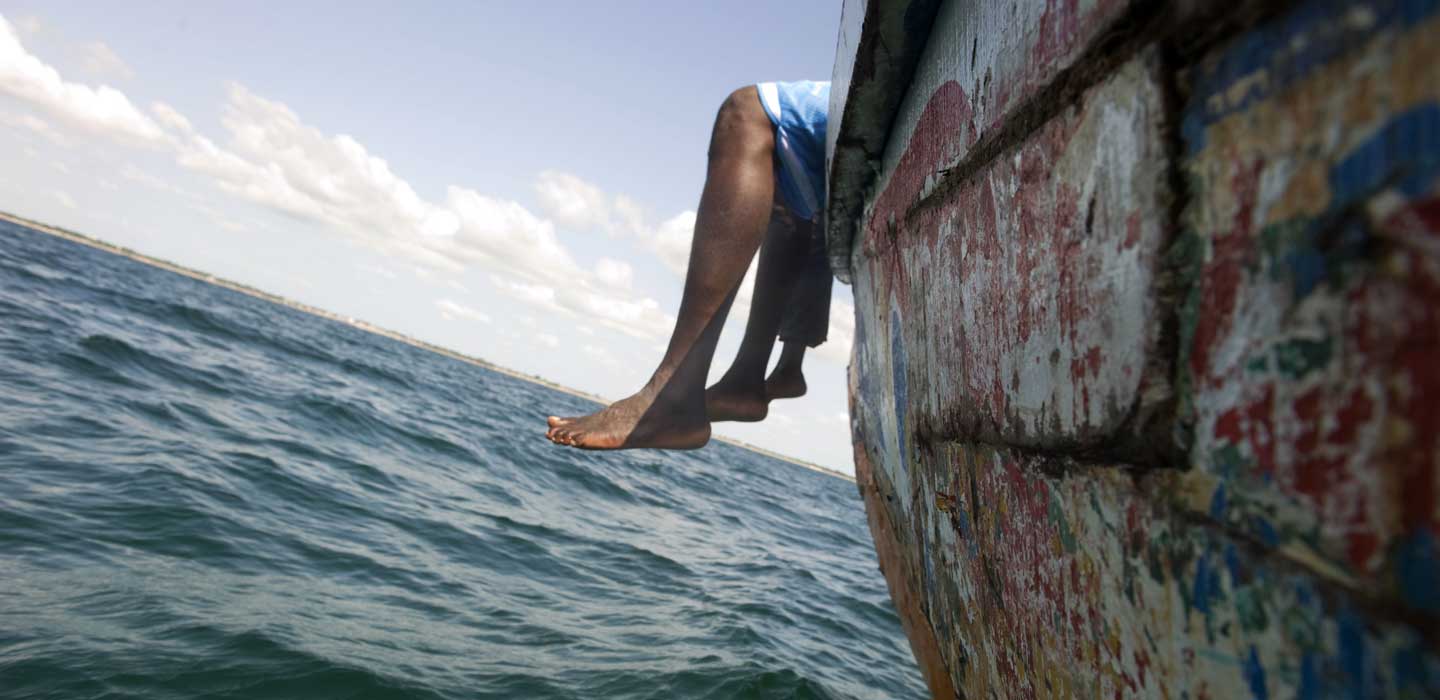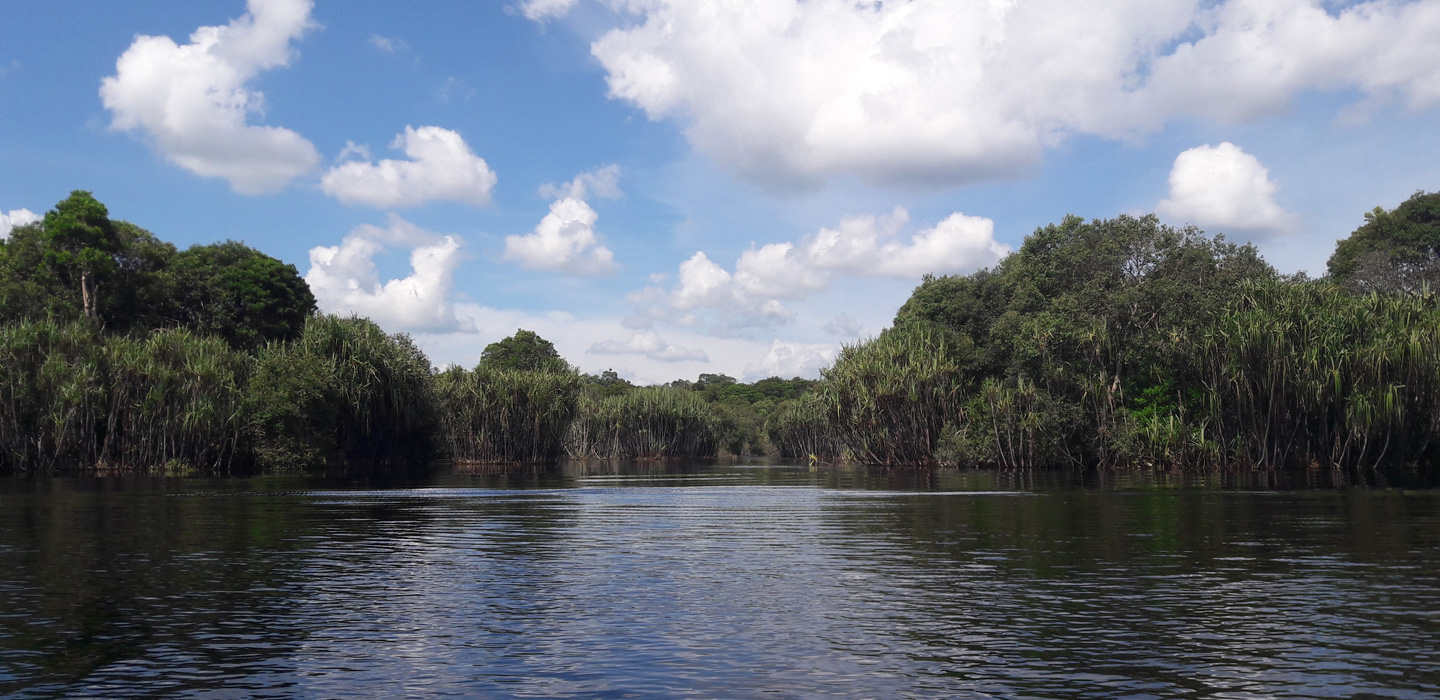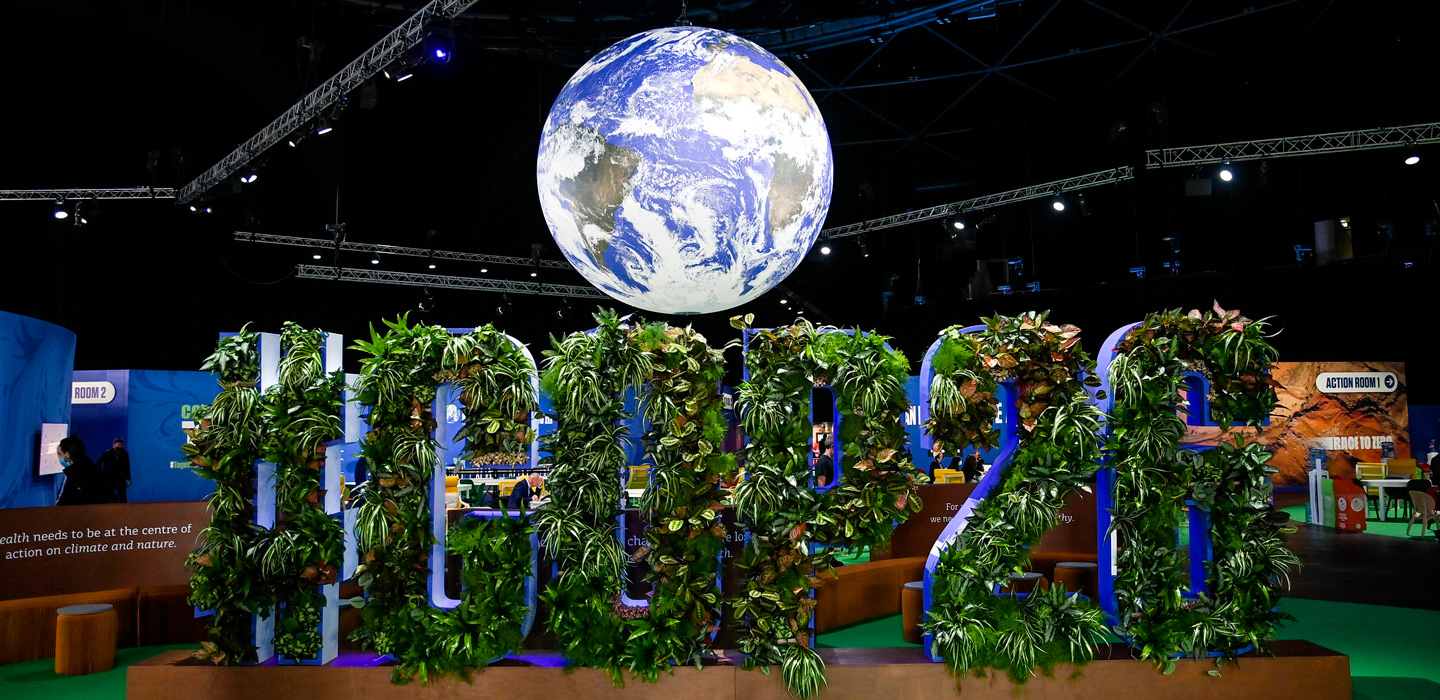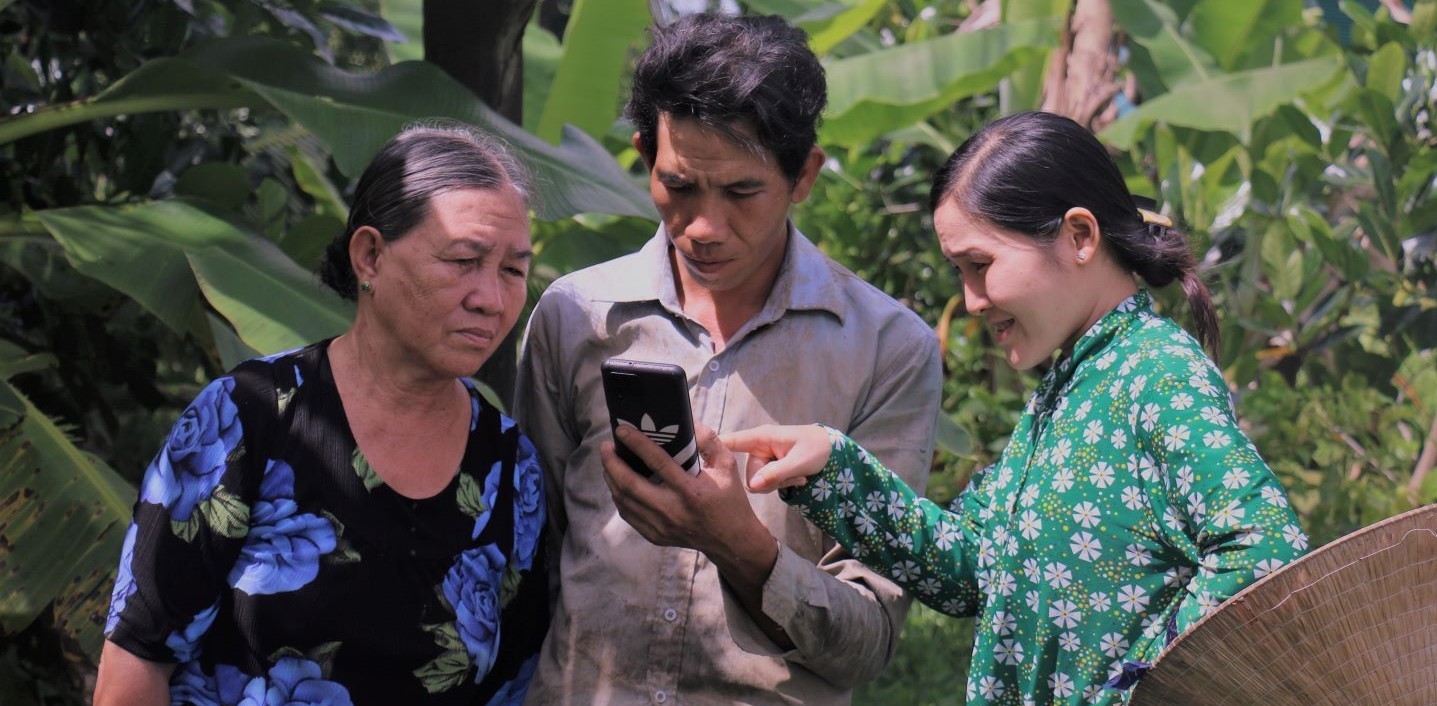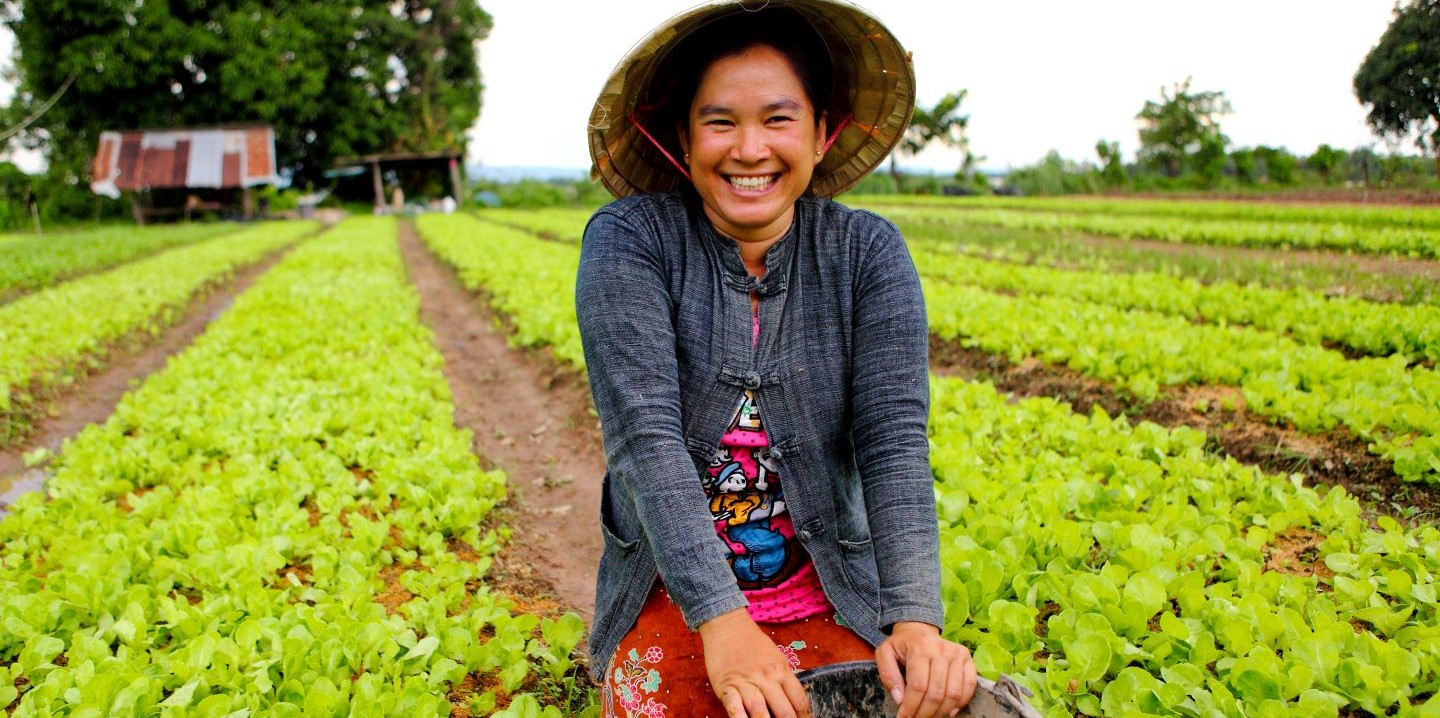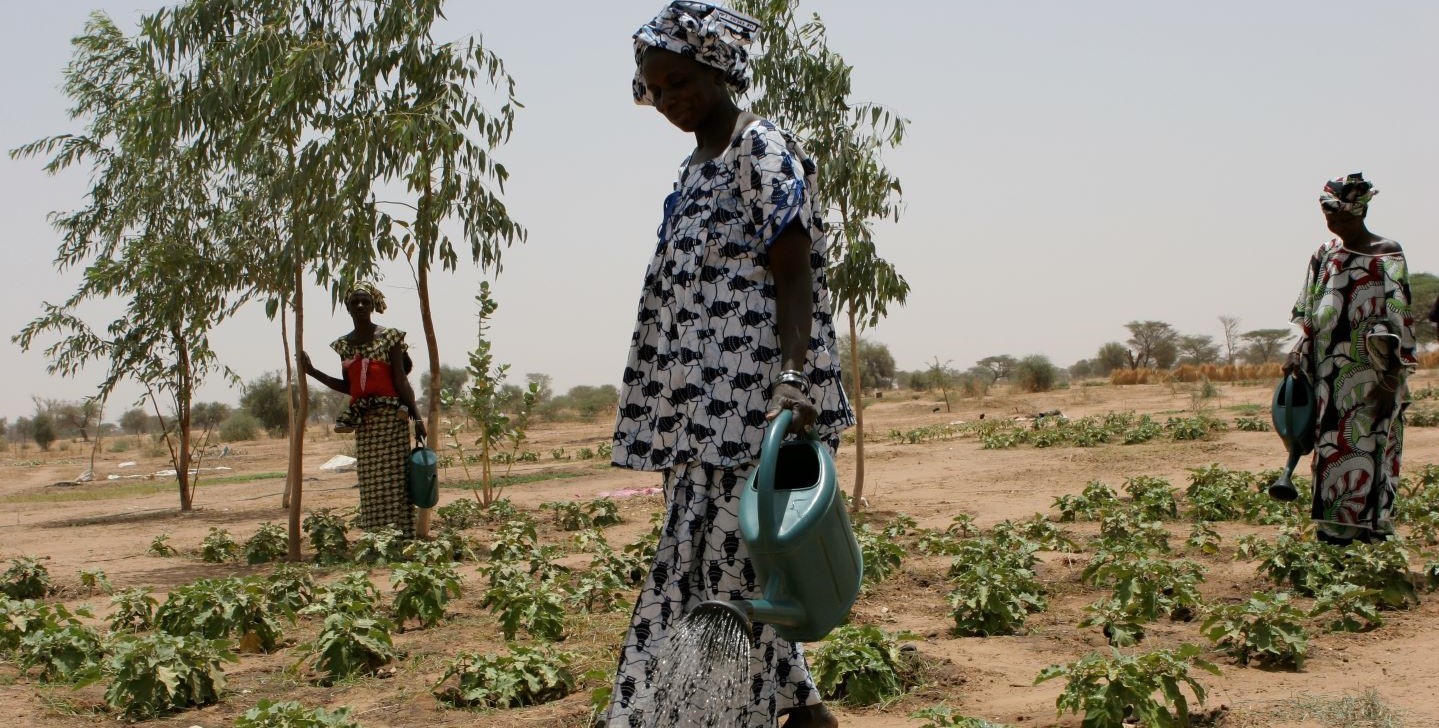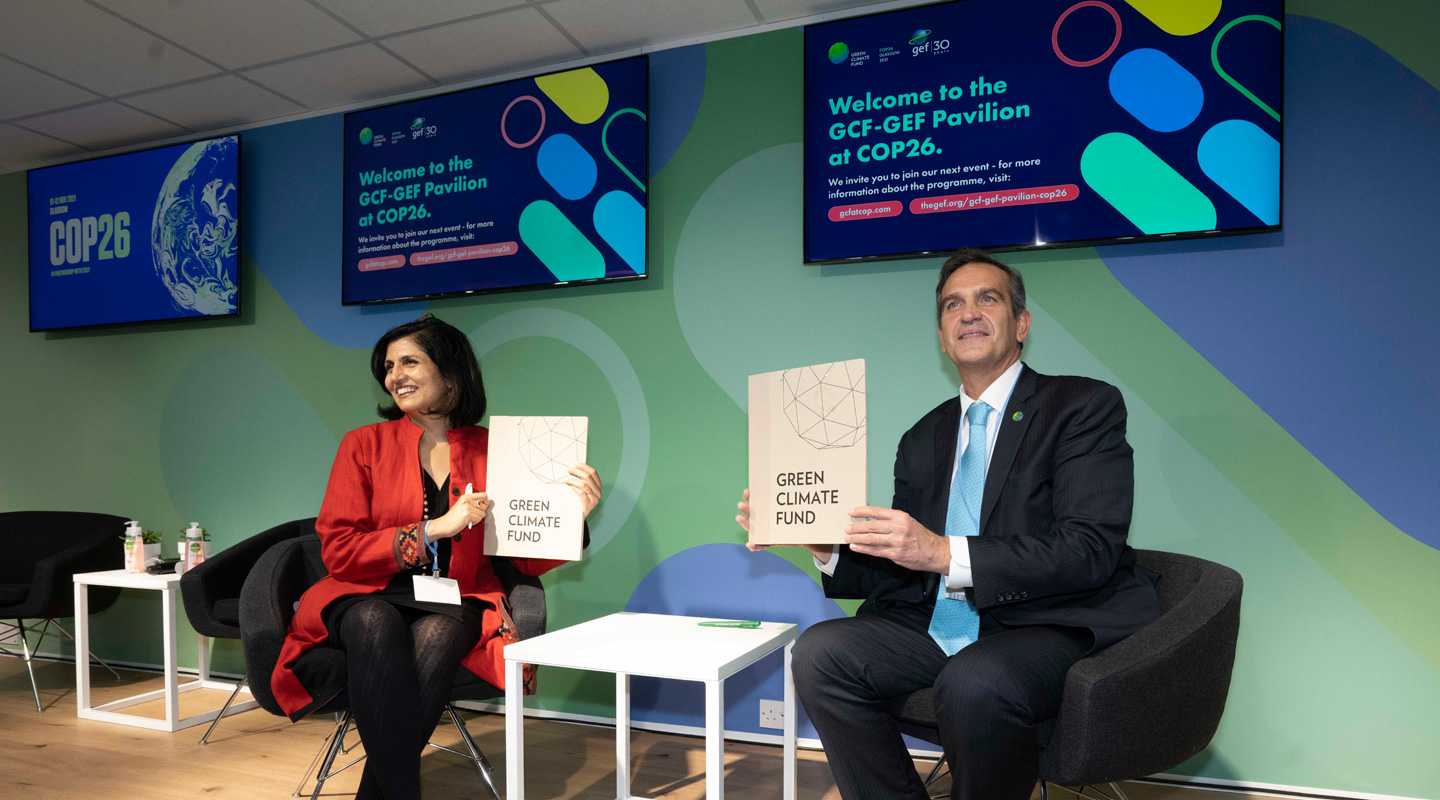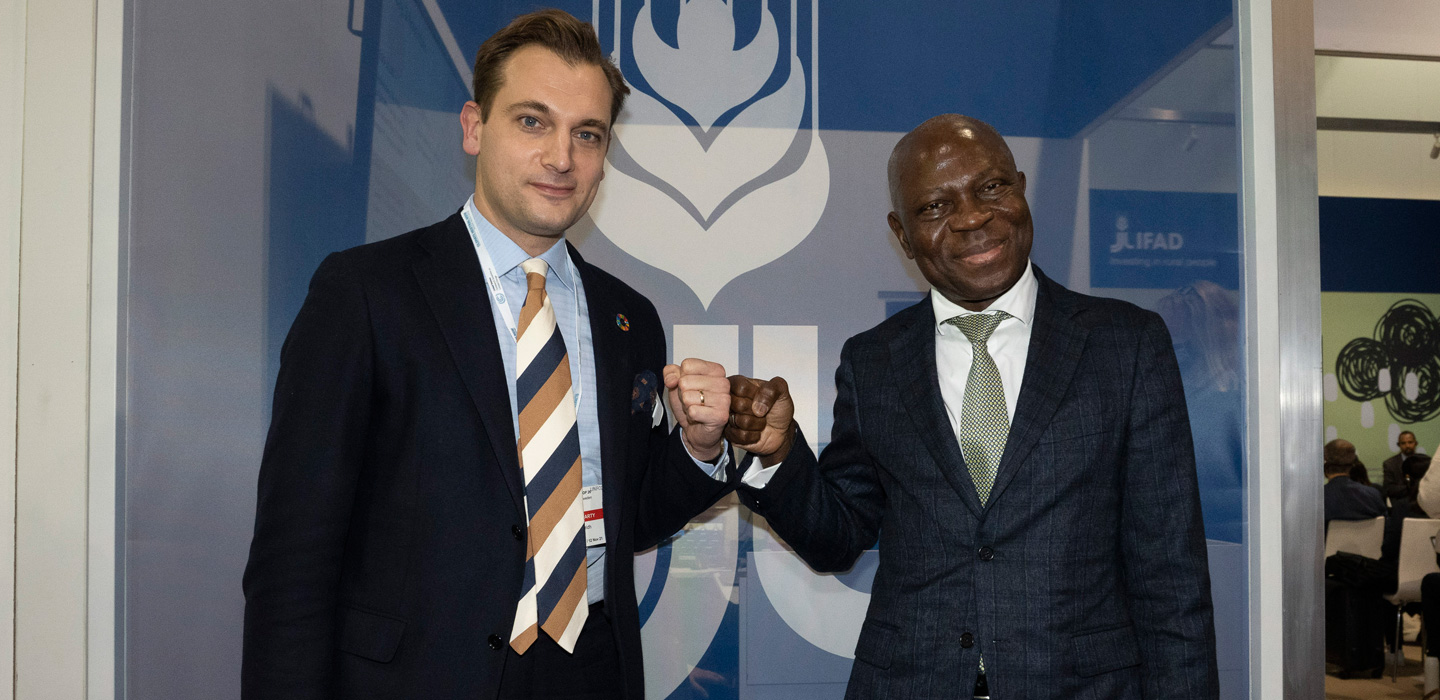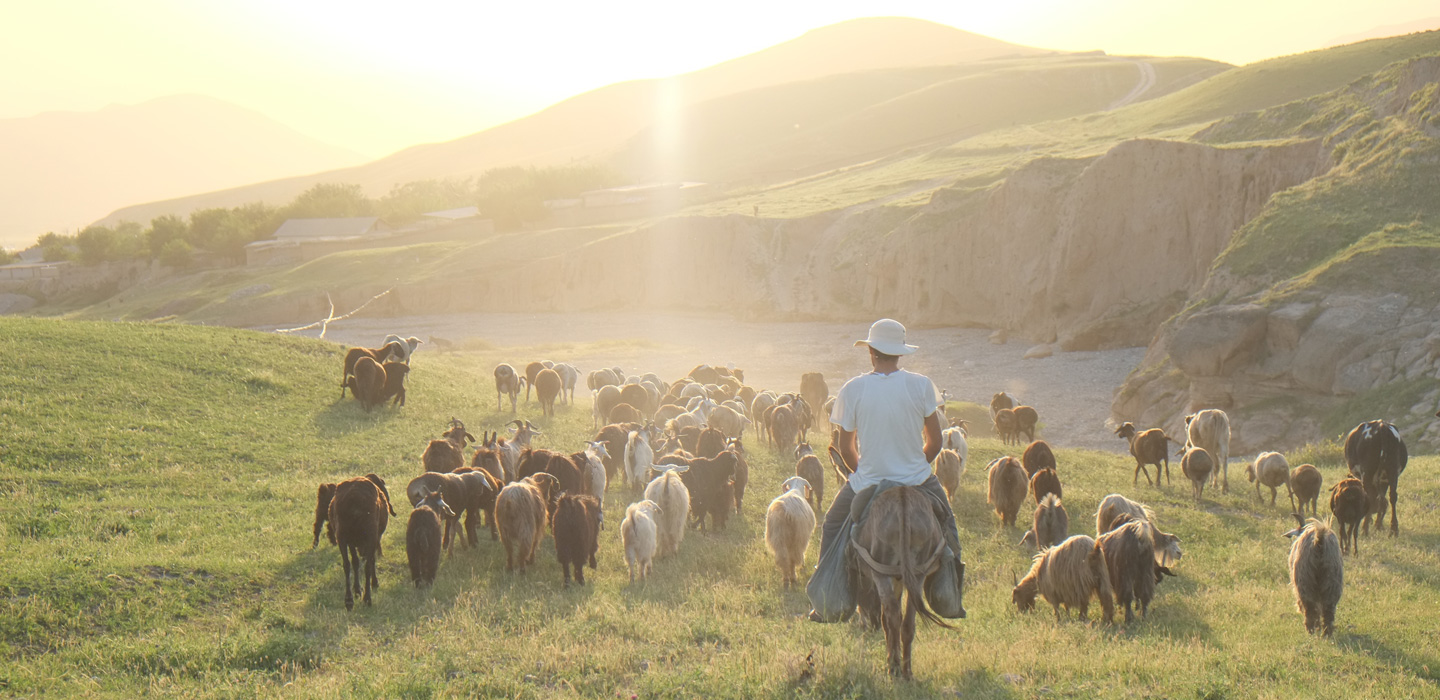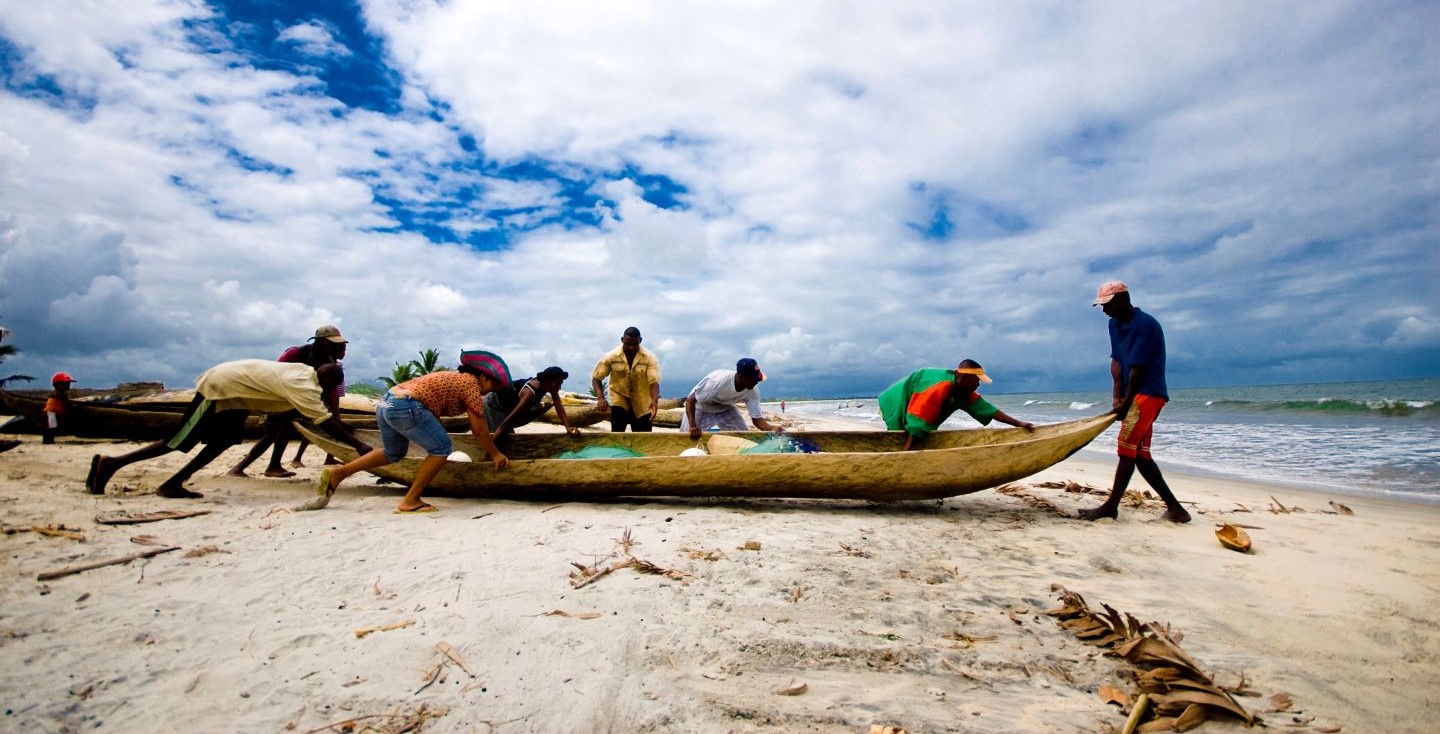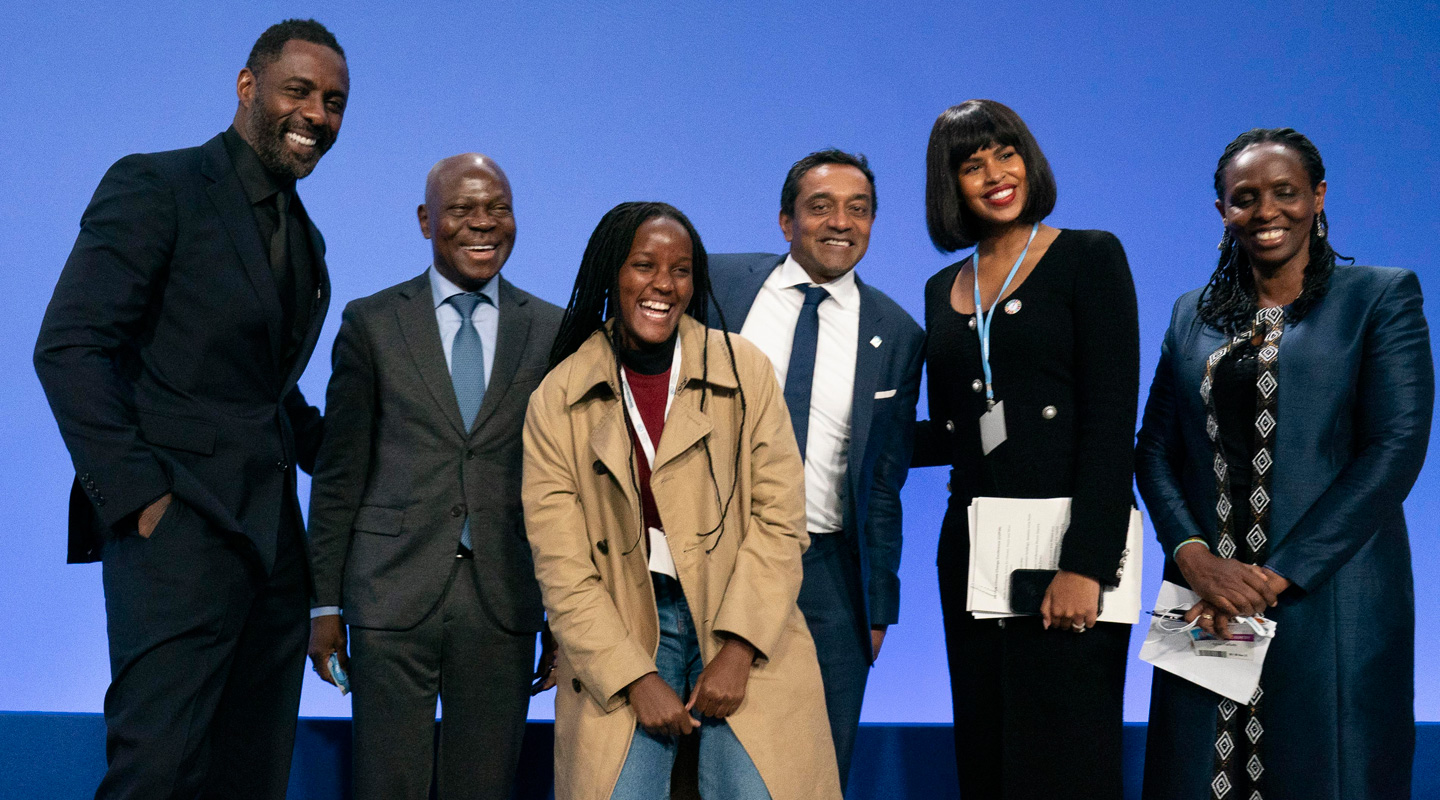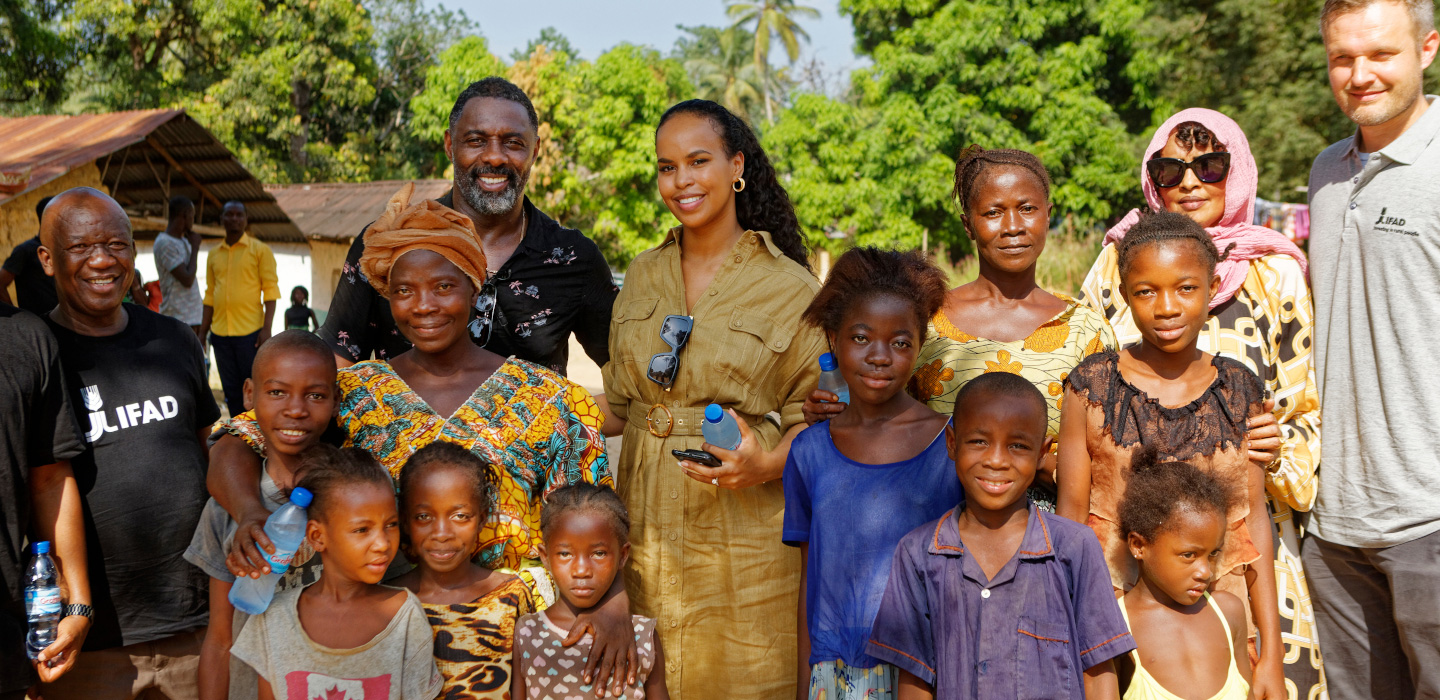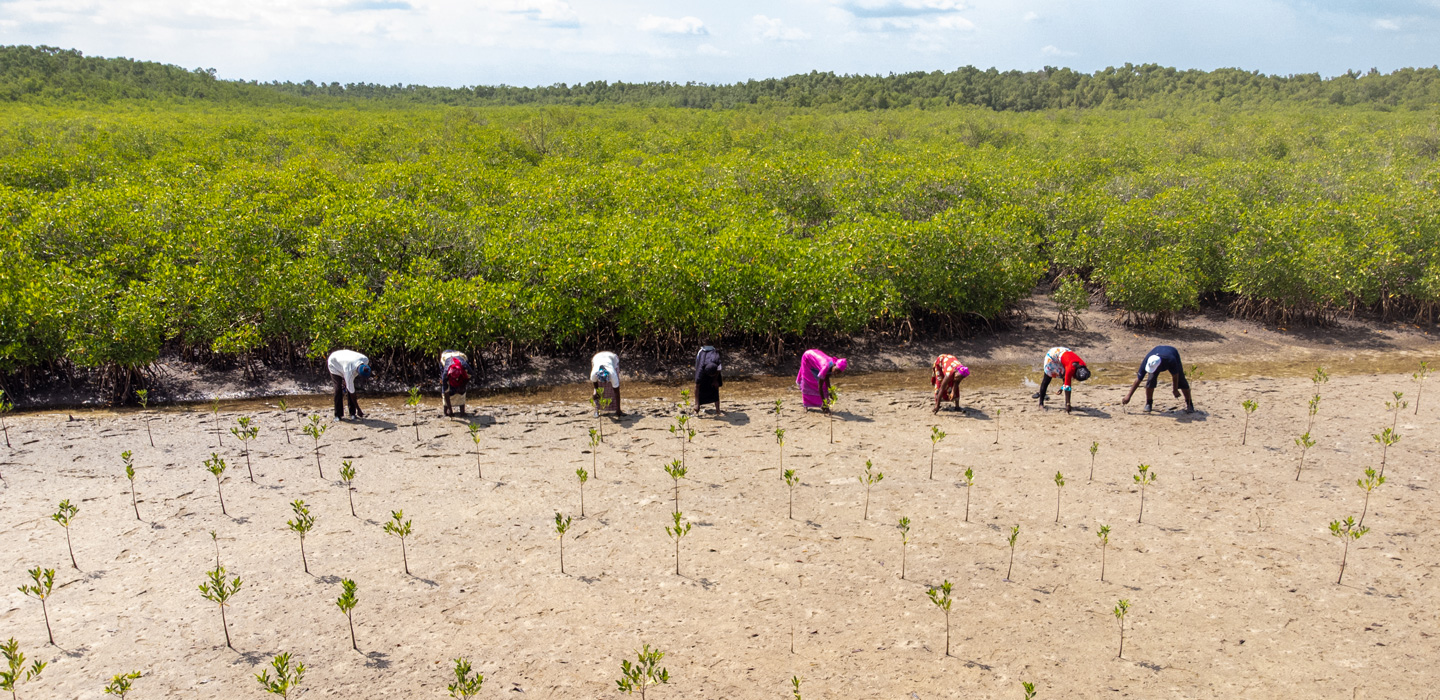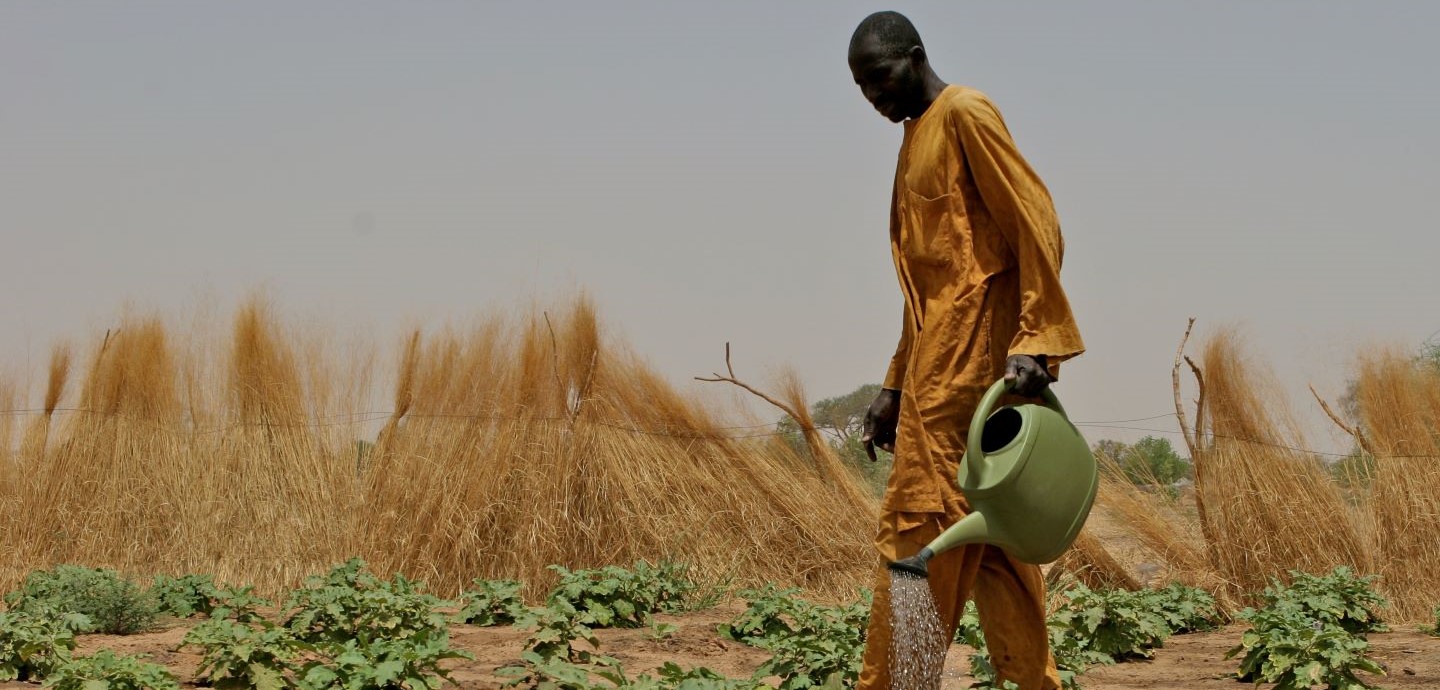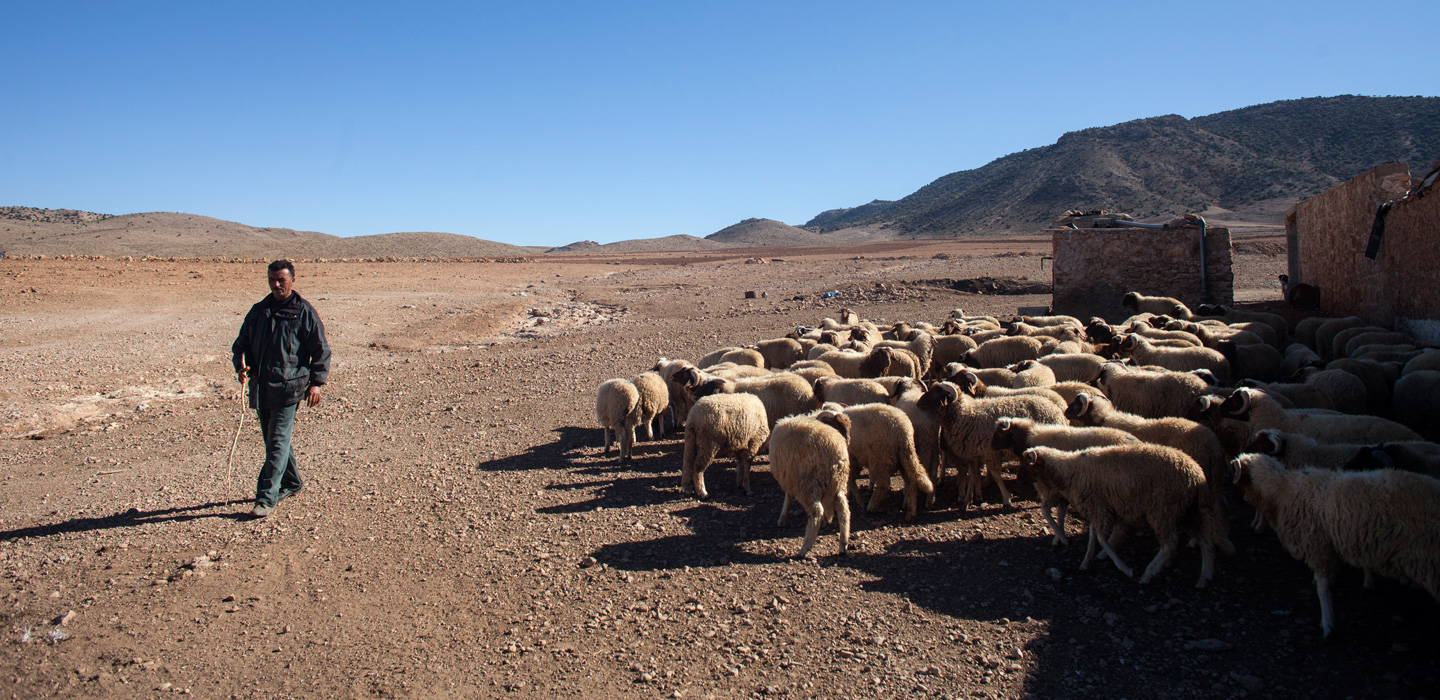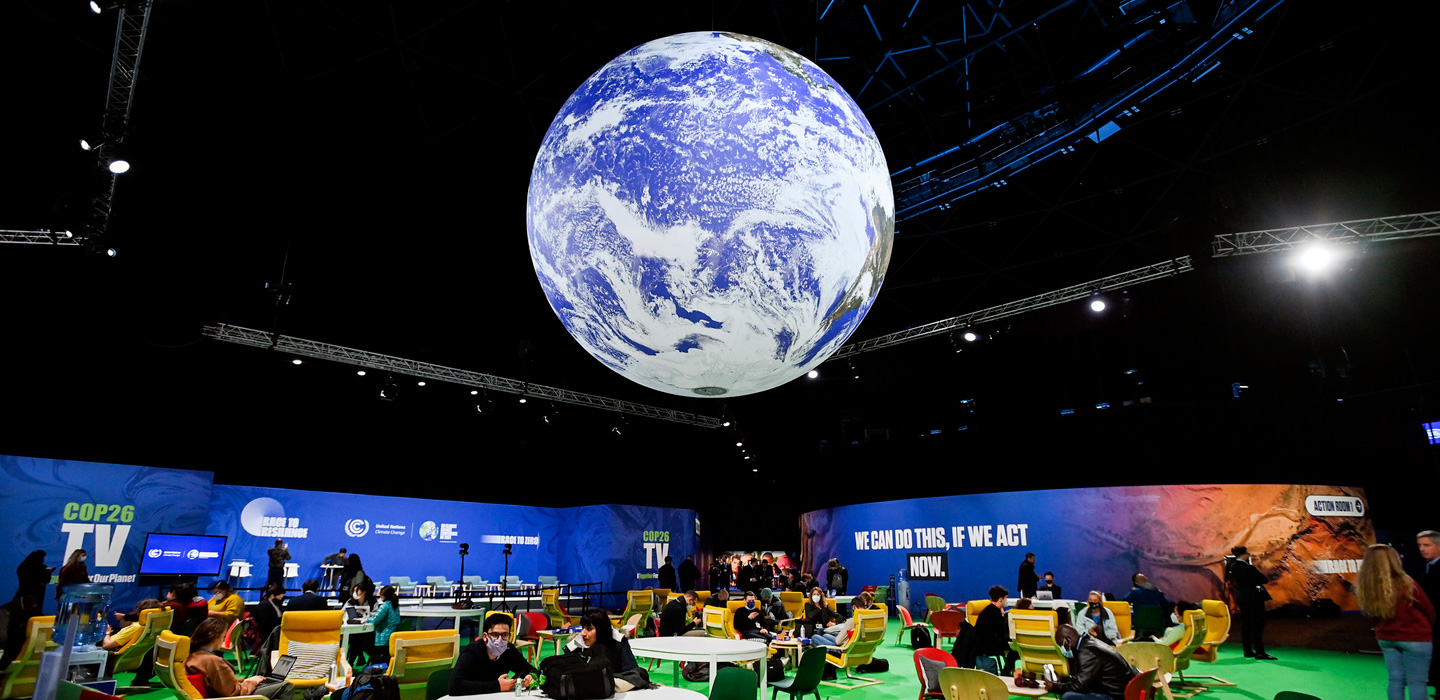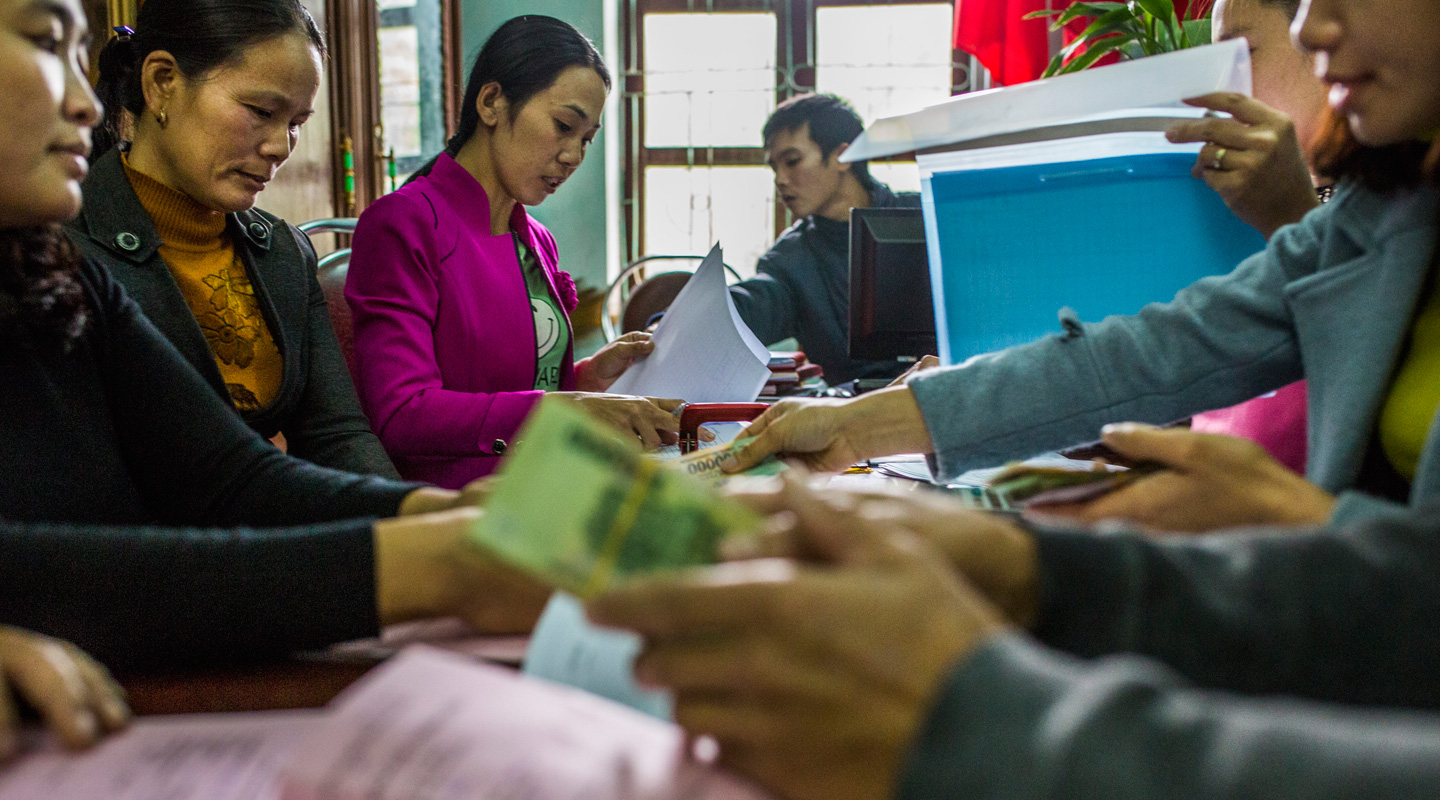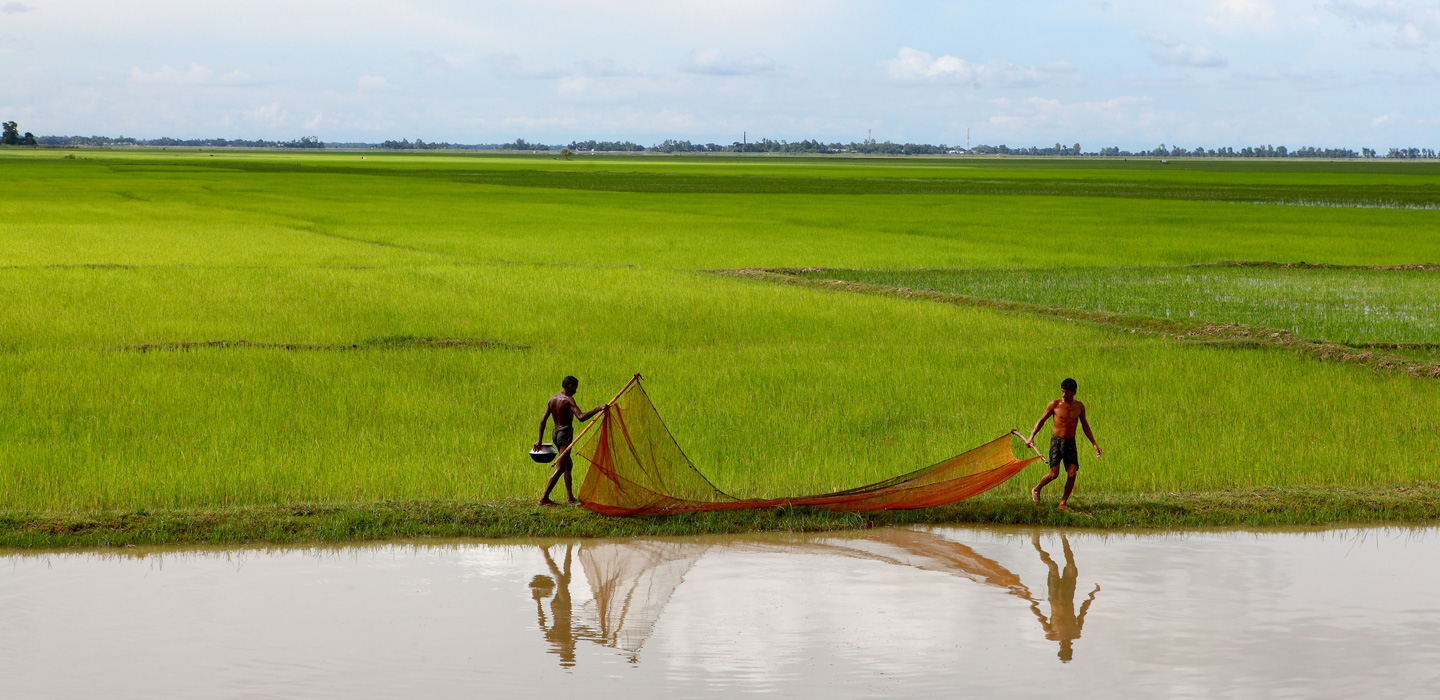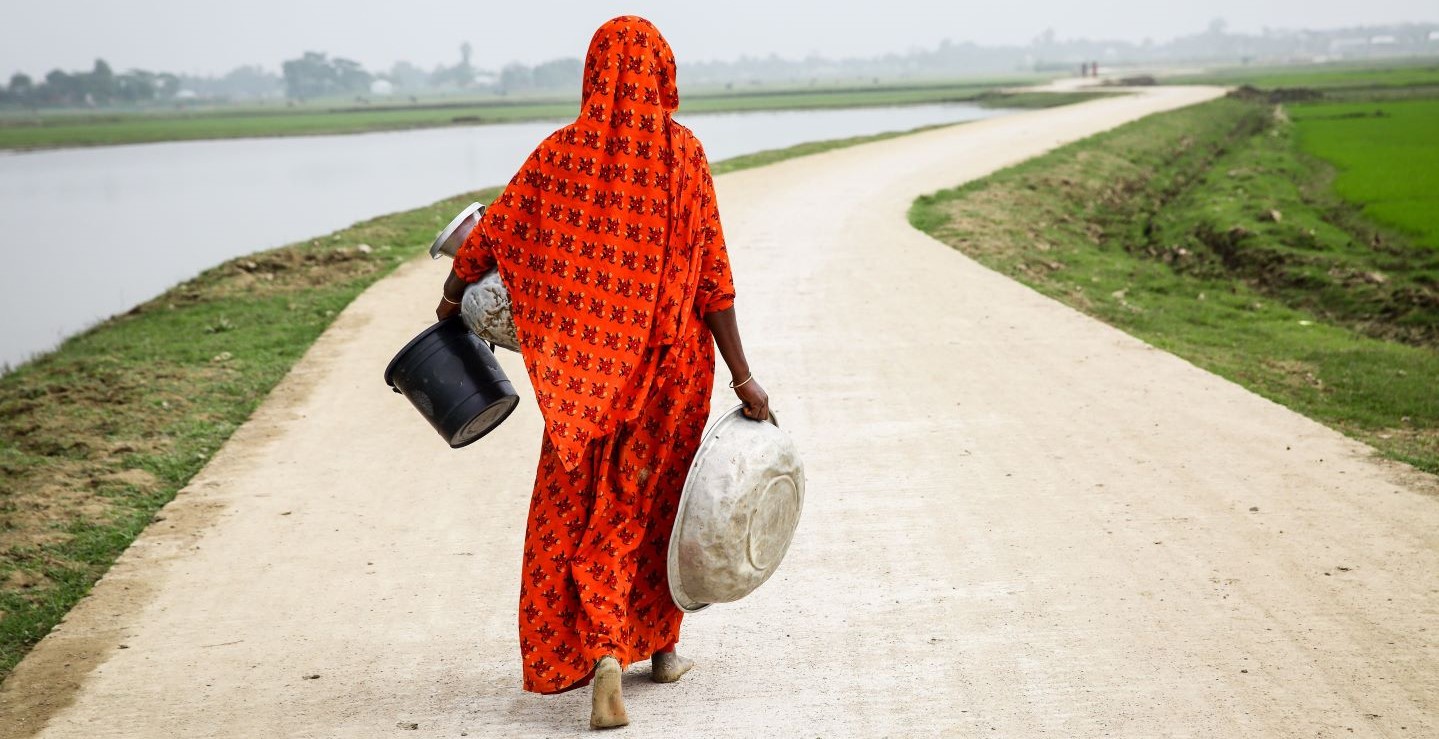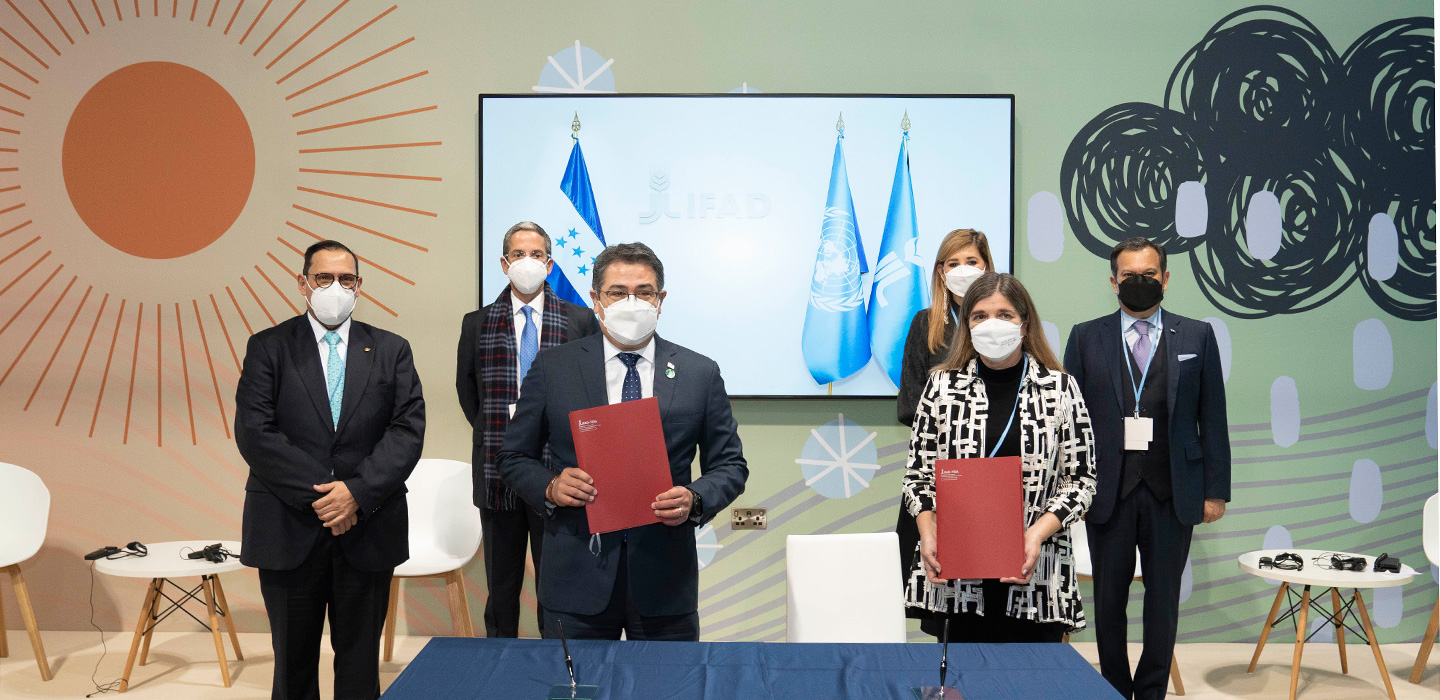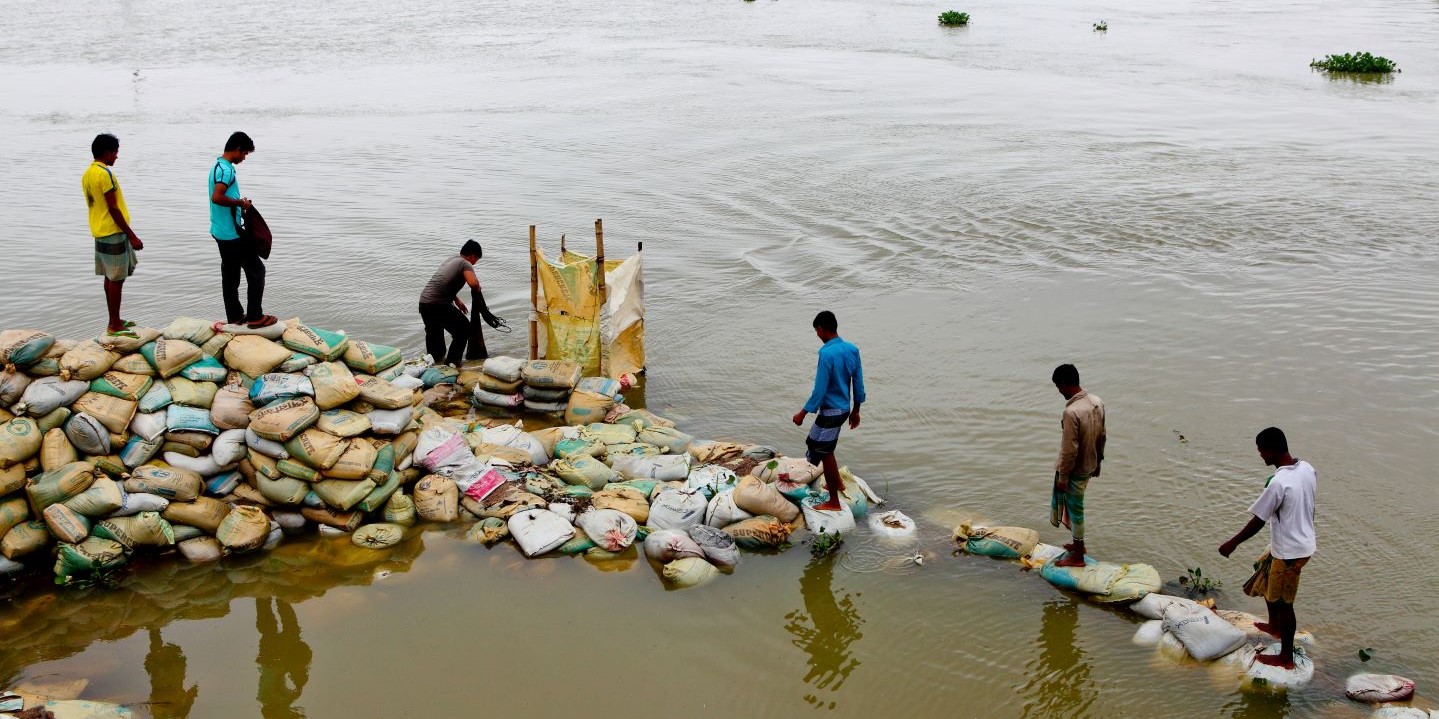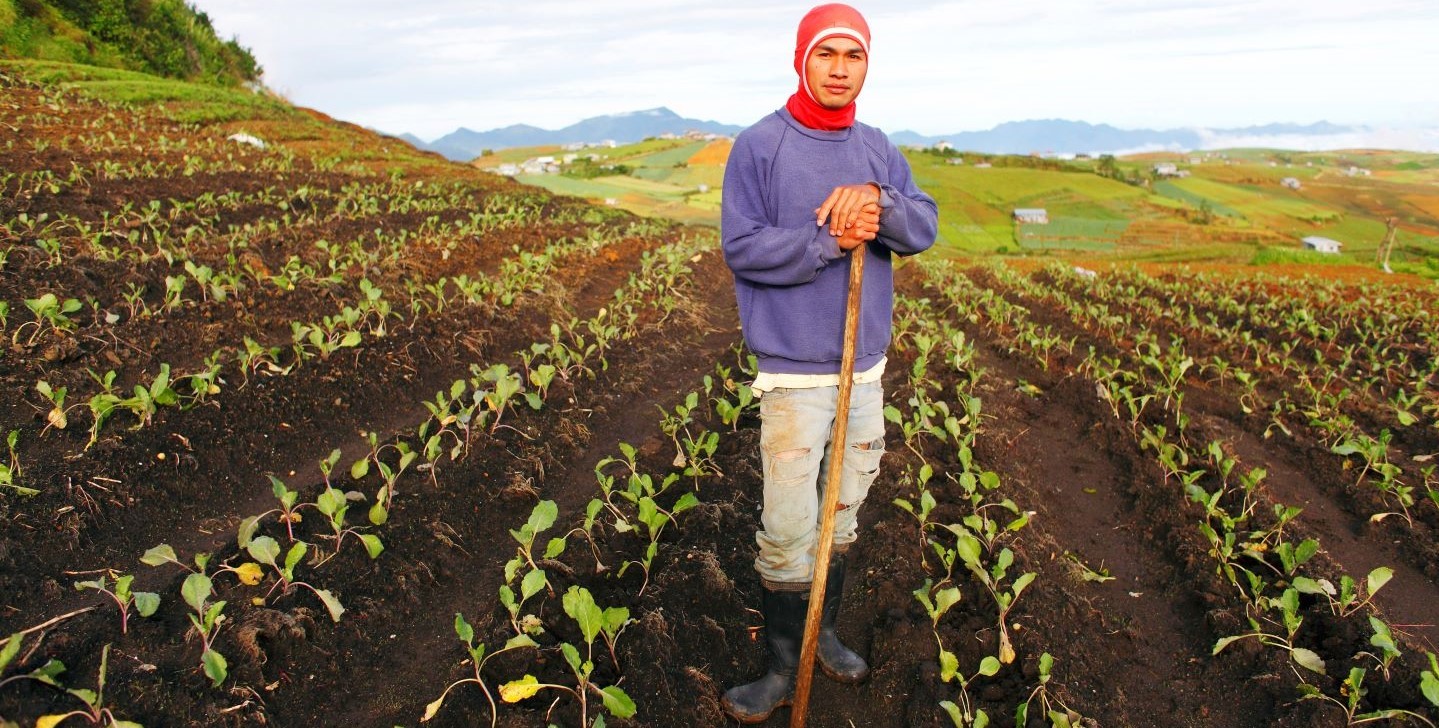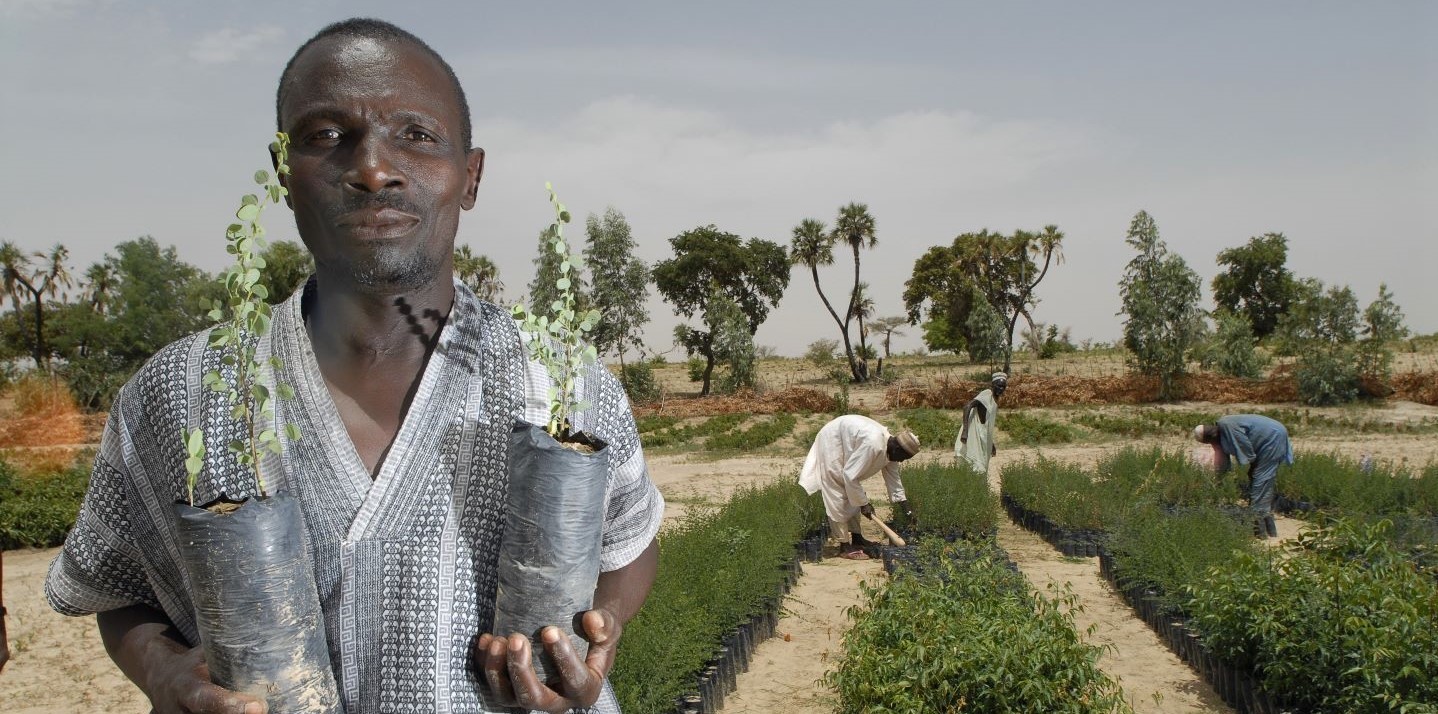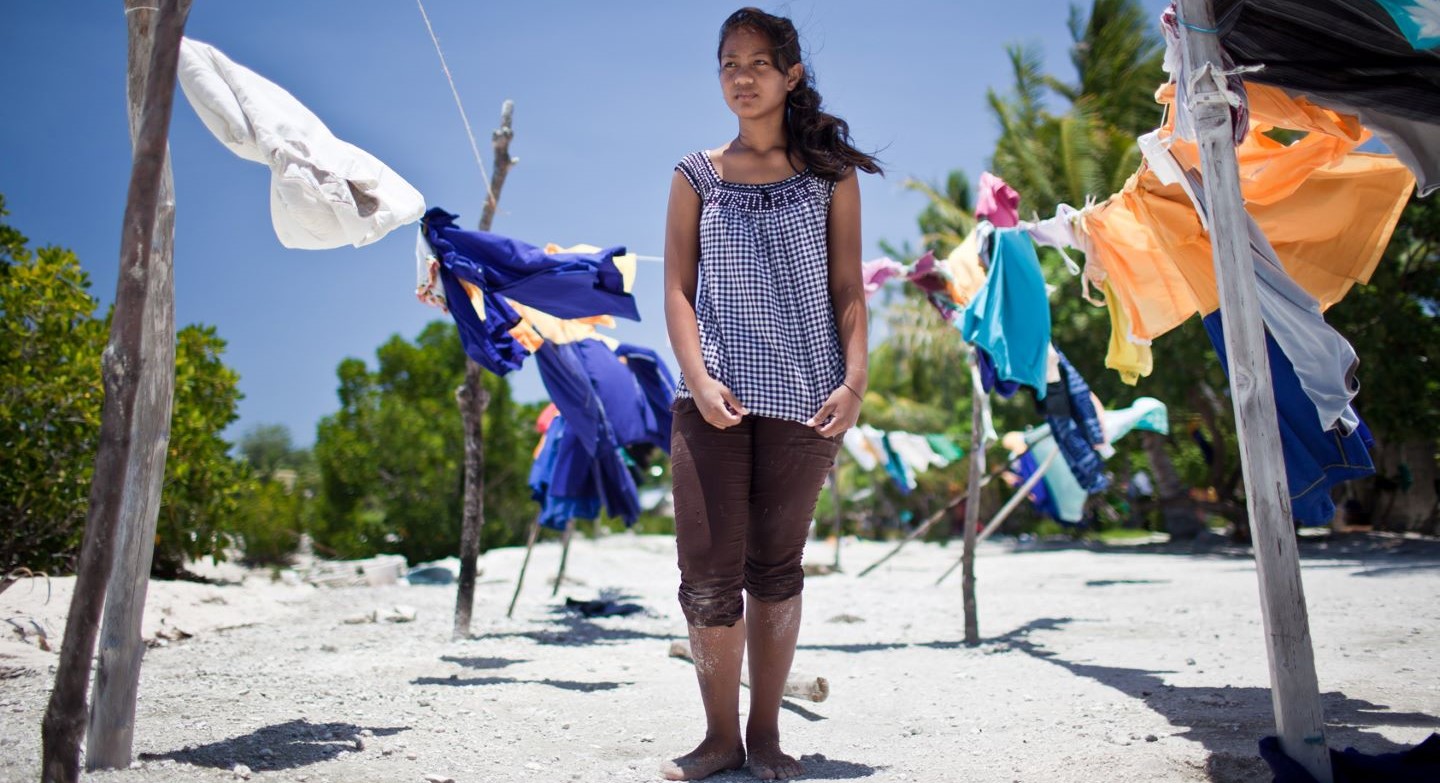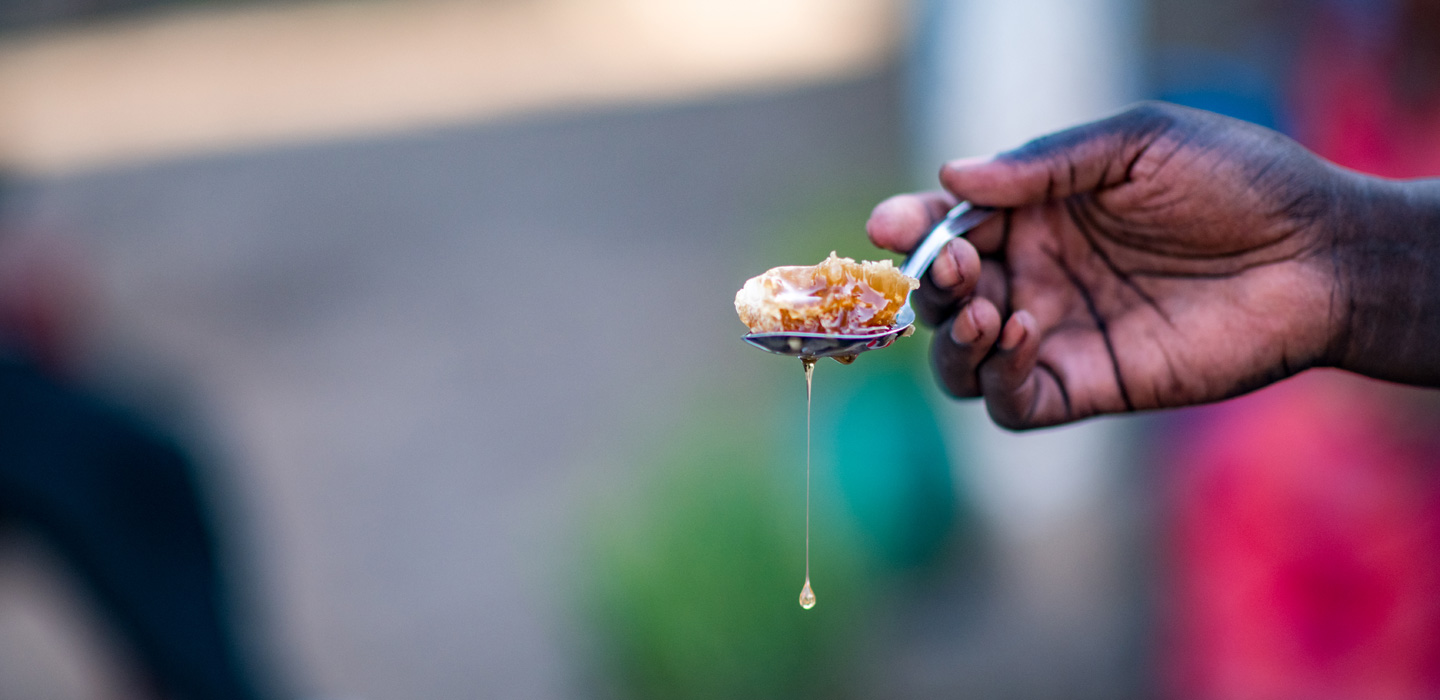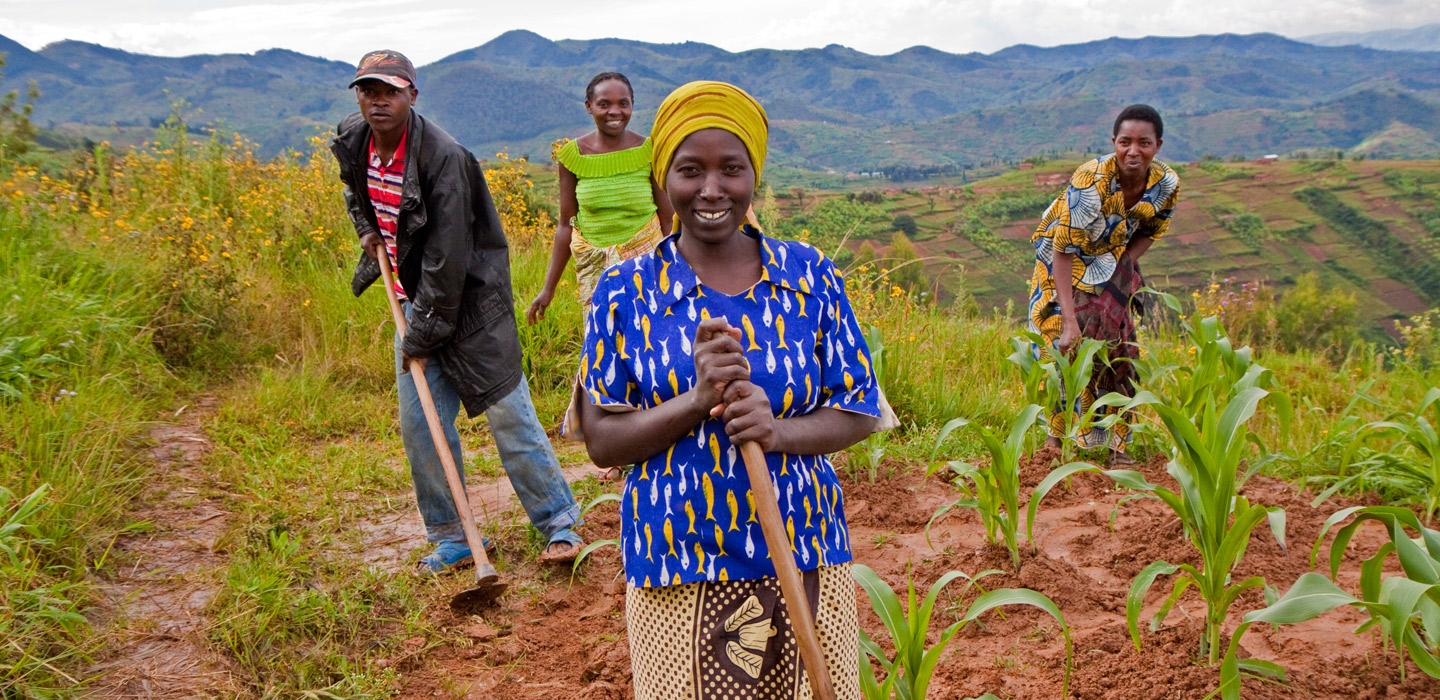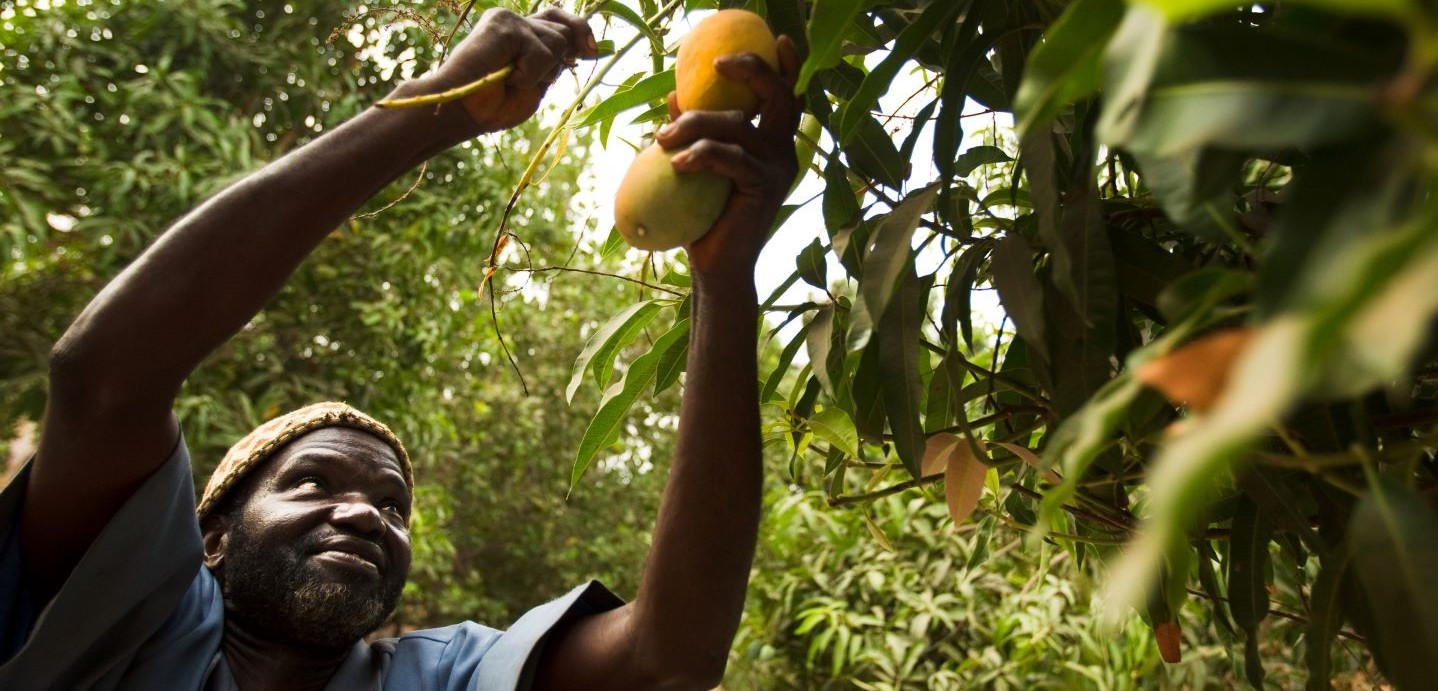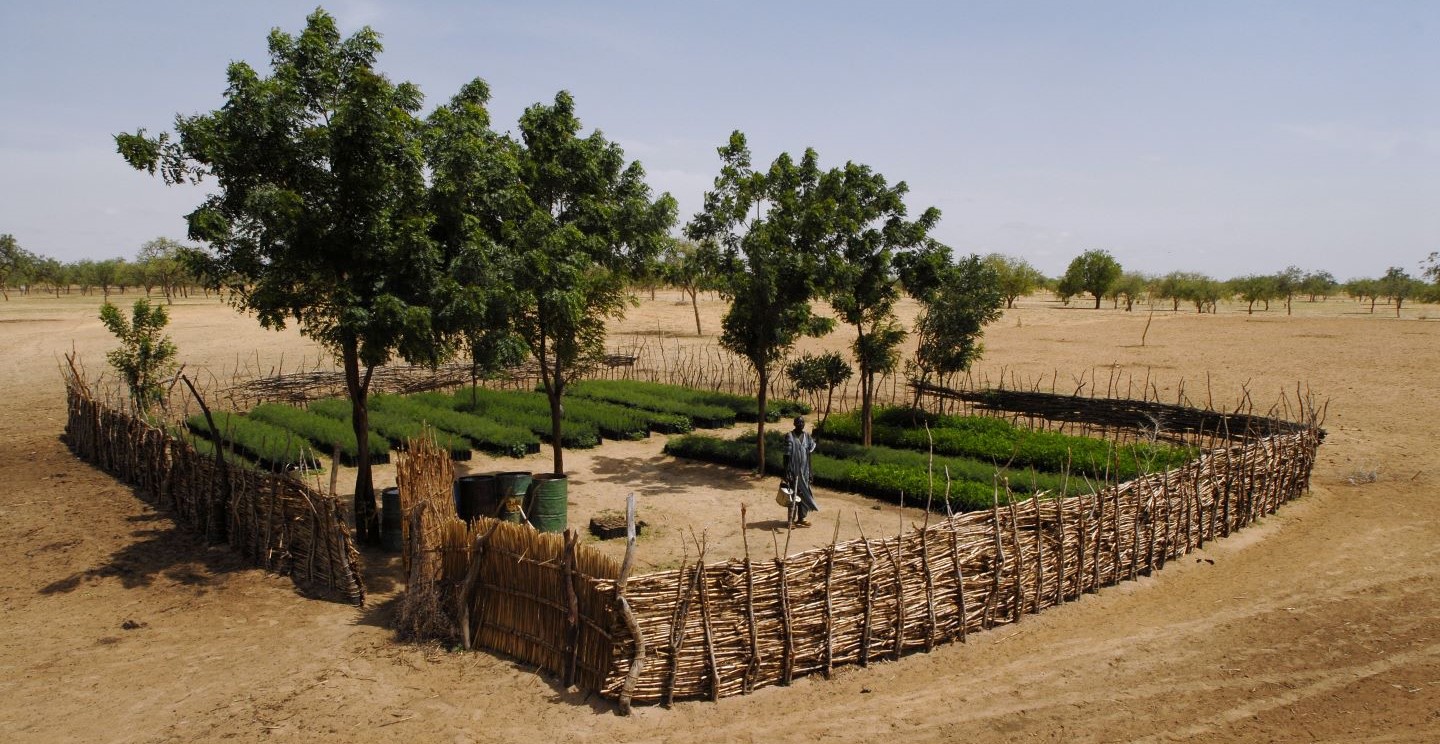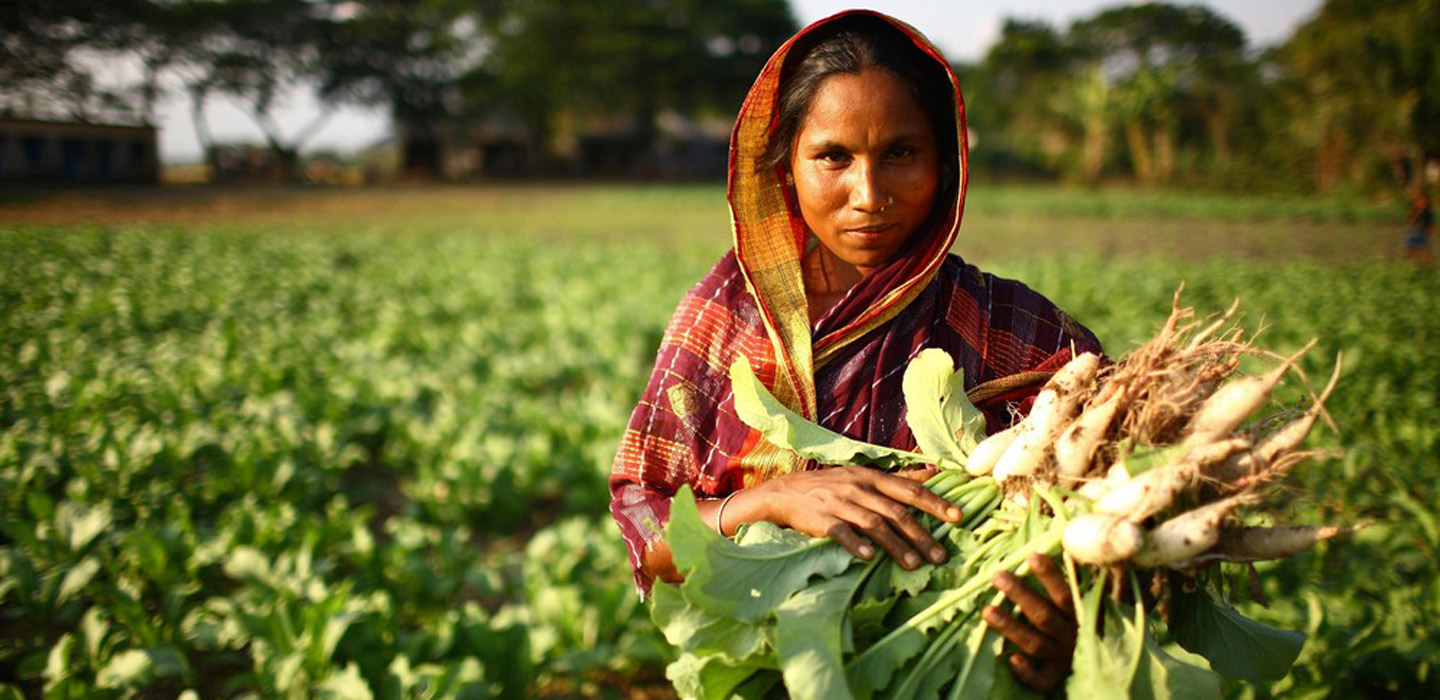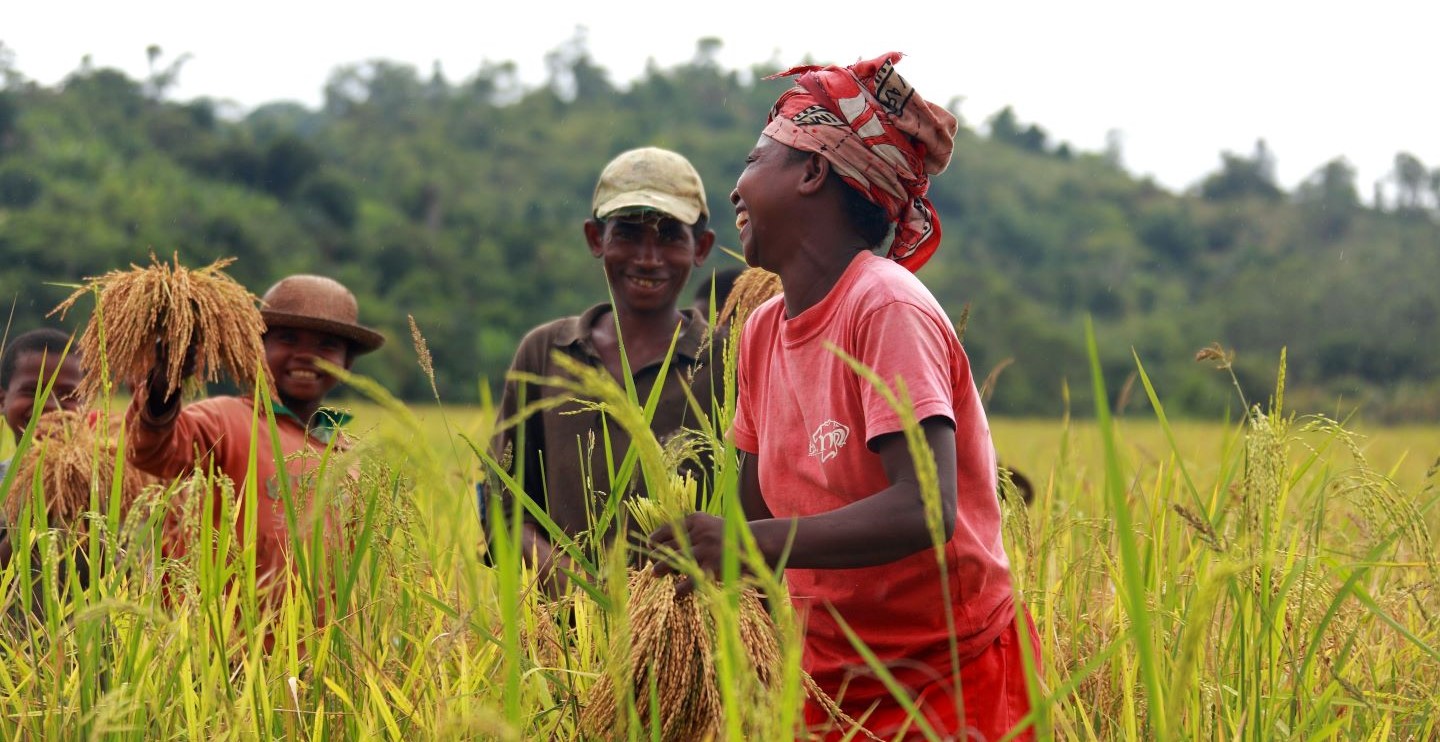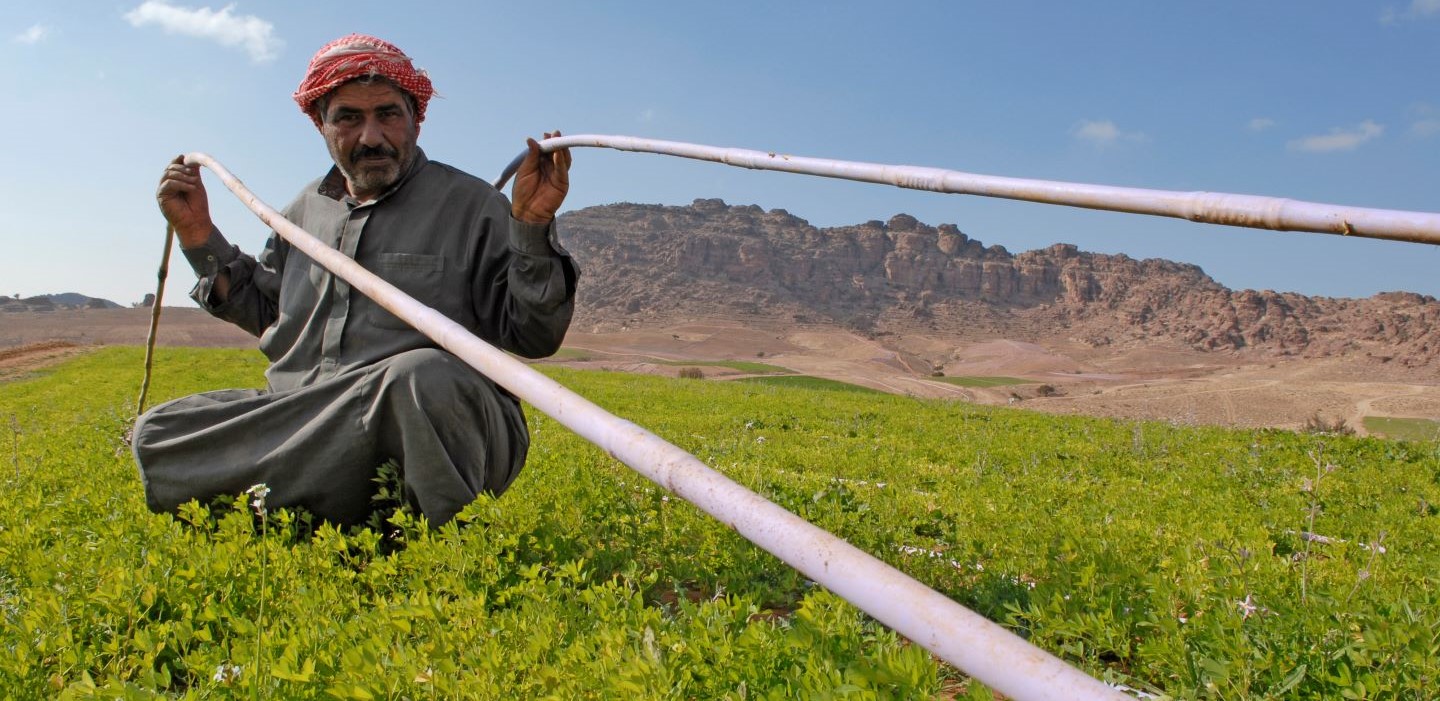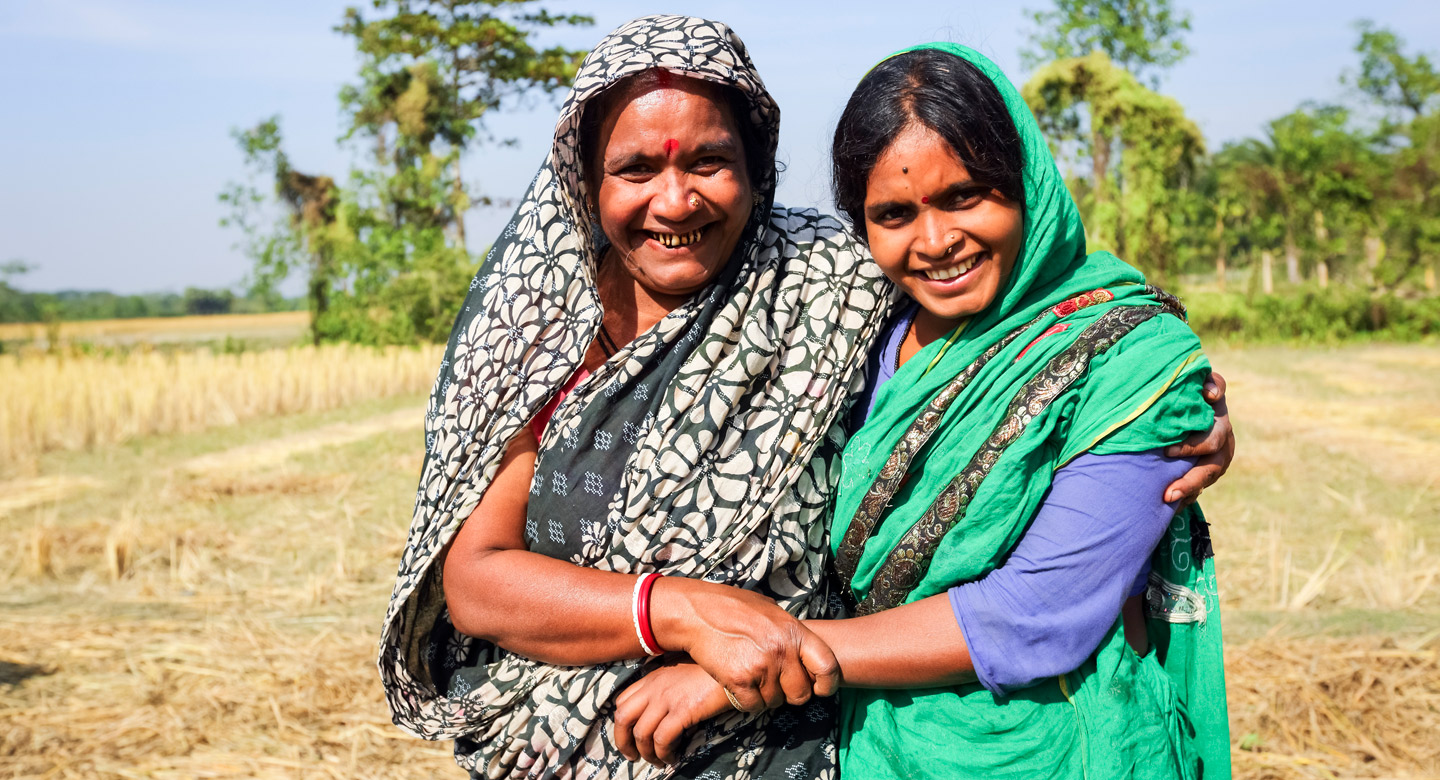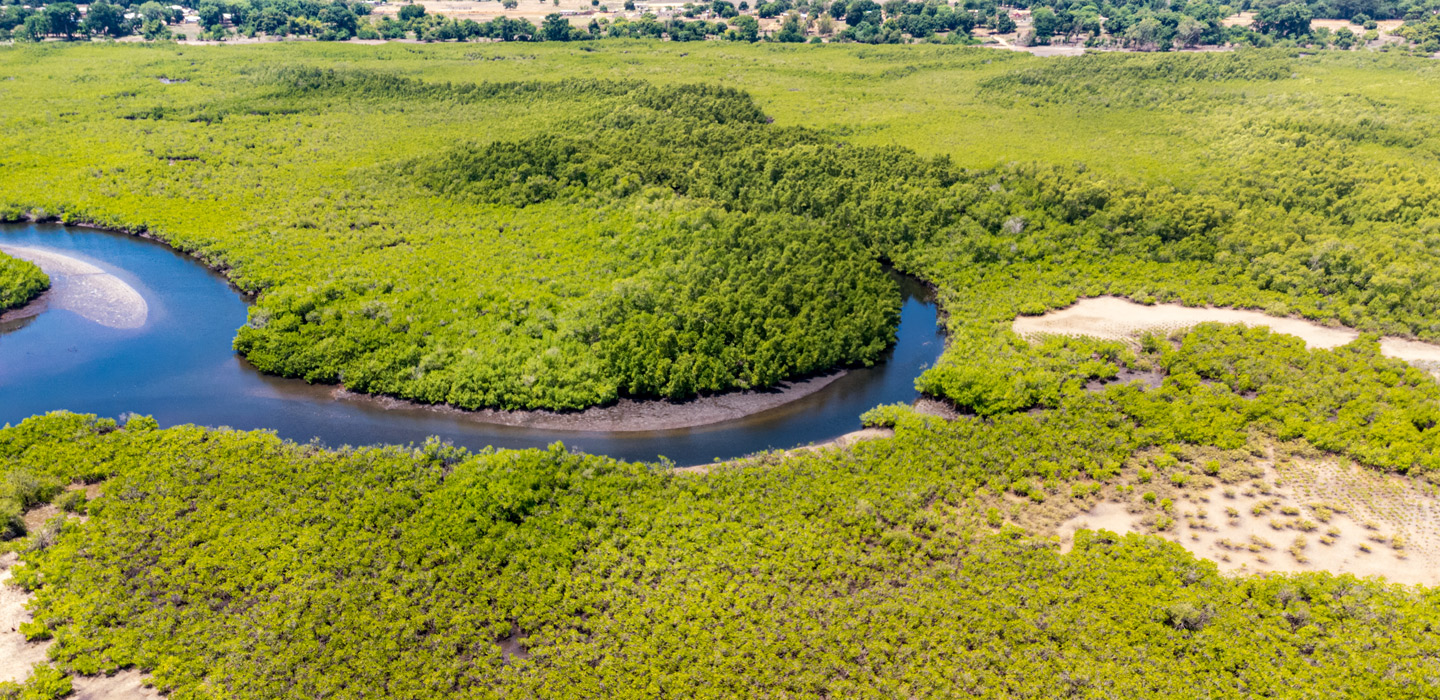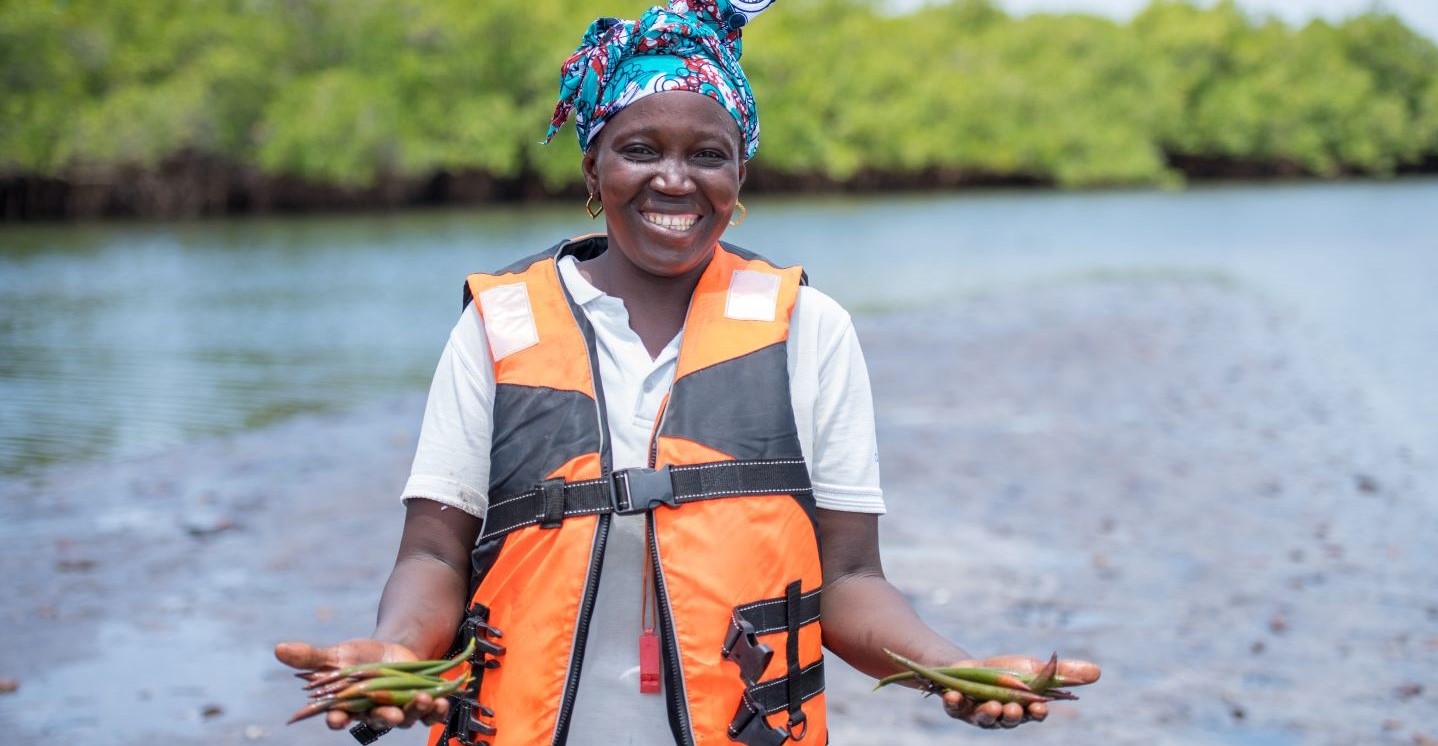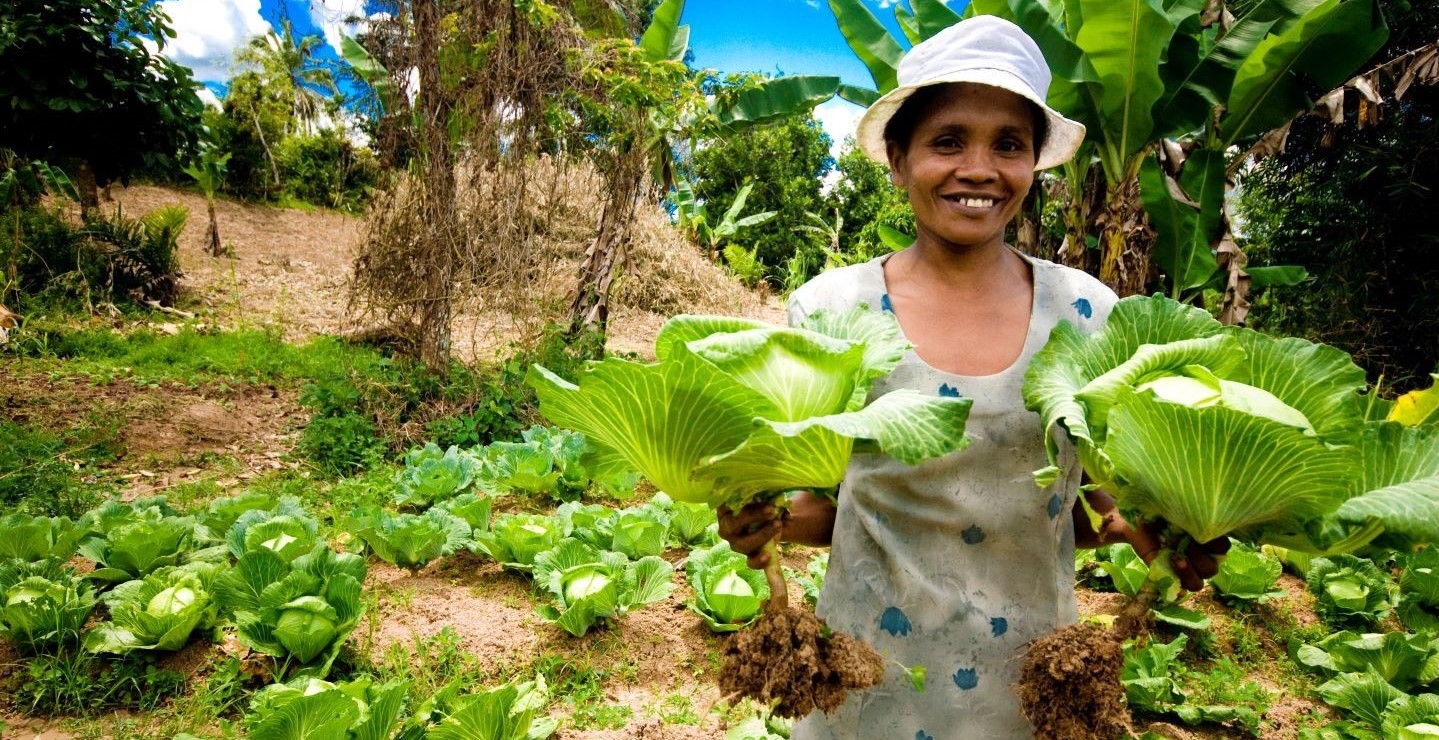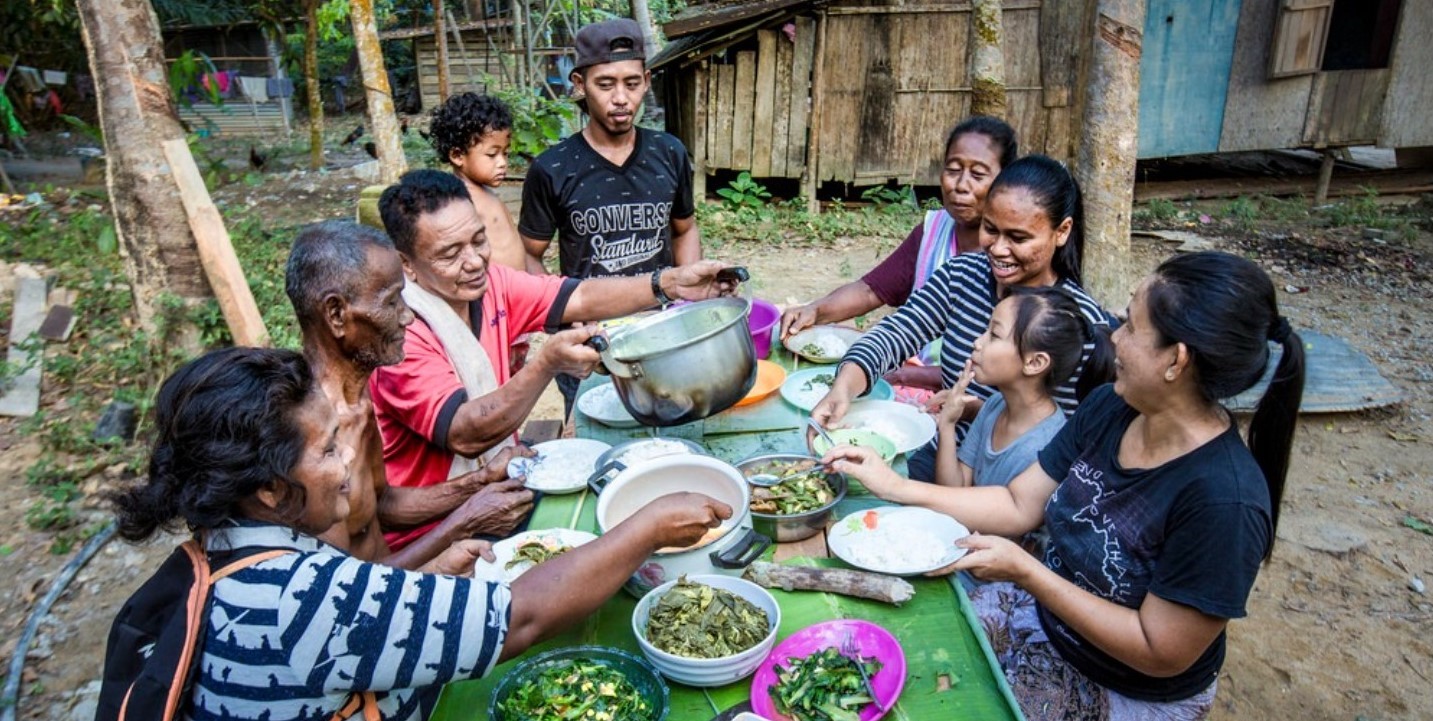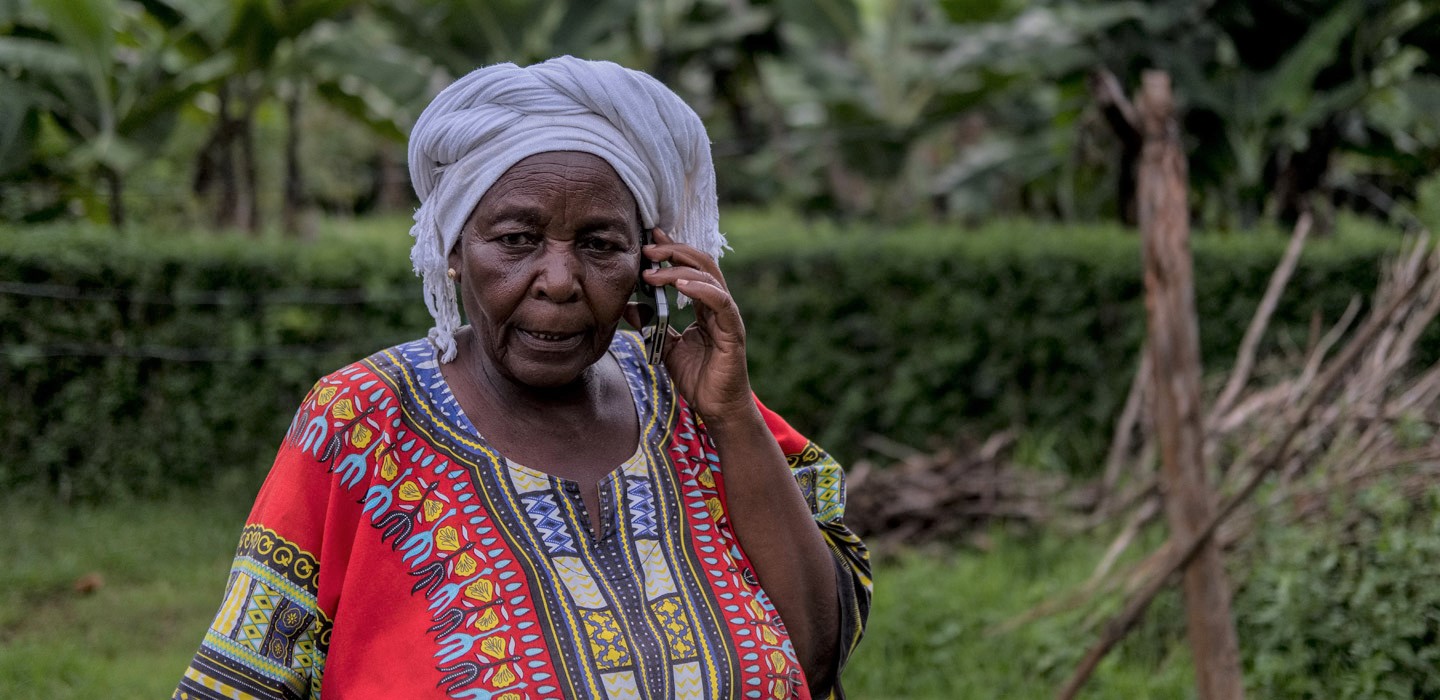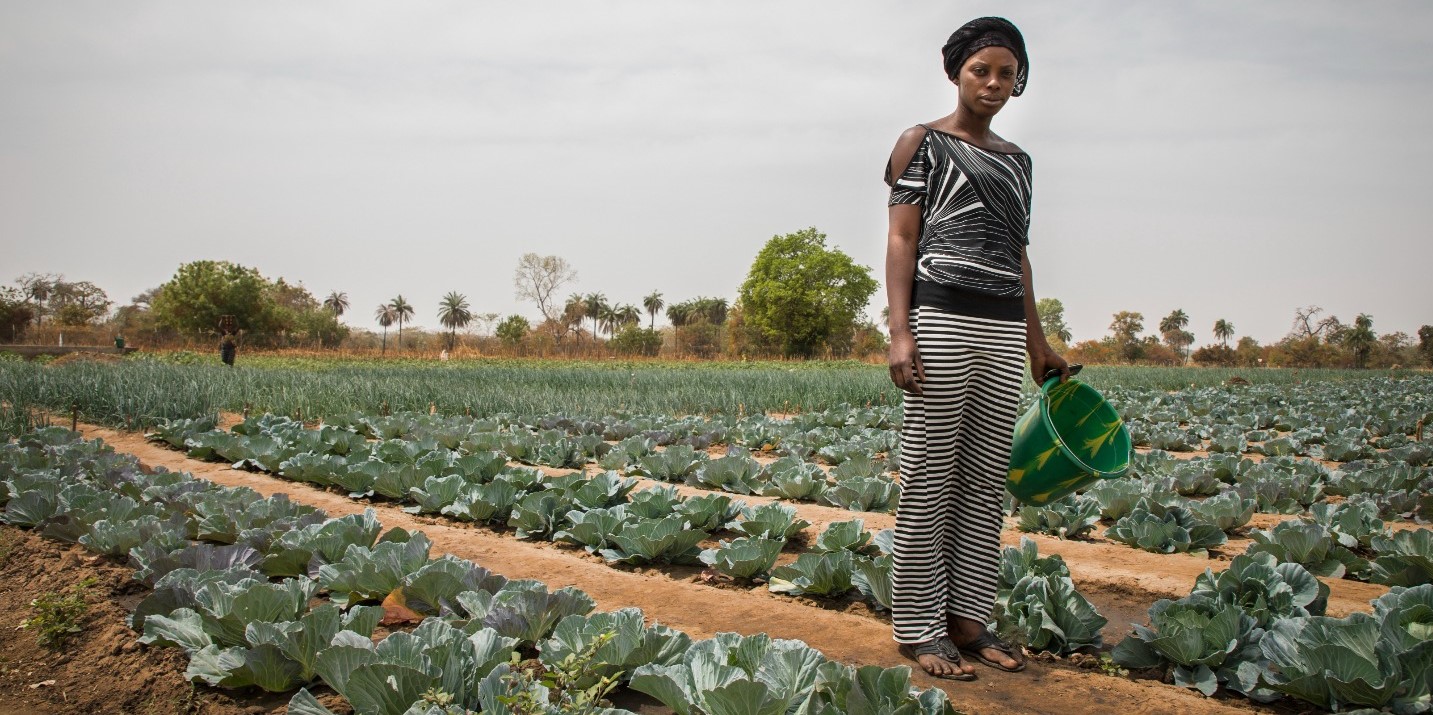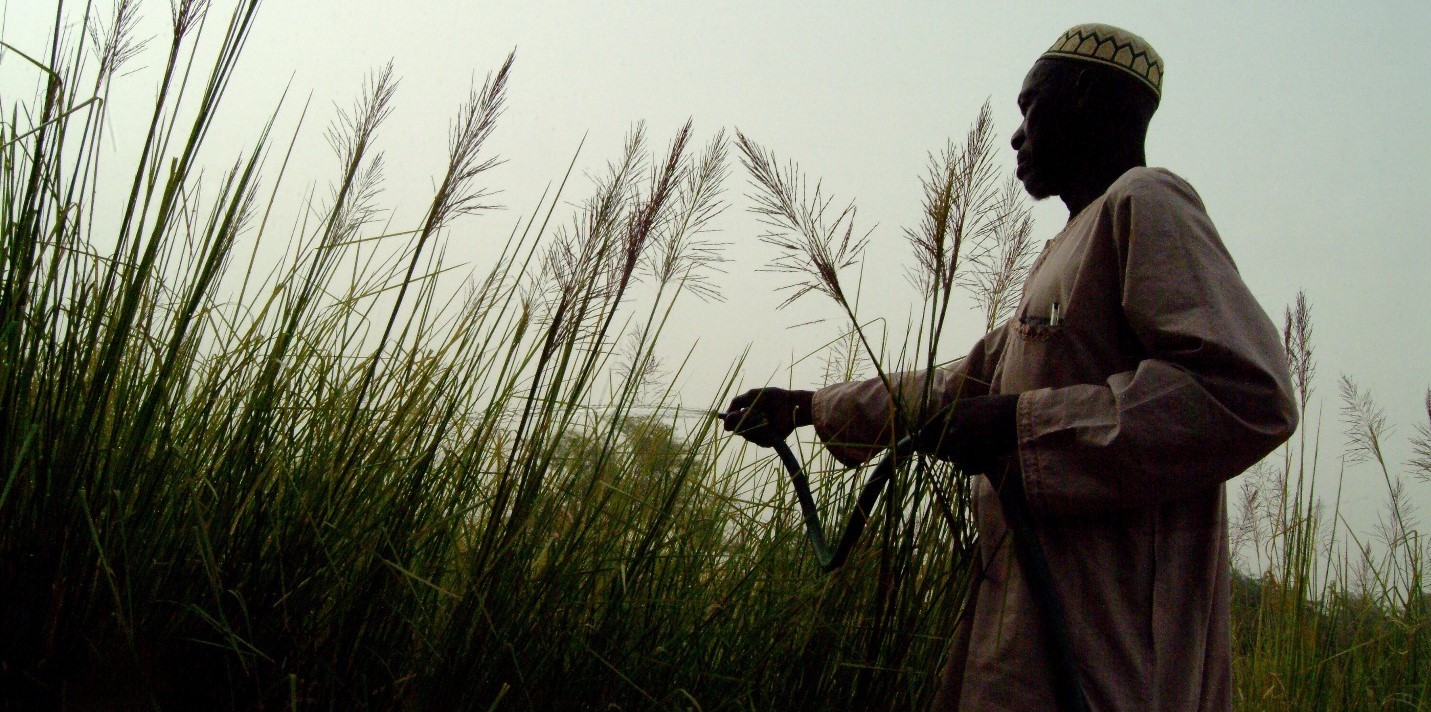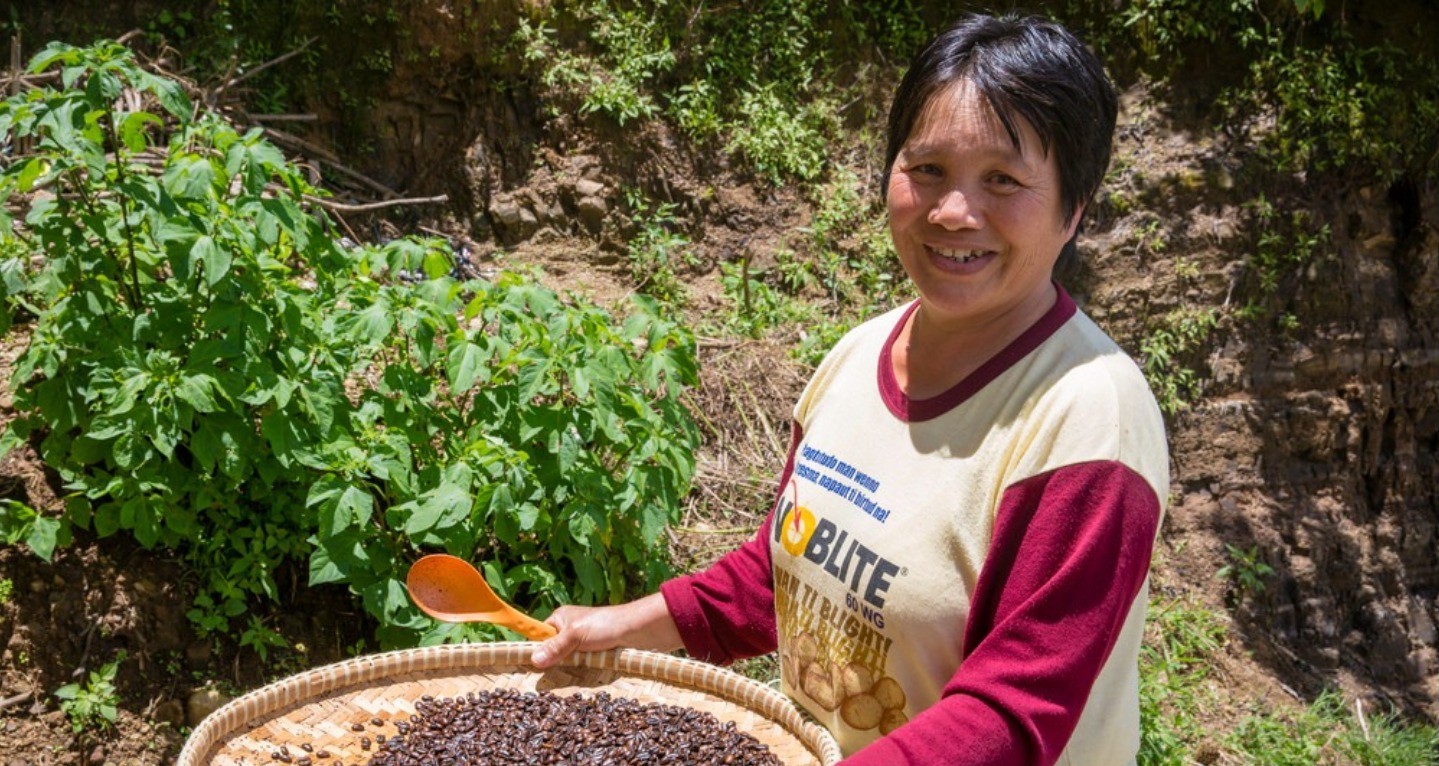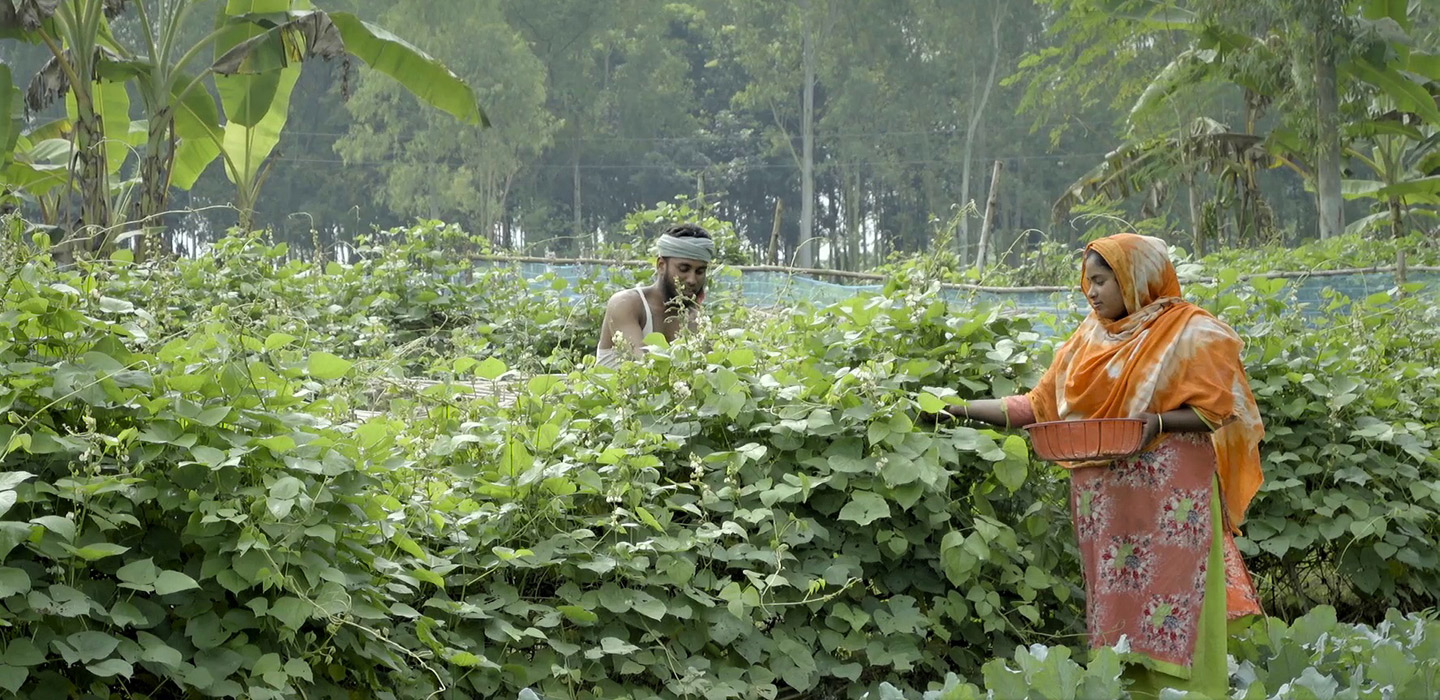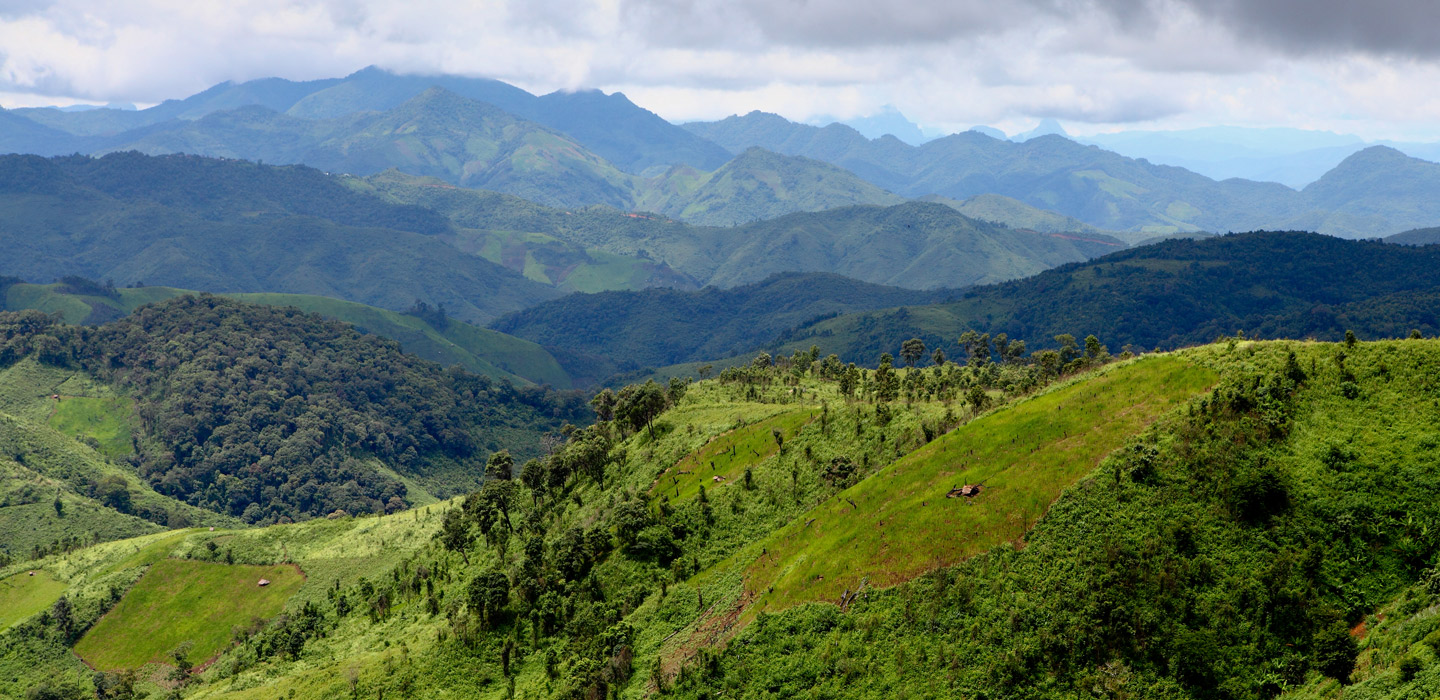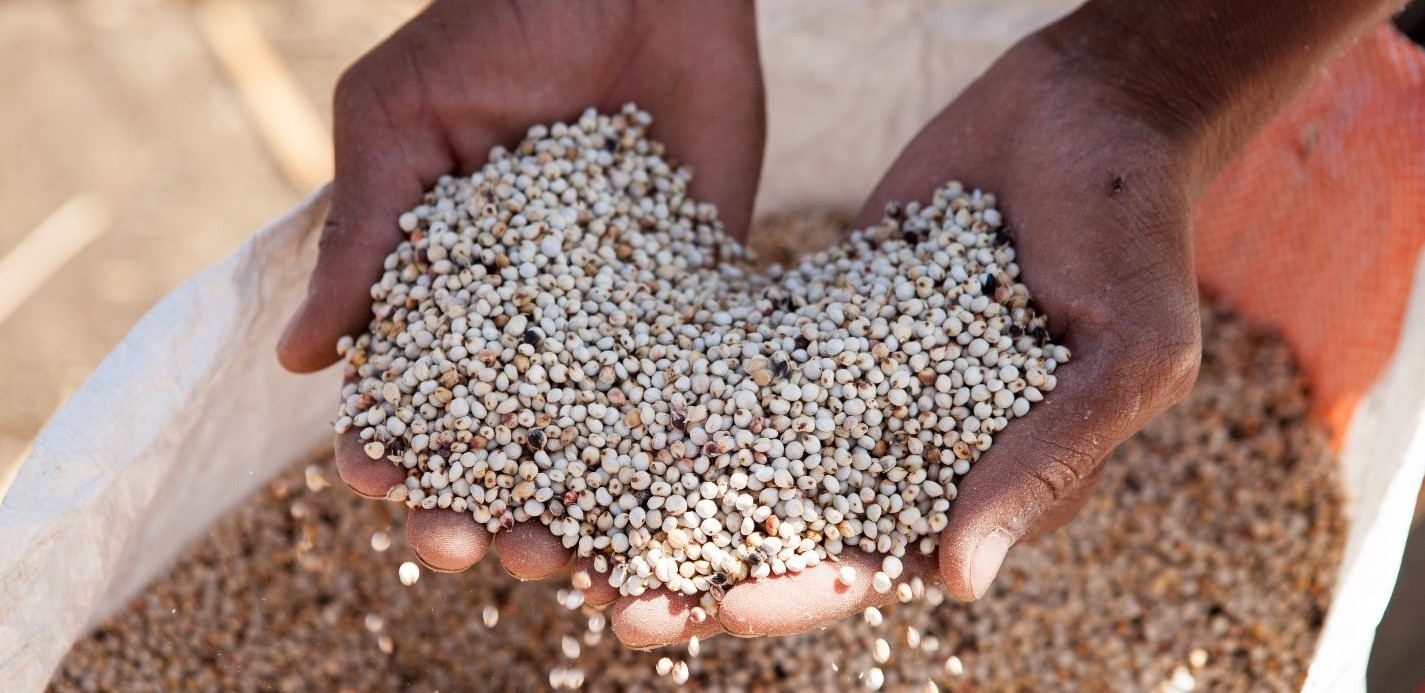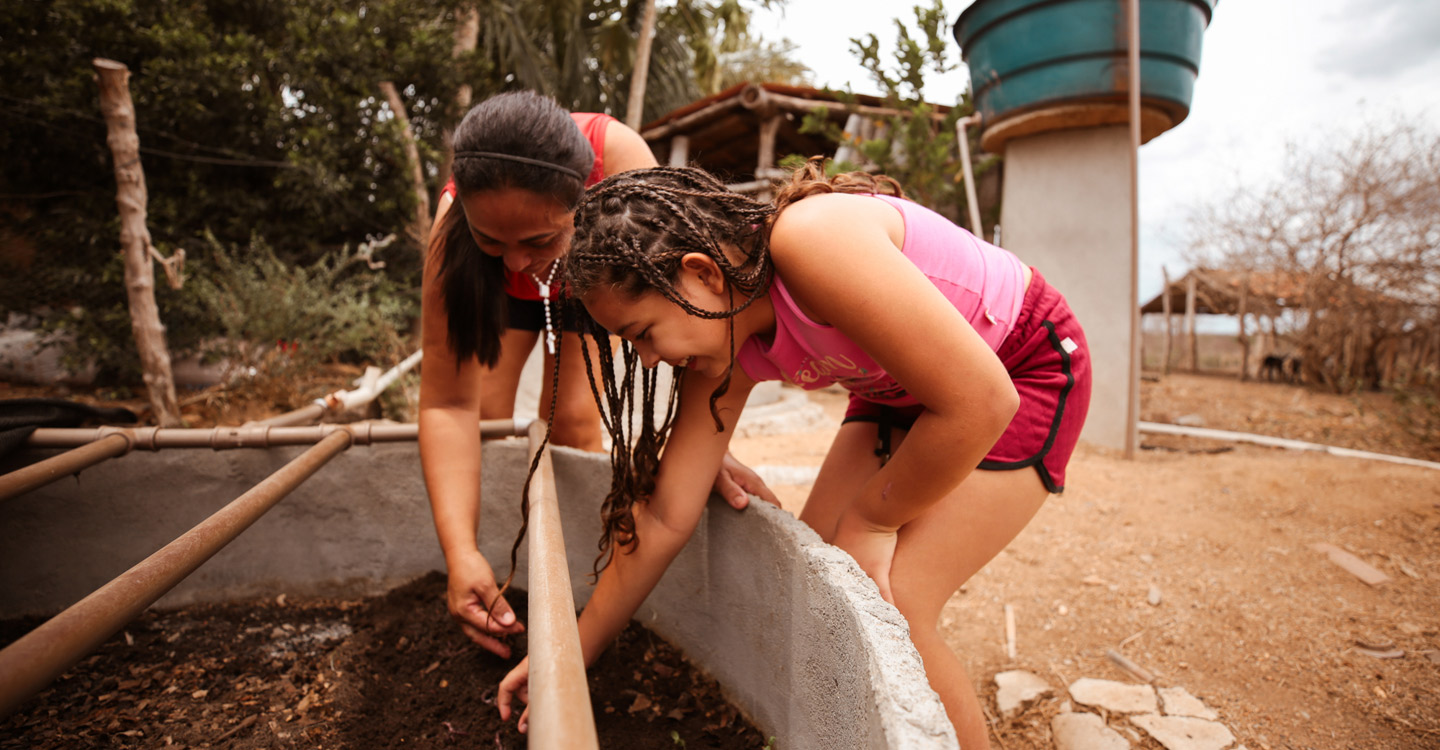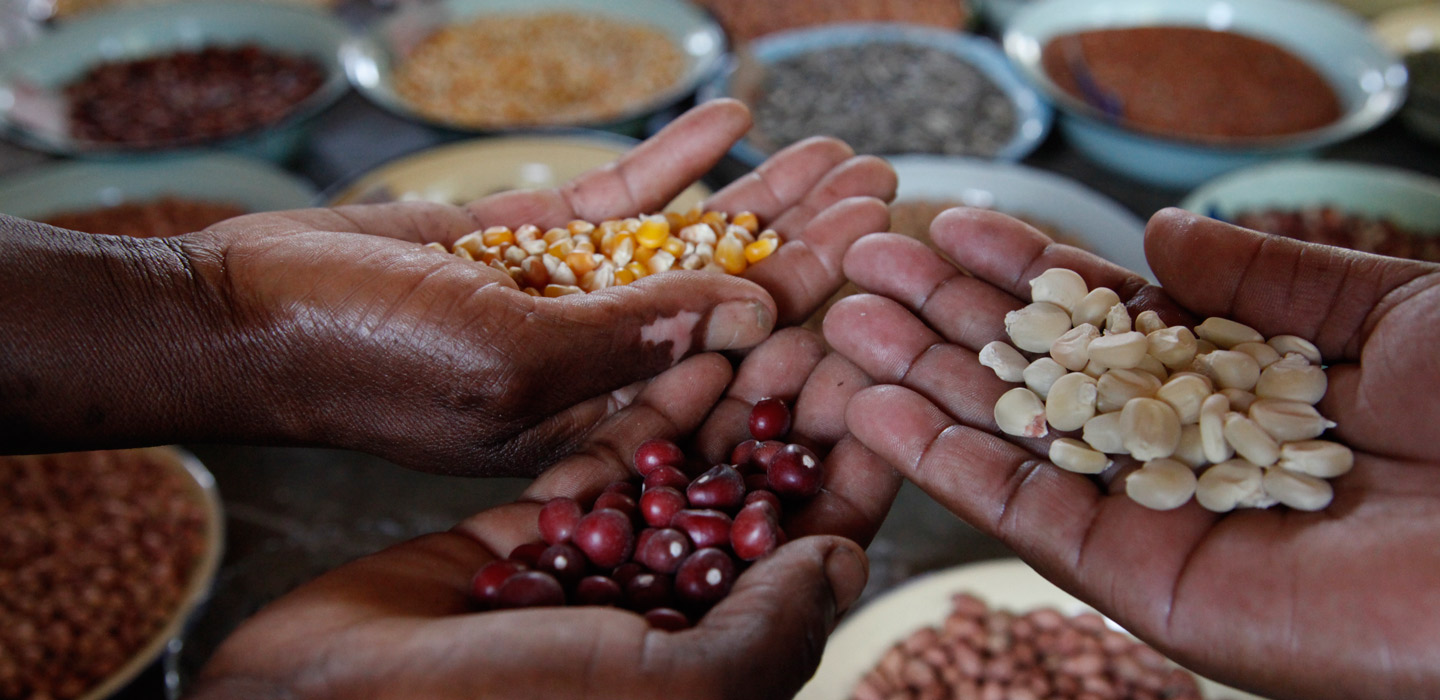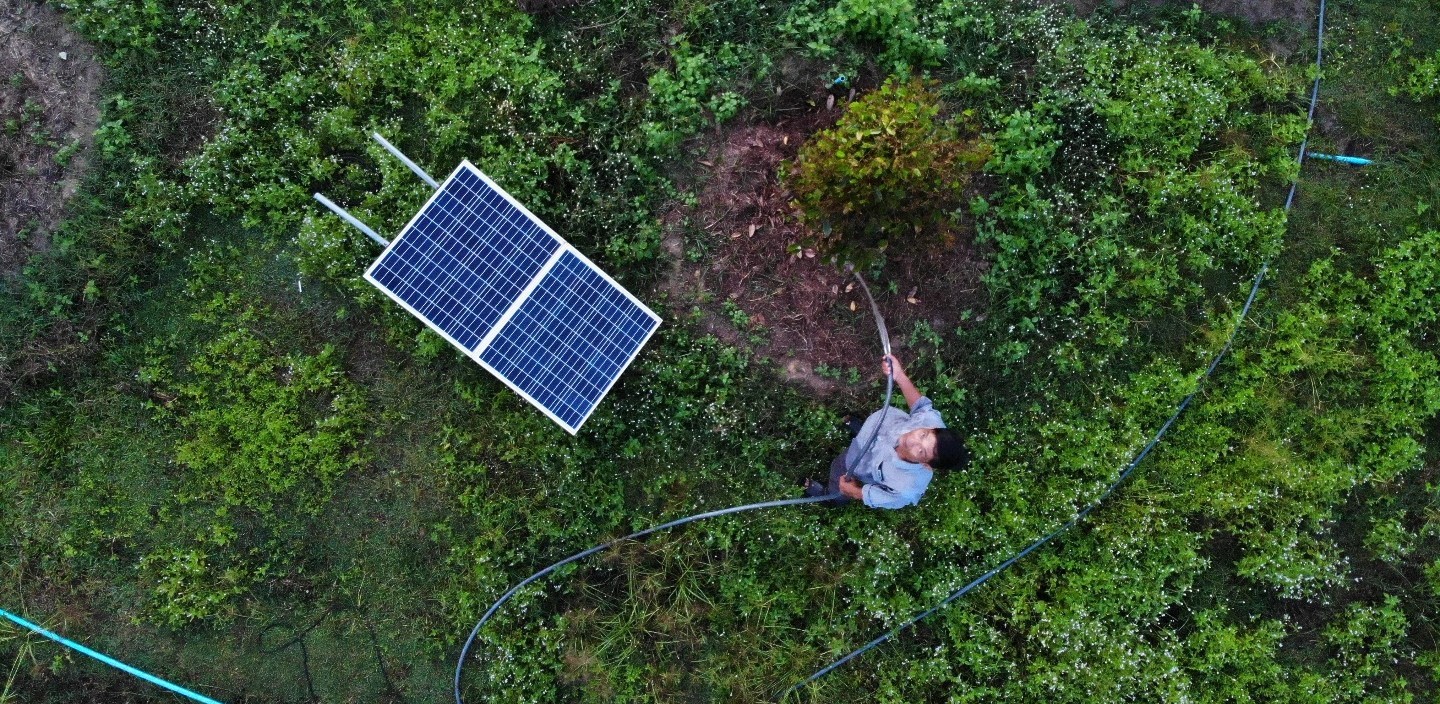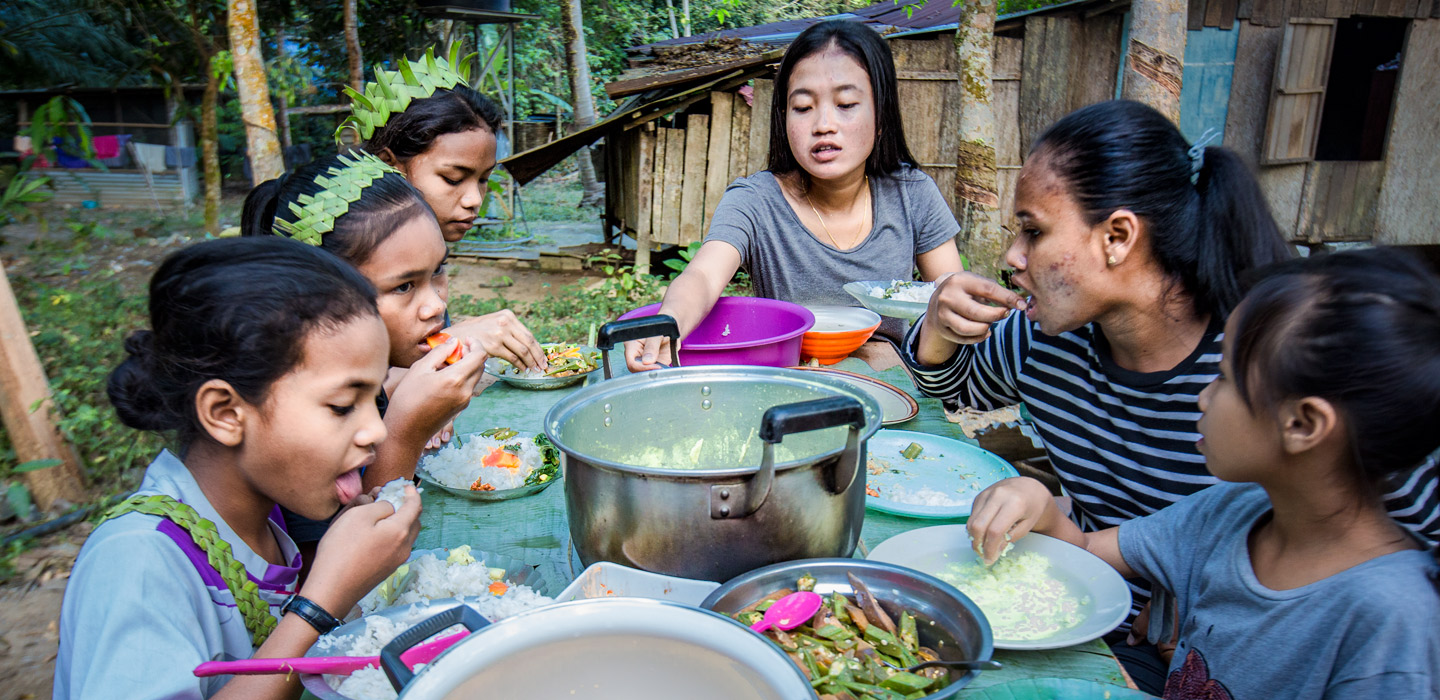Latest
Latest

Latest
Manual Submenu Topics
Search Results Filters
Search Results
Building a bay, one oyster at a time: A conversation with Chef Rob Rubba
“At the end of the day, restaurants are a luxury, but having food is a right. Everyone should have access to food.”
Putting Nature at the Heart of Farming - Episode 30
This month’s episode is all about biodiversity and agriculture.
IFAD discusses COP27 preparations with the Egyptian government
IFAD’s Associate Vice-President for Strategy and Knowledge Jyotsna Puri visited Egypt last week, where she met with the Egyptian government, the United Nations Resident Coordinator in Egypt, representatives and beneficiaries of IFAD's projects, as well as local media. Dina Saleh, Regional Director of the Near East, North Africa and Europe Division, accompanied her during the visit.
IFAD-funded project to combat climate change, increase staple food production and enhance Bolivia’s food security
IFAD and the Government of Bolivia have signed a financing agreement that initiates the implementation of the ACCESOS Rural Project. This rural development intervention will help Bolivian small-scale farmers counter the great impact of climate change on the country’s rural areas to increase staple food production, thus enhancing food security.
Recipes for Change: Sri Lanka - Polos Curry
In Sri Lanka, the climate crisis is causing rising temperatures, increasingly extreme weather events and variable precipitation patterns are harming agricultural productivity and food security. Through the Smallholder Agribusiness Partnership Programme, IFAD offers solutions for rural people, including promoting jackfruit among smallholder farmers because of its high value and resilience.
Is the grass always greener where it rains?
Groundwater depletion continues to be a challenge for small-scale farmers in the NENA region, despite the existence of water-saving technologies. Now, a new study is shedding light on ways farmers can improve their water efficiency – and where they can turn for help.
Uncovering the truths about groundwater
Below our feet lies a hidden treasure: groundwater. It sustains ecosystems and provides food, drink and livelihoods for billions. And as climate patterns change with global heating, this reliable water source is becoming ever more important for food security and livelihoods.
In Moldova, shelter belt forests build rural livelihoods and protect against climate change impacts
Forests are an excellent buffer against the effects of climate change. They’re also home to a variety of native plant and animal species that can foster resilient, sustainable local economies.
Promises kept: Crop insurance makes a difference for Kenya’s small-scale farmers
Farming can be a risky business indeed. Recently, some IFAD-supported initiatives have begun piloting crop insurance programmes for participating farmers – and for KCEP-CRAL farmers in Kenya, the new insurance policies arrived just in time.
Driving Miss Babli: Young women in Bangladesh get the chance to learn new skills
Thanks to driving lessons provided by the Haor Infrastructure and Livelihood Improvement Project - Climate Adapation and Livelihood Protection (HILIP/CALIP), a group of young rural women in Northern Bangladesh now have careers as drivers—a typically male-dominated profession.
Why rural women need land rights: A conversation with Steven Jonckheere
This International Women’s Day, we sat down with Steven Jonckheere, IFAD’s Senior Technical Specialist on Gender and Social Inclusion, for a conversation on why women’s land rights matter – and what IFAD is doing about it.
To tackle climate change, we need to empower rural women. Here are four ways to do that
Rural women already know what needs to be done to help their households and communities adapt to climate change and build resilience. Here are four ways to empower them for a climate-safe future.
These numbers prove that rural women are crucial for a better future. But they're not getting what they need to succeed
Despite being largely responsible for the food on our farms and on our tables, women don’t have access to the same resources as men. Without access to land, finance, training, inputs and equipment, women can’t produce effectively, achieve financial stability or food security, or grow their businesses.
IFAD-funded project to increase coffee and cocoa production in eastern Cuba while building resilience of smallholder farmers to climate change
IFAD and the Government of Cuba hosted an event today at the Hotel Nacional in Havana to launch the Agroforestry Cooperative Development Project (PRODECAFE). The project aims at increasing coffee and cocoa production in the eastern region of the country, while contributing to enhanced resilience of this region’s smallholder farmer cooperatives to climate change.
5 questions you should be asking about climate change and rural women
Women and girls all over the world are more strongly affected by climate change. For International Women’s Day, we’re taking a look at why that is and how women and girls can lead the way in adapting to the new environment.
An alarm we can no longer ignore: IFAD’s reaction to IPCC’s latest report
The IPCC’s new report, “Impacts, Adaptation and Vulnerability”, underscores the urgency of climate change adaptation.
Changing the narrative on Haiti
Last year, a 7.2-magnitude earthquake caused more than 2,200 deaths and US$2 billion worth of damage in southern Haiti. In February 2022, a Donors' Conference was held to seek financial and political support for the reconstruction and relaunch of the region.
Norwegian Minister Tvinnereim and IFAD President Houngbo to visit Malawi in wake of storms to discuss climate resilience and hunger
With Malawian farmers still reeling from tropical storms that devastated crops and livelihoods in recent weeks, Norway’s Minister of International Development and the President of IFAD will visit the country to meet its leaders and small-scale farmers to discuss the impacts of climate change, and ways to build resilience.
How agrobiodiversity can nourish the planet
For our people and planet to flourish, we need agrobiodiversity: agricultural systems that enhance our wealth of ecosystems and living beings instead of diminishing it. Our work has long recognized the importance of agrobiodiversity for sustainable food systems, and now we’re taking this commitment even further.
The Netherlands provides EUR 4.13 million grant to enhance climate change adaptation and resilience in agriculture in Jordan
IFAD, the Ministry of Planning and International Cooperation in Jordan, and the Kingdom of the Netherlands signed a EUR 4.13 million financial agreement this week to strengthen the sustainability and climate resilience of ongoing interventions under the Rural Economic Growth and Employment Programme (REGEP) in Jordan.
Innovating Agriculture Into the Future – Episode 27
In our end-of-year episode, we’re focusing on all things innovative in the world of agriculture. We hear from agro-preneurs in Australia, Africa and Asia who are using cutting-edge technologies and exploring new solutions to common problems.
Denmark commits millions to vulnerable farmers through IFAD’s climate adaptation fund
In the wake of COP26, which featured a strong call for increased financing to help the world’s poorest countries adapt to the impacts of climate change, Denmark today announced a contribution to IFAD of DKK 190 million (about US$29 million) to help small-scale farmers cope with unpredictable weather.
A green new hope for degraded soils
Over half the world’s arable land is already degraded, and this number is growing at a rate of 23 hectares per minute. But with the support of an IFAD-funded project – along with an unlikely ally – farmers in Bolivia’s Pando region are restoring the land in record time.
Fixing our food systems means getting the fundamentals right
The term “food systems” encompasses a huge variety of activities and issues. To make sure we’re all starting from the same place, let’s focus on the fundamentals: the land, and how to treat it well.
Promoting sustainable agrifood systems to combat climate change
It’s clear by now that no real progress on climate change mitigation will be achieved without the active participation of today’s top greenhouse gas emitters. In addition to transitioning their energy sectors away from carbon, actions such as making their agrifood systems more sustainable and promoting the use of natural carbon sinks could produce dramatic results in record time.
Expanding the Blue Economy in East and Southern Africa – Episode 26
This month’s episode is all about the blue economy – the economic, social and environmental activity that revolves around marine and coastal resources – of the East and Southern Africa region. This sector offers many potential opportunities for governments, the private sector and small-scale producers, along with some challenges.
An IFAD–Indonesia partnership advances the policy agenda on sustainable peatland management
Peatlands store twice as much carbon as all the world’s forests and are home to everything from orchids to orangutans – but today, these lands are in peril. A partnership between IFAD and Indonesia’s Ministry of Environment and Forestry is working to set a national policy agenda that will protect peatland ecosystems.
Highlights from COP26 – Friday 12 November 2021
The end of COP26 is fast approaching, and we’re still waiting for a final agreement. However, based on the draft texts that have been released, it’s clear there’s still a risk of gaps between long-term targets and short-term action.
Public-private partnerships accelerate climate change adaptation in Viet Nam
In recent years, saline intrusion – the encroachment of seawater into fresh water sources – has become a serious threat to small-scale farmers in Viet Nam’s Mekong Delta. Thanks to a public-private partnership, a local technology company was able to collaborate with an IFAD-supported project to create a lasting solution.
Effective micro-organisms: The key to healthy soil and healthy diets in rural Lao
Agriculture is the main source of income and livelihood in rural Lao. But Lao crops are highly climate-sensitive, leaving farmers with little room for error when it comes to climate adaptation.
Highlights from COP 26 – Wednesday 10 November
The start of the second week of the Glasgow Climate Change Conference marked a shift to a more political phase of the conference. Ministers arrived, former US President Barack Obama drew a crowd, and negotiations continued.
Four ways nature-based solutions benefit rural people and communities
“Nature-based solutions” (NbS) might sound like a buzzword, but these techniques are some of the most effective tools in our arsenal against the effects of climate change.
ShareFair of geospatial tools and applications for climate investments
As changing climates affect farming conditions across the world, how can geospatial and remote sensing tools help IFAD and others decide on where adaptation investments are best needed and what impact these interventions will have?
COP26: New US$143 million investment to restore Great Green Wall ecosystems and increase climate resilience in the Sahel, announce IFAD and GCF
A new US$143 million investment programme will ensure millions of the most at-risk rural people living in the Sahel region of West Africa can adapt to climate change, with a wide-reaching plan to restore degraded land and provide climate information systems and agricultural insurance. The announcement was made today at the UN climate change conference (COP26) during a signing ceremony of the grant agreement between IFAD and the Green Climate Fund (GCF).
COP26: Sweden steps up to help at-risk small-scale farmers adapt to climate change, pledging millions to IFAD’s climate fund
Sweden today signalled its strong commitment to help some of the world’s poorest small-scale farmers to adapt to climate change, by pledging SEK100 million (nearly US$11.7 million) to IFAD. The announcement was made at the UN climate change conference (COP26) in Glasgow.
How nature based solutions are transforming lives
Nature-based solutions is a concept that highlights the fact that people can proactively protect, manage or restore natural ecosystems, while significantly contributing to addressing six major challenges: climate change, food security, water security, human health, disaster risk, and social and economic development.
Managing fisheries for sustainability and resilience: The case of Angola
The fisheries and aquaculture sectors fully or partially support the livelihoods of 10–12 per cent of the world’s population. Yet fisheries across the world are under threat from climate change and over-exploitation. The question of how best to manage fisheries under these conditions is a complex one, but in our experience, bringing communities into inclusive governance structures is an indispensable part of the solution.
Highlights from COP26 – Saturday 6 November
IFAD Goodwill Ambassadors, Idris and Sabrina Elba attended COP26 to help ensure that African farmers are not left out of the climate conversation and to promote greater investments for small-scale farmers and producers to adapt to climate change.
Media briefing with Idris and Sabrina Elba on how we can feed ten billion humans without destroying the habitable planet
We would like to invite you to our in-person media briefing on Saturday, 6 November at 11:00-11:30 GMT with IFAD and Conservation International on the importance of investing in small-scale agriculture, climate adaptation and nature-based solutions to achieve sustainable and prosperous food systems.
IFAD Goodwill Ambassadors Idris and Sabrina Elba attend COP26 to advocate for increased investments in climate adaptation and biodiversity protection
As climate negotiations enter a crucial phase, Idris and Sabrina Elba, UN Goodwill Ambassadors for IFAD, will attend COP26 to advocate for increased investments to help small-scale farmers to adapt to climate change and to protect biodiversity.
Six reasons to focus on small-scale producers at COP26
IFAD believes rural economies and food systems have the potential to become more resilient, sustainable, inclusive – and productive – all at the same time. But to get there, we need to focus our attention and support on the people who make these systems work.
COP26: Pastoralists and rural entrepreneurs from Asia and Africa amongst speakers at IFAD Pavillion
Pastoralists and young rural entrepreneurs from six different Asian and African countries will be at COP26 in person to share their experiences in managing their ecosystems and to advocate for investments to stimulate green jobs and climate adaptation.
Highlights from COP26 - Wednesday 3 November
It’s the first day at the IFAD Pavilion at COP26 in Glasgow, United Kingdom, and we’ve come together with thousands of activists, world leaders and representatives of businesses and civil society from around the world to talk about the greatest challenge we face: how to mitigate and adapt to climate change.
Bringing the benefits of agricultural insurance to smallholders in Viet Nam: Building awareness and understanding
Between sowing their seeds and selling their harvest, smallholder farmers in developing countries face a multitude of potentially devastating risks. In Viet Nam, as in countries around the world, many of the most severe threats are climate-related, including storms, floods, excessive heat, frost and drought.
At COP26, IFAD spotlights the impact of climate change on small-scale farmers with an innovative virtual visit to Bangladesh
IFAD highlighted the impact of climate change on small-scale farmers at the 26th Conference of the Parties (COP26) to the UN Framework Convention on Climate Change currently underway in Glasgow, UK, through a virtual visit to Bangladesh, where the country’s poorest small-scale farmers spoke about the projects and practices that are helping them adapt.
Protecting homes and livelihoods in Bangladesh’s Haor Basin
On one terrible day four years ago, Anjuli Rani Das’s life was swept away before her eyes. A flash flood engulfed her small duck farm, washing away everything she had worked for in the past years.
Honduras and IFAD will work together to foster resilient small agriculture
The Government of Honduras and IFAD, the UN agency for rural development, agreed today in Glasgow to work together to access Green Climate Fund (GCF) financing to promote small-scale climate-smart agriculture in the country.
Climate change adaptation programme can help an additional 10 million vulnerable people in Asia and Pacific says new IFAD report
Climate-related hazards are intensifying in the Asia Pacific region, disproportionately affecting vulnerable rural communities. Policymakers must prioritise climate resilience and adaptation measures in order to protect rural communities from losing economic advancements according to a new report released today by IFAD.
IFAD goes to COP26 – Putting rural small-scale farmers at the centre of global climate negotiations
From 31 October, world leaders, experts, and climate activists from across the world will gather in Glasgow, Scotland for COP26, the biggest climate conference since the Paris Accords. IFAD will be there, calling for greater investments in climate adaptation – and we will be giving the floor to rural small-scale producers to share their own experiences and solutions.
Putting rural small-scale farmers at the centre of global climate negotiations – IFAD interactive events during COP26
Rural small-scale farmers are disproportionately impacted by climate change, yet seldom have a voice at global forums. At COP26, IFAD has created a space to hear their challenges and solutions. With more than 30 interactive events hosted at its pavilion, IFAD will highlight how small-scale farmers can adapt to a changing climate and ensure global food security.
What do the IPCC report’s findings mean for rural dwellers? Your questions answered
The IPCC report released in summer 2021 leaves no more room for ambiguity: the climate is changing, and it’s because of human activity. Here, we answer some of your questions about the report, why it’s important, and what its findings mean for some of the world’s most vulnerable populations.
Oysters and honey: The perfect combination for Senegal’s Delta of Saloum
The Delta of Saloum’s mangrove forest is rich in beauty and biodiversity, but it has suffered from years of deforestation, disrupting the area’s ecosystem and threatening the livelihoods of the area’s farmers and fishers. Recently, a collaborative project has begun to tackle both problems by funding a restoration of the mangrove and supporting local farmers’ associations.
IFAD report predicts steep drop in African staple crops by 2050, prompting urgent call for adaptation funding at COP26
Staple crops in eight African countries could decrease by as much as 80 percent by 2050 in some areas if temperatures continue to rise due to climate change, according to a report released today by IFAD.
What are nature-based solutions? Your questions answered
We believe nature-based solutions (NbS) are the key to helping the most vulnerable people adapt to the effects of climate change. But just what are NbS, and why do we think they’re so great?
Why invest in climate change adaptation? Your questions answered
It’s official: human-induced climate change is happening. Some of its effects are already being felt, and further impacts are inevitable. Alongside mitigating our greenhouse gas emissions, we need to help those already feeling the worst effects – particularly small-scale agricultural producers – adapt.
Adapt Now: Climate change and small-scale farmers – Episode 25
This month’s episode is all about the connections between small-scale farming and climate change as we approach the UN Climate Summit, or COP26, to be held in Glasgow.
Why COP26 matters for the world’s rural dwellers: A conversation with Jo Puri
In early November, top experts from around the world will meet in Glasgow for COP26, the biggest climate change conference since the Paris Accords. We caught up with climate scientist and IFAD Associate Vice-President Dr Jo Puri to ask her what COP26 is all about and what she hopes will emerge from it.
The challenges and opportunities of investing in small-scale irrigation
Many countries in the Arab world rely on irrigation for their agricultural production. However, large-scale irrigation schemes have historically been difficult to manage. Small-scale schemes, when planned well from the outset, can be the solution.
Invest in gender equality to reduce climate change impacts on world’s poorest, says IFAD President on the International Day of Rural Women
We need a significant boost in investments to close the gender gap otherwise rural communities will never bounce back from the impacts of climate change, warned Gilbert F. Houngbo, the President of IFAD, on the International Day of Rural Women.
If we lose biodiversity, we will not address climate change or hunger, warns IFAD report ahead of UN biodiversity conference
If we continue to lose biodiversity, the world’s most vulnerable people will not be able to adapt to climate change nor sustainably produce food, according to a report released today by IFAD. The report also details the role that rural small-scale farmers play in protecting biodiversity.
Tackling climate change: Saving Senegal's mangrove forests
Marianne Ndong and her colleagues make a living from raising and selling oysters in the village of Dassilamé Sérère, in Senegal’s Saloum Delta. Mangroves don’t just support marine life, like the oysters Marianne raises. They also form a protective barrier between land and sea.
Re-imagining food systems through the climate–nutrition nexus
The food we eat plays a role in not just our health, but that of our descendants. How we grow, hunt, fish or gather it, how we process it and bring it to market, affects the world around us. These simple relationships are the foundation of the climate–nutrition nexus.
IFAD’s Rural Development Report 2021
Our food systems are failing us. From the climate, to the environment, to nutrition, to human health and well-being, they are not delivering the outcomes we all need. IFAD’s Rural Development Report 2021 describes the systemic issues that have led to the situation we are in, identifies priorities for transforming our food systems, and provides recommended actions to achieve meaningful change.
African small-scale farmers use radio and mobile phones to send a message of optimism and caution to world leaders attending Food Systems Summit
Small-scale farmers in sub-Saharan Africa are impacted disproportionately by climate change, poverty and undernutrition, yet a report released today shows many remain optimistic about the future of farming.
Investing in the foundations of Gambian agriculture
Roots are the essence of farming: they erect healthy plants and help grant a predictable and generous harvest. The IFAD-supported ROOTS project seeks to promote exactly that strength in The Gambia.
Building a Great Green Wall: Four lessons learned from the World Bank assessment
Helping the people of the Sahel prosper requires a Great Green Wall stretching across Africa. IFAD is embarking on a series of projects to help build this “wall.” We recently sat down with the World Bank to learn from their successes and challenges across a decade of their own project implementations in this region.
Mainstreaming agroecology in the Asia-Pacific region
Agroecology is a holistic approach that integrates elements of ecology, economy, and society within a food system. It also supports the well-being of small-scale producers, especially in terms of their empowerment and social inclusion. IFAD has a long tradition of supporting agroecology practices throughout Asia-Pacific, especially the Himalayas region.
Restoration takes root: Nasreen’s story
Nasreen’s family was struggling to make ends meet. Now, thanks to an IFAD-supported project, she runs her own ecological farm that produces high-quality, chemical-free vegetables – all while it restores the local ecosystem.
Community-driven change brings water security in Tonga
Eua Island is home to many of the Kingdom of Tonga’s natural resources. Recently, climate change and natural disasters have caused significant water supply challenges, but an IFAD-supported project – made possible by the islanders’ incredible community spirit – is working to change that.
Revitalizing the practice of shifting cultivation: A conversation with Dr Dhrupad Choudhury
Shifting cultivation is an indigenous food system practiced by millions of people across south and south-east Asia. A new resource book authored by Dr Dhrupad Choudhury, in collaboration with ICIMOD, is designed to guide policymakers and development professionals in sustainably transforming this practice.
It’s time to think small
Small-scale farmers and the rural poor have a crucial role to play in the restoration of ecosystems and the conservation of natural resources.
Three ways to harvest water in Brazil’s sertão
For centuries, people living in Brazil’s semi-arid region have struggled with a lack of water. But over the last decades, thanks to support from IFAD and other development actors, these communities are squeezing a few more drops of water from Mother Nature.
Putting food and agriculture at the heart of the global biodiversity framework
Despite standing to suffer immensely from the decline of biodiversity, agriculture is the lead driver of biodiversity loss, primarily through conversion and fragmentation of habitat and unsustainable intensification.
Promoting renewable energy technologies for small-scale farmers in Cambodia
Renewable energy technologies are an increasingly important part of small-scale agriculture. IFAD’s S-RET project is bringing these technologies to farmers throughout Cambodia – and it’s recently been selected as a GEF Global Good Practice Project.
Food Systems From Farm to Plate – Episode 21
This month’s episode is all about food systems.

